| Book Reviews | 
|
|
Click on a book to read the review. The year is when I read the book which is often, not always, shortly after it was published. Every review refers to the whole narrative, they all give the end away. If you prefer modernism to a traditional story arc, you might be disappointed; if you think it's all been downhill from Walter Scott, you are more likely to approve.
Most of all, though, don't forget that everybody that writes anything is brilliant. |
Recently
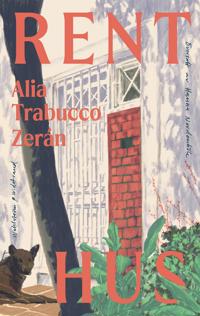
| 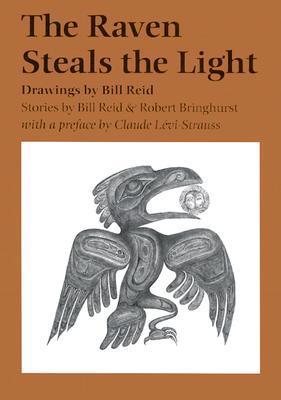
X
2025: The Raven Steals the Light of Bill Reid and Robert Bringhurst Bought at the Museum of Canadian History in Ottawa
| 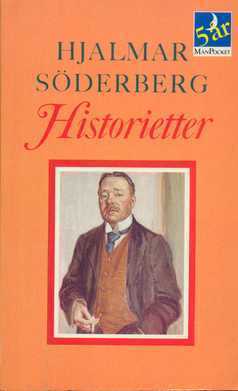
X
2025: Historietter av Hjalmar Söderberg En riktigt klassiker av Hjalmer Söderberg. Finns det bättre noveller någonstans i världen? Vi har ett dussin pärlor här, var och en en mästarklass — åtminstone för den här blivande författaren — i hur man skriver en novell. Vi kan se ekon av Saki här, eller Shirley Jackson, eller Poe. En verklig juvel till bok. Läs, bara läs och älska.
| 
X
2025: Skamvrån av Sara Sarenbrant Skamvrån, den sjunde Emma Sköld roman, är en för mycket i den här serien. Saranbrants stil är fortfarande intensiv och spännande, men Emmas berättelse är slut: hon har bytt make; hennes syster har varit inblandad i fall efter fall; hon har sin barn. Dags att slå sig ner hemma hos barnens pappa och ta ett kontorsjobb. I den här boken har vi ytterligare ett fall med an skrämmande mördare. Emma systerdotter blir mobbad i skola och hon hamner i mördarens skugga. Emmas relation med stackers Nyllet är över, och hon vändar nu blicken mot sin nya partner. Bokens stil är fortfarande spännande och gripande, men problemet här är att eftersom vi går tillbacka över samma mark i Emmas privatliv, kommer allt i bästa fall att bli en upprepning, och i värsta fall oacceptabel beteende. Naturligtvis förstår vi den poetiska licensen för Emmas sisterfamilj att vara inblandad i varje fall. Men för att detta ska funkar måste den här familj beta sig sämre och sämre mot sig själva, och nu är det helt disfunktionellt. Josefins handlingar mot sin dotter är oacceptabla. Att Emma ständigt byter sambo är sorgligt, men att en attraktiv polis att hoppa ovanpå sin partner varje gång hon har en ny penis i passagerasätet är oacceptablt. Emma har längtat efter barn så länge, men nu är hennes hantering av barnomsorgen oacceptabel. Det här är inte vardagspress i privatlivet, utan ett fullständigt disfunkionellt kaos, och det läsar sig lite tråkigt. De första fem böckerna i serien var fantastiska. Andra Andan är kanske den bäst krimroman av alla. Men Emmas privatliv borde ha slutet med Nyllet. Serien går utför efter det, och det här är slutet för mig. Men tack, i alla fall, det var en underbar resa.
| 
X
2025: Vegetarianen av Han Kang Nobel Pris Vinnare Trollhättan Bokcirkel Vegetarianen är en djupt känslosam berättelse om en kvinna som börjar lämna livet bakom sig. Först mat, sedan samhället, make, familj, och till slut alla livets regler. Hon hamnar på sjukhus, och läsaren måste tro att döden inte är långt borta. Kapitlet i mitten fokusera på hennes svåger och hans sexuella fascination för kvinnan, löst dold under en könstnärs passion. Baksidan av boken utlovar en kamp mellan kvinnan och männen i hennes liv över hennes matval, men i själva verket är det en historia om en nedgång i psykisksjukdom, vilket är sorgligt men mindre intressant. Vi bygger inte upp mycket empati med den stackers kvinnan. Hennes inre tanker är nedstämda och märkliga från början, och vi kan inte delar hennes handlingar eftersom de blir att bli mer och mer utan logik och klokhet allt eftersom berättelsen fortsättar. Det känns som att vi sitter bara och iaktar, utan en stark könslomassig koppling till karaktären eller hennes historia. Vi har en uppfinnsrik handling, och elementen i en bra historia här, men utan en stark grund för läsaren till hålle fast vid, fungerar detinte så väl.
| 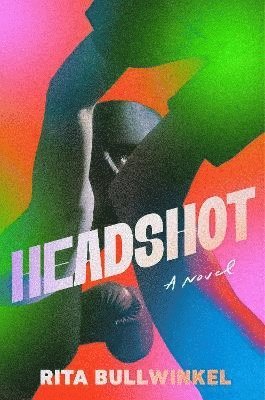
X
2025: Headshot of Rita Bullwinkel Pulitzer Prize Finalist Headshot by Rita Bullwinkel is a highly original book describing the aspirations and emotional drive of the eight young women who made the quarter finals of a national boxing tournement in the US. The overall story is well done, the structure is original and very effective. The whole piece is a real achievement. The boxing event is the national championship for U19 women. This makes it both of national importance, and also a dead-beat, out of town event covered only by families and specialist newsletters. It is the perfect mix of professional sport with no media or popular coverage. The standard of training is high, but these are ordinary people, with no glittering career in front of big crowds ahead of them. Everything, drive and achievement, is internal. Bullwinkel takes each participant in each quarter final and gives us an intimate, close third person history and current picture of them, the events and relationships that shaped them, and what drives them onwards. The flashbacks are emotional and moving, their observations are incitive, and there is enough focus on the current fight and their own technique and actions to make this a believable description of what is going on in their head. The author treats us to an occasional flash forward also, to round out our relationships with the youngsters before us. The reader's first relationship with the first participant is emotional enough, but this is intensified when we are given a second relationship with her opponent. We now have close third person intimacy with both fighters in a knock-out match, which makes us extraordinarily biased. It is a challenging journey for all three of us. The random jelly of memories and desire to win from both directions overcomes us, and our fascination in the outcome of the fight becomes overwhelming. Most of the book is taken up with the eight pen-pictures that form the quarter finals, but the approach is repeated for the semis and the final. Shorter this time, as further pictures build up on what has gone before, the foundations are already there. The four losers are gone, however, their aspirations destroyed. This is knock out boxing, no room for sentimentality here. It all works extremely well. I can't remember the last time I was so emotionally caught up in the outcome of a sporting tournament. Bullwinkel has produced a winnner.
| 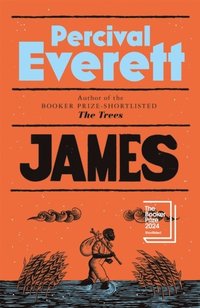
X
2025: James of Percival Everett Pulitzer Prize Winner James is a retelling of the classic novel, Huckleberry Finn of Mark Twain, told from the point of view of the slave, Jim. It is the second year in a row that the pulitser prize winner is a retelling (more or less) of a classic novel. This story gives a new perspective of the old story, and extends the ending so that it completes James' story, which goes further than the story of the original protagonist. In this version the slave community is well spoken and educated, but must play dumb and speak in a contrived dialect in front of white slave owners in order to safeguard their position in society, no matter how reluctantly they must occupy that position anyway. James is exceptionally well spoken and educated, within his community. This feature directly addresses criticism made against and resentment of the treatment of slaves in earlier versions of fiction covering these times, including the original version of this book. In James the feature is probably exaggerated to an unrealistic level, but this is done to stress the point and is justified in this work of fiction. Once the reader has ridden over the strangeness of all of this, we set off on an exciting adventure. It's unrealistic in the Richard Hannay tradition; the slave probably treats the threat of his own punishment and death, if caught, too lightly; the artifacts that allow the adventure to flow forward are too contrived, but everything still works in this genre. The book must be accepted as a blend of literature and thriller to provide the appropriate licences for how the story flows, but that is OK, and follows a grand tradition. James becomes the protagonist and leader of the story, arguably taking his rightful place, where he should have been all along. Yes, the story follows one already written; yes, the contrivances are simplistic and yes, the book drives home its point about how the slave community should be treated by modern readers in a way that is unsubtle, (even if it is wholly right!) But all these things work in the genre of the book. Once the reader accepts them, the book becomes a fine read, an exciting adventure. A winner from Percival Everett, that should do more than sit alongside the original. With respect to the wonderful Mark Twain, who was a man of his time, it should replace it. |
Older Stuff
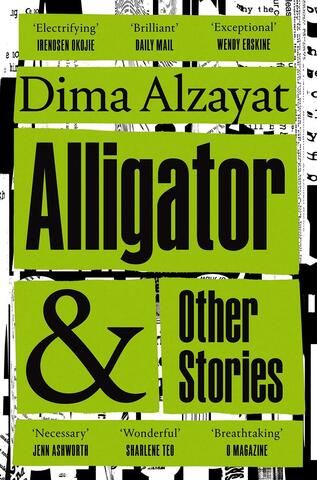
X
2021: Alligator & Other Stories, by Dima Alzayat James Black Shortlist A collection of short stories, varied, different, experimental. Mostly very good, but the focus is pretty relentless on the inhumane treatment of the weak, often women and children, by the powerful, and this makes it a challenging and depressing read. When reviewing it I had to double check which stories came from here, and which from Sarah Hall's Sudden Traveller. There is much in common between these collections. The disappearance of the poor boy from a New York street is the one which stuck with me. As in McGregor's Reservoir, the author focuses on the aftermath rather than the event, but she uses children's imaginings, which get pretty vivid, and so the reader is not spared. It's a terrifying read. No doubt other stories will stick with others, but mostly with the same outcome. We see the sorrow and grief that follow bad things happening. Ghusl's story of the sister having to lay out the body of her childhood playmate brother is particularly painful to read. There is much beauty here, the fragile, broken, decaying beauty of autumn. The language is lovely, the differing structures of different stories break up the book and make it technically fascinating to read. But don't expect much warmth. This one takes you to dark places.
| 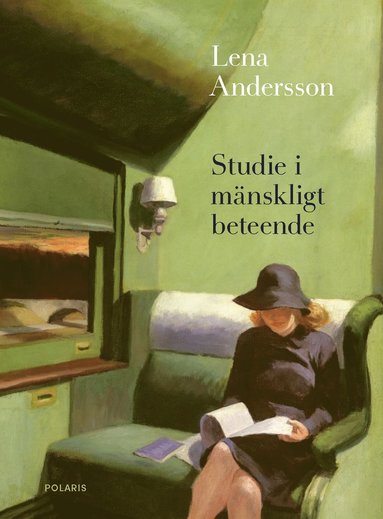
X
2024: Studie i mänskligt beteende av Lena Andersson 2023 Augustpriset kortlista Det här är en novellsamling, korta, med klippt och elegant text, som svängar runt i en cirkel så att vi träffar samma karaktärer igen och igen. Vi fokuserar mest på kvinnliga karaktärer, och framför allt på en. Hon migrerar över världen som 20-åring, bara för att omedelbart vända och migrera tillbaka igen för att gifta sig med sin man. Denna kärleks seger - en vardaglig, normal kärlek - över äventyr, är central i alla andra berättelser. Den första novellen är helt underbar; ett masterverk av concentration och flytande tid. Historien börjar på en plats och tid, fortskrider först långsamt, hoppar sen över två, tre decennier som en insekt som hoppar över ett löv. Sen fokuserar det igen på ett brev, en morgon, och konsekvenserna som är förödande. Utmärkt, en fantastisk novell. Den är det bästa, och noveller som följer är intressanta och eleganta, men stiger inte till samma nivå. En fin samling, absolut läsvärd även om det bara är för den första berättelsen och inget annat. Bra och trevlig.
| 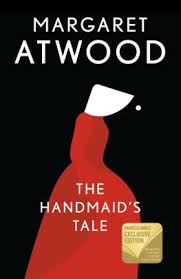
X
2019: The Handmaid's Tale by Margaret Atwood This book was surely an all time classic as soon as it rolled off the presses. Atwood's dystopian nightmare is rich and terrifying because it only gives us the minutae, the detail that one sees under one's nose. The wider picture is only ever guessed at, the most powerful images of the novel all happen off stage. It is beautifully done. The story follows a slave who works within a nightmare future of the US. She is forced to wear a headdress at all times which restricts her vision only to what is directly in front of her. Atwood cleverly extends this metaphor to the whole telling of the story: she describes the regime and present life only through the narrator's restricted view; history only through her personal memories; wider view only when her master illegally takes her on a trip with her headdress off. It is very well done, the tightness of the view and the binding of the tale to the immediate senses of the narrator serves to increase the emotion and tension built up in the reader. The awfulness of the regime is only ever hinted at from seeing the crumbs of desperation that drop from an unseen table. It is extraordinary that the tale was written before the brief IS dictatorship of the 2010's, which focused the world on similar deprivations. It is chilling that while the tale is fiction, each particular depravity featured within has happened, most often to women, in history. The ending actually has some hope in it. This is partly a narrative device to allow for the fictional diary to have been released, but also a sign of humanity. It gives the tale more humanity to allow it to go up as well as down, even if this serves to unfortunately humanise the low points as well. Original, chilling, very well told. It conjures up a whole world without ever seeing it head on, which is a real achievement. Truly a classic.
| 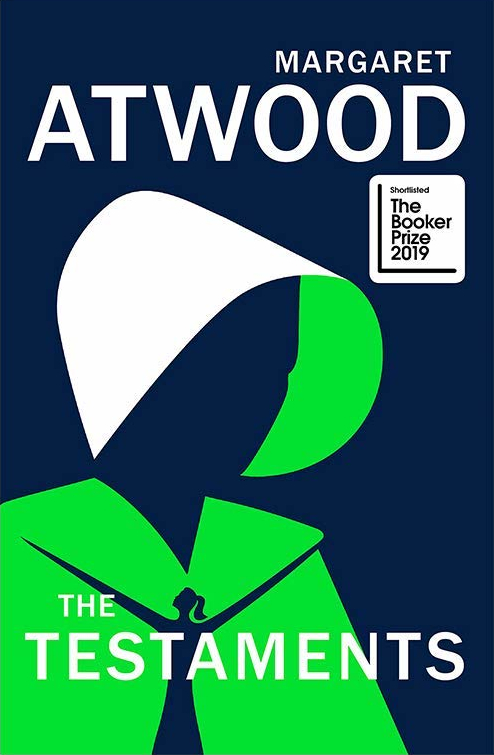
X
2019: The Testaments by Margaret Atwood The Testaments continues the story begun in The Handmaid's Tale and allows Atwood to close out the life of her tragic narrator. The ending is a happy one. The human part of me is of course delighted, having formed such a close relationship with the narrator in the original, but the reader considers this to be an indulgence which does not really advance the brilliant and shocking tale of the original. It's nice though, and one cannot fault the author at all. The book is remarkably different in tone for a sequel by the same author, really it is a different genre. This story is a thriller with secret messages, secret punches which take out the baddie, close shaves and boat chases in the night. There is a tight plot which needs to progress, leaving less time or even no time to illuminate deep messages through actions of the characters. Reveals need to be rapid to allow for the next step of plot. It all chugs along and the narrator struggles to keep up with her changing situation. Tension builds towards the climax, will they succeed or won't they? In fact the reader finds it hard to believe that Atwood would go to all this bother only to have it fall apart at the end. Would she really? Well, no is the answer, and the family are reunited in wonderful Canada. The book won awards, but it is not a patch on the original. It is a nice finish, one cannot begrudge for a moment Atwood giving such an end to her most famous creation. Sherlock Holmes got his retirement cottage in Devon and the Handmaid got her family in Canada. Both are welcome to them, but both endings are quiet. The real genius came with the original story.
| 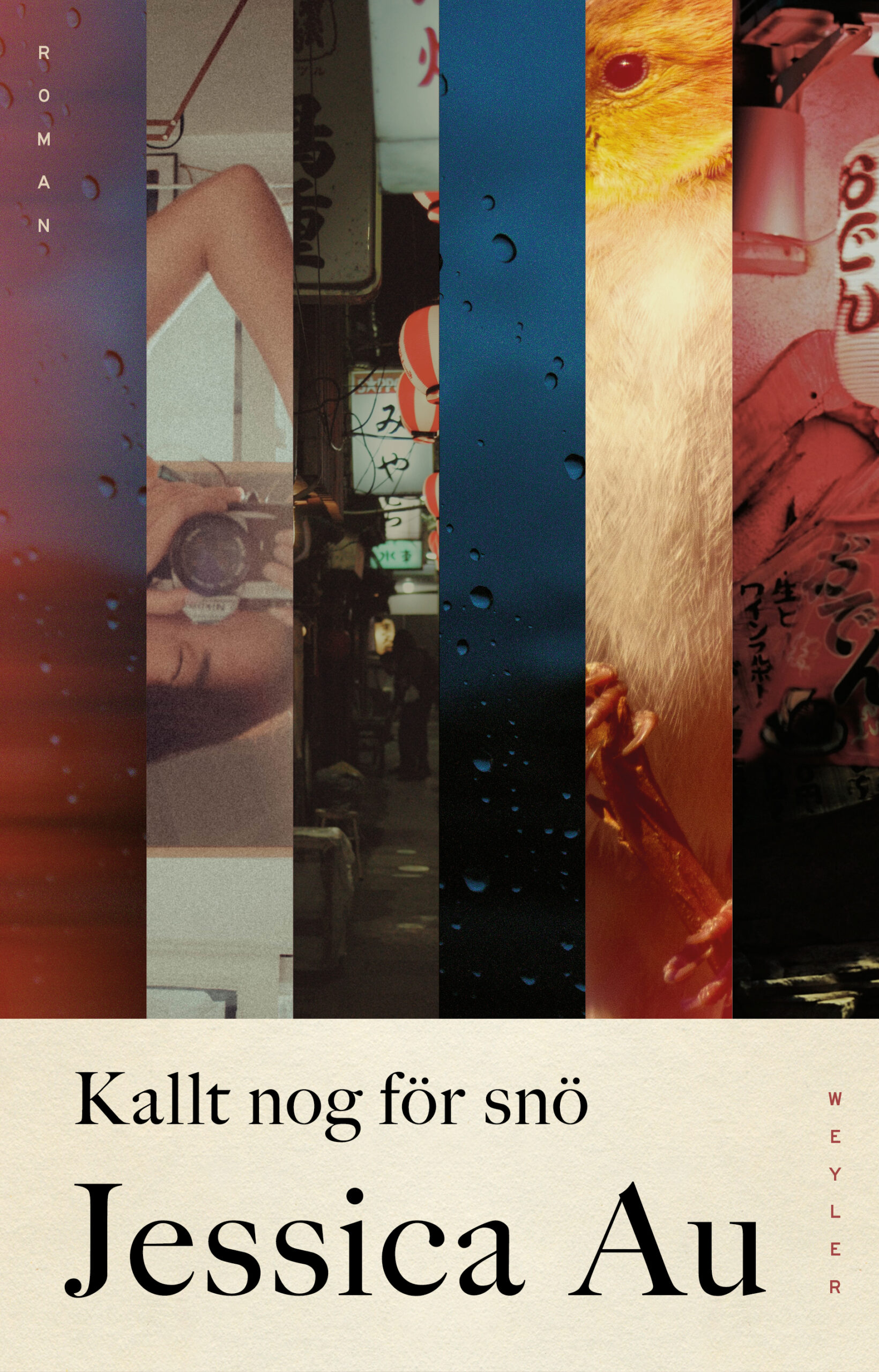
X
2024: Kallt Nog för Snö av Jessica Au Trollhättan Bokcirkel Det här är en fantastisk bok av Jessica Au. Man kan läsa det som något langsamt, vackert och enkelt, bara en resa till en utlandskt stad av en mor och dotter tillsammans; eller så kan man analysera den och hitta hemliga betydelser under texten. Grunden i berättelsen är att en dotter reser med sin mor till Tokyo och andra städer i Japan för att titta på museer och konstgallerier och prata om livet och barnsdomsminnen. Berättaren är dottern och hela sagan sitter djupt i hennes huvud. Det finns ingen dialog, inga av mors känslor, inga åsikter utan hennes egen. Det finns många minnen från tidigare i livet, och flera är långa och komplexa. Det är alltför lätt för läsare att tappa platsen i berättalsen och bli förvirrad över vilken nivå av berättelse, minne eller minne av ett minne vi befinner oss i nu. Romanen är kort, intensivt och passionerad. Språket är vackert, farten är riktig trevlig. Det här stilen kanske passar inte under en längre roman, men den passar fint här. Man kan läser boken på exact det här nivån och det funkar bra på det sättet, men det här berättarstilen kommer också till en djupare mölighet. Kanske är hela resan en hyllning till dotters avlidna mamma, som inte finns längre, och dottern är ensam hela tiden. Det finns en scen i andra halfan av boken var dottern kommer tillbaka från en vandringsled och mamman är borta och hotellägaren säga att hon hade en enkelrum hela tiden. Det är en märklig scen, och man undrar varfor författeren sätte det i boken, om det inte är för att stödja denna djupare tolkning. Aus största bedrift är att skriva en roman som kan lästas på olika nivåer. Författeren kommer inte att svara för läsaren vad som är rätt, och vad som är fel. Faktiskt fungerar flera nivåer lika bra, och läsaren kan välja vilken nivå som ska läsas boken, och detta är mycket bra gört. En fin bok.
| 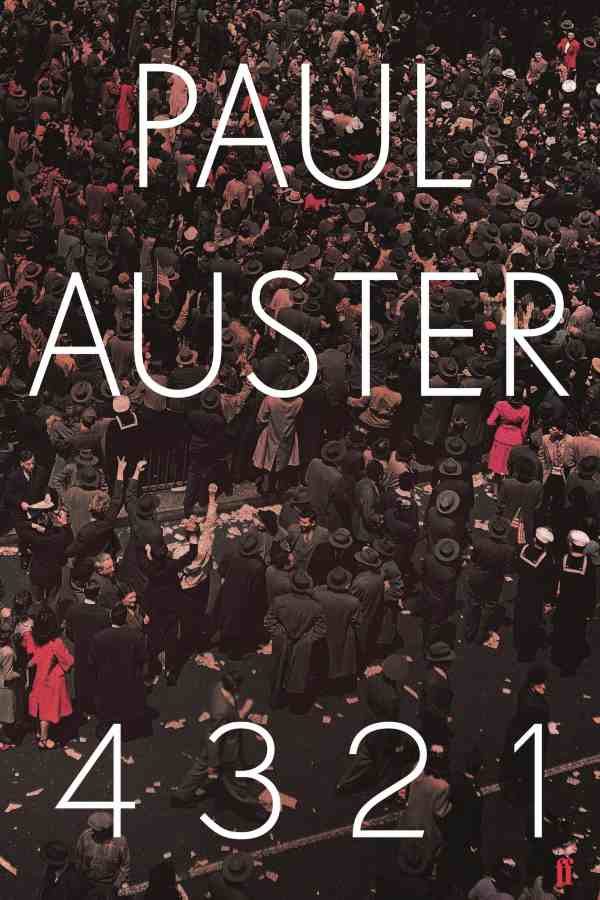
X
2017: 4 3 2 1 by Paul Auster Well, it is a tome. It weighs in at 860 pages, three times the length of others on this year's Booker lists, but that is only half the story because word density per page is 150 - 200% of the others also. It is more than 6 times longer than Exit West. This book gives a biography of a person, but does so in 4 simultaneous versions, with same actors, same places, but different stories and actions. There is no obvious artifice - no sliding doors on a train - to separate the stories, although there is a key point in the fortune of the father's business which acts as an indirect separator. Writing is extremely good. It is detailed and meticulous (Walter Scott would probably approve). It brings in a large cast of characters and is consistent, across the separate tales. In general financial success breeds unhappiness; a natural born writer becomes a writer in different ways; people act according to their personalities which don't change, despite circumstances being dictated by actions which do change. 3 of the characters die off, and in the final page the author makes it clear that the 4th character represents an autobiography of himself. It was all so complex that I ended up keeping notes to separate out the tales. But... ...the core points of this approach could have been made in a short story of 50 pages. There is far too much detail. The stories are not full life biographies because they get stuck in adolescence and early adulthood, and disappear into rabbit holes of losing virginity and splitting up from first girlfriends in mind-numbing detail; also student politics and protest marches in the same mind-numbing detail. The novel tries to make points about human nature based on the superficiality of decisions made by a 17yo, and it all gets a bit petty. The autobiography of Alan Partridge kept popping into my head. This same complexity meant that I built up no empathy with any of the characters, because there was no such thing as a single character, and this seriously disrupted my emotional connections to the book. The author gave far too soft a ride to the central character, who was lauded as a hero by those around him for producing teenage poems and unconventional novels. It started to become an imagined utopia of what the author had wanted to happen to him during his own early life. Alan Partridge again? A first class piece of writing, but really unfortunate that it all went down such narrative rabbitholes. A more conventional tale that moved quickly on from adolescence to more interesting periods of life would have been a far more worthy focus for writing of this quality.
| 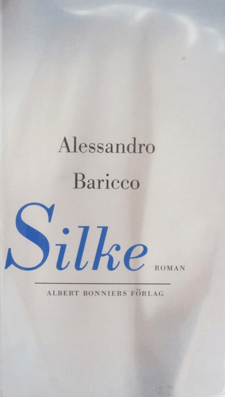
X
2020: Silke av Alessandro Baricco An intressant berättelse om en fransman som hittar vägen till Japan när landet var stängt för utlanningar. Han kunde ta tillbacka silkeägg och han blev rik. I Japan fanns det an annan värld med unga kvinnor, mäktiga män, krig och fred men han kunde bara titta på det en kort stund innan han återvände till sitt eget land. En kort bok, bara en lång novell faktisk, med många, korta kapitel. En bra historia, visar skillnaden mellan mans egen land man kan se hela tiden, och en avslägset, främmande land man bara kan se en ögonblick. Vilket är viktigare?
| 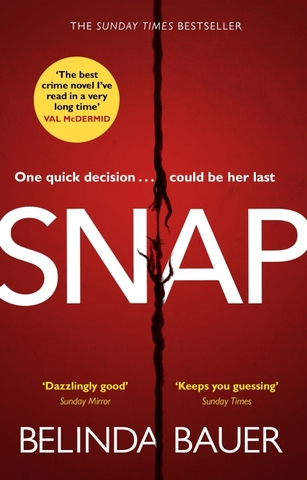
X
2018: Snap by Belinda Bauer Longlisted for this year's Booker. A couple of years ago the appearance of The North Water on the Booker long list led to a debate about what is literature and what is a thriller and where do they meet? No such debate required this time around. This is an out and out thriller with no pretence at anything else. The story is nasty at times, with lots of serrated knives and an abundance of pregnant women. I suppose for the sort of people who like that sort of thing then that is the sort of thing they like. There is a bad cop from the city who breaks the rules and some unruly kids and a nosy neighbour who happens to be the good cop's mother and, well, you get the idea. It all rumbles along. When the plot requires a bit of thought it gets, instead, an outrageous narrative device which would be lame in any other genre and continues going regardless. In the end there is a disappointing lack of twist and the killer turns out to be not the good cop and not the suspect's wife but in fact the suspect. Perhaps there was a double bluff there which passed me by. Characterisation is cardboard, main plot is nasty, basic plot and character setting is hackneyed, intermittent devices are at times ridiculous. None of this is necessarily a criticism, arguably much of it forms part of the ride for a book of this genre. Most of it is true for Agatha Christie's books, many of which are wonderful. This one certainly is thrilling and I read the second half in one sitting. The book does what is says on the tin and has no pretences to do anything else. An adequate, perhaps even a fine book of its genre, a bit lacking in an ingenious plot twist. Just one question remains... ...what on earth is it doing on a Booker long list? Someone, somewhere is confusing genres.
| 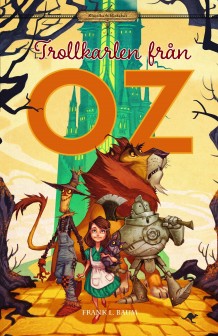
X
2019: Trollkarlen av Oz av L. Frank Baum Den här boken var den första jag läste på helt svenska. Jag minns att lyssnar till den här boken med barn i bilen för många år sedan. Den är glada minnen. Boken är fortfarande fantastisk att läsa. En enkel saga av en flicka med magiska vänner, den har många nivåer för barn och för vuxna också. Dorothy har äventyr i ett magiskt land, eller kanske Dorothy letar efter sig själv och upptäcker att vad en person tycker om sig själv inte alltid är rätt. Hitta Dorothy hemma eller hitta Dorothy ett nytt liv? Saga är djup men också spännande; enkel men också fylld med mening. Den här sagan är också ett klassikt exempel på strukturen i en historia, så är också en bra lektion i hur man kan skriver en saga. Vinn, vinn. En gammal historia på absolut varje lista med gratisboker, men den är fortfarande en av världens bästa sagor än.
| 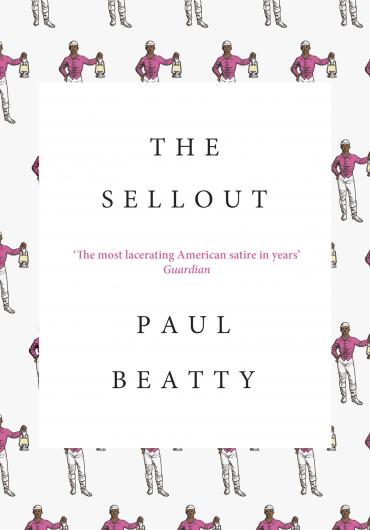
X
2016: The Sellout by Paul Beatty Sigh, read about 20% of this. Shot through it quickly too, and could have completed for sake of another 120 minutes I think, but not sure that I want to give up that much of my life for this. A stream of consciousness novel (don't think that I have ever finished one of these :) ) around life of black youngster growing up in a racist USA, making its point by radicalising the racism through the eyes of a black person. I'm sure it is enjoyed by the sort of people who enjoy that sort of thing. Not me.
| 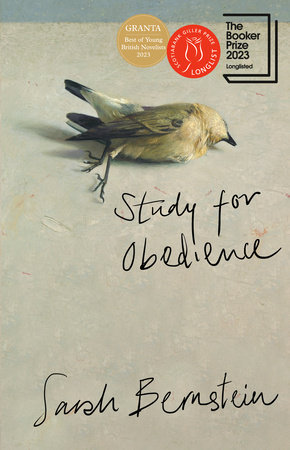
X
2023: Study for Obedience by Sarah Bernstein Booker Short List Unfortunately, time slipped by between my reading this book and writing the review. This novel of Sarah Bernstein never really lets the reader settle into a familiar structure or recognised plot. A lady moves to a remote Scottish village to act as housekeeper to her brother. He is uncertain, the house is large but mouldering, the villagers are unwelcoming. She falls into a set way of life, but strange events happen to the farms of the locals and the newcomer seems to attract the blame. Are things going to become more clear? No, is the answer. Plot elemens continue to swirl around and the reader gains certain insights into the thoughts of the protagonist, but must not expect any conclusions or settlement. It's all rather pleasant and dreamy, and the landscape, in all its gritty starkness, is well-described. But there is no beginning, middle or end; no journey for the protagonist to take and complete; no conclusion or dramatic change in character. It's nice enough and well written, but hard to judge on just the jostling of movement, without start or finish.
| 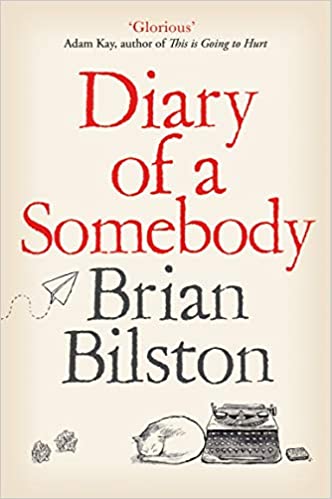
X
2020: Diary of a Somebody by Brian Bilston A diary, in the style of Adrian Mole, about a struggling poet who wants to write literature but cannot really face reading it or writing it. He fails to be successful at anything else while failing to be successful at this. His low sense of self esteem is compounded by a member of his poetry book achieving great success with poetry that the narrator does not like. It has some funny moments, amidst the gloom, and even a happy ending, conjured up from somewhere. It is a bit of a struggle to really enthuse about this one. It is terribly well trodden ground and instead of trying to lay a new path the author delights in strolling down the middle of paths already laid. The author acknowledges Sue Townsend's Adrian Mole books at the end. They were clearly an inspiration for him, as indeed these wonderful creations were for me, so one should respect that. But still, the central plot of this book does repeat the central plot of Adrian Mole's first and second diaries very closely. I can't really see the benefit of going quite so close here. There is the suspected murder outcome at the very end, but that is just a single device, it doesn't justify the whole story direction in itself. The failure of the central character to organise himself, and the tragic mess he makes of his redundancy money, is quite amusing. However, the single line is a bit unremmiting, it would have been much better with another direction for contrast. So quite good, quite readable, but it's too close to the original for me and doesn't take off by itself. If you want to read something along these lines, why not reread The Secret Diary of Adrian Mole instead?
| 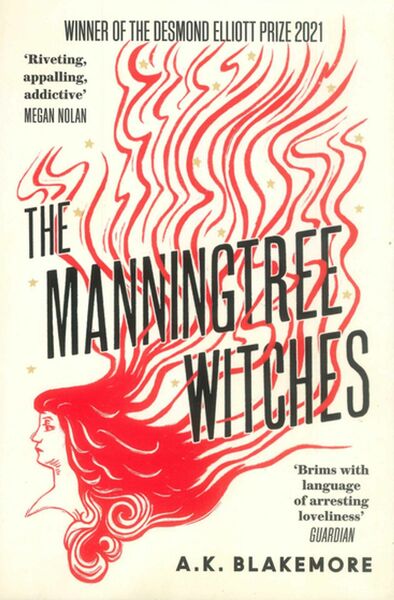
X
2021: The Manningtree Witches by A. K. Blakemore 2021 Costa shortlist This is an excellent book: descriptive, sensual, emotional. It tells the story of some poor wretches from a village during Cromwell's time who were persecuted for witchcraft by some eager, young witchfinder. Perhaps for sport, perhaps fanatical zeal, who knows, who cares. This story is not of the witchfinder, as so many others are, it is of the women. It follows them all the way: from patching together a basic life; to the strange accusations; the arrest; pitiful indignities; the long, desperate imprisonment; turning evidence and relief for the lead character; miserable execution for the others. It then allows the lead character to kill the witchfinder and escape to the new world, but that is just an indulgence of the writer. The story is beautifully told. Village life is recreated using all five senses, we have not just the sights and sounds but also the touch, smell and taste of the times. There is not much to write home about at first, to be honest, this is life barely scraped together. Accusation and imprisonment brings ugliness: dark leather of the accusers; wet rot of the prison cells; the stench of confinement. The narration is close third person, but this makes it hard to demonstrate sensual points of view from elsewhere and the author takes a few liberties in giving us a wider panorama. This is not a thriller and there is no intent to make it one. The path of the accused is wretched and terrifying; it is also long, interminable, boring as the wheels of small town process grind relentlessly forward. Dreams are used to present moods and signs of the future, although this is a step too far into the metaphysical for me. I only need read the words, "I fell asleep and saw a wonderful land," to switch immediately to skim read mode. The executions were pathetic and sad. Slightly strange that the author did not take us down this most sensual and emotional journey with her lead character, but instead gave her a more hopeful ending, grabbing the chance to suffocate the witchfinder on the way. It's a cheerful ending, given the misery of the tale, I gave a whoop when the evil devil died. But a sense that the final step of the journey was missed out. Perhaps that's a good thing. Real life has enough final steps, we all deserve a whoop after making it through this one.
| 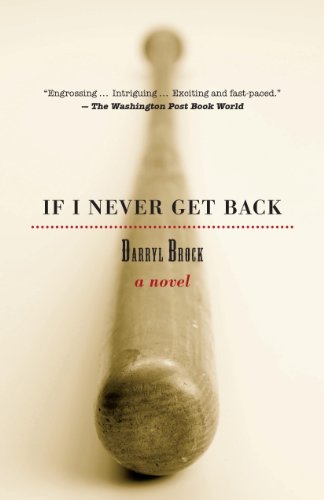
X
2022: If I Never Get Back by Darryl Brock Unfortunately, time slipped by between my reading this book and writing this review. This book of Darryl Brock should be categorised as popular fiction, likely to attract only diehard fans of baseball history, but it would be wrong to assume that for this reason it must be unliterary and shallow. Far from it, this is a well-constructed and very readable book, meticulously researched, exciting and, ultimately, gripping. It does contain lots of detail of baseball games too. Our hero gets a bump on the head and returns through time, in the style of Twain's Connecticut Yankee, to the age of the Cinncinnati Red Stockings and the beginnings of organised baseball. He joins up with the team and plays along. He also falls in love with an irish girl and becomes entangled with some ugly irish revolutionaries. The plot rumbles forwards, with no shortage of words to help everything along. The research of the time period is wonderful: every train, song, uniform, shirtbutton is realistically and authentically described. The diehard baseball fan is delighted, but fans of social history should be pleased as well, and there's no shortage of adventure thrown in, between the history lessons. All should be happy apart from literary editors: they'll be thinking that they could lop a third off this book and make it much tighter and more impactful. Apart from that, it's a winner.
| 
X
2022: Glory by Noviolet Bulawayo Booker Prize Shortlist A long and passionate book of Bulawayo, I regret that I didn't finish this one. The tale is a bitter spoof of the dictatorship of Robert Mugabe. The story is presented as a parable using animals, in a clear invocation of Orwells's Animal Farm. The language is complex. It merges dictatorial officialese with a natural dialect and bitter sarcasm to create a complex hybrid. There is a beauty in the language, but dripping with threat and violence from the violent regime. This bitterness takes over the story-telling, so that neither the parable of animal life nor progression of the plot dominates, rather it is a sad and desperate repetition of how badly treated are the ordinary people and how blinkered and depraved are the dictatorship. It is all very tragic, but I found it all a bit stylised and slow-paced for me. I gave up with no little guilt, given how important the message is.
| 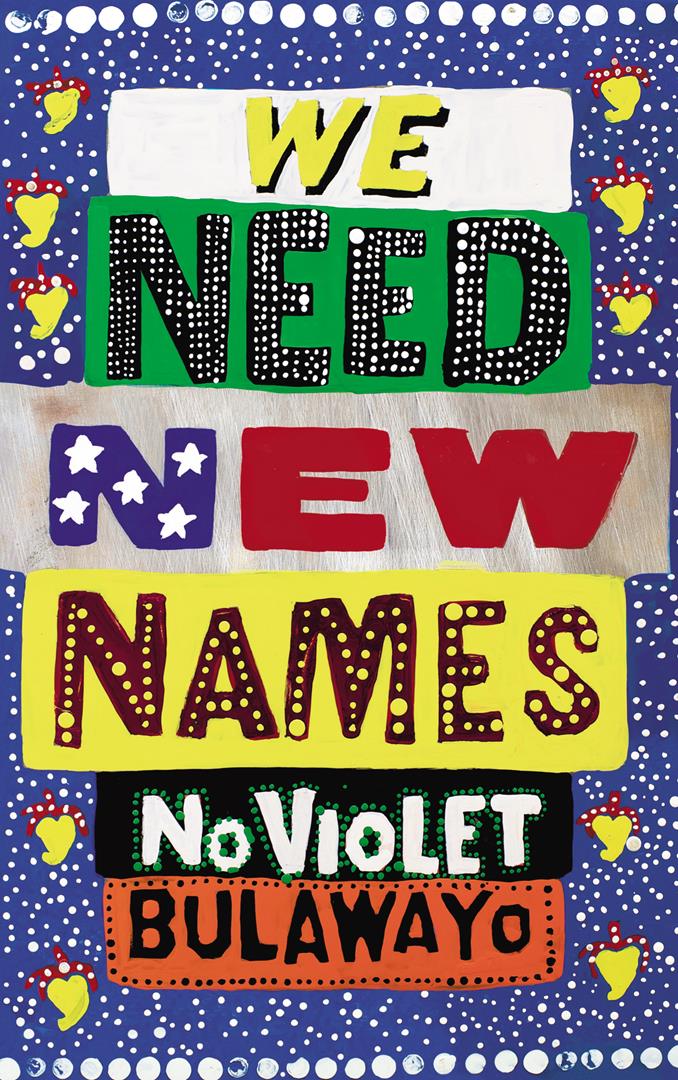
X
2013: We Need New Names by No Violet Bolawayo Thought I might drop this after only a few pages, but stayed with it and became much more drawn in very quickly. Narrator is full of passion and feeling and life, quite unlike the above, but in this case her young age and consequent refusal to grasp long term horror of what she sees provides the distance required to present the scene unfolding without falling into the events themselves. While the narrator is no angel, the reader quickly takes up empathy with her, and even with her less angelic friends. Contrast of life in US is a nice shift, which reinvigorates the tale being told, while still preserving links with the opening half of the book. although the tale of the death of the activist told through the youngsters acting out the drama in a game is vivid and well told. But still, perhaps there is a lack of originality with telling a disturbing tale through young eyes. Perhaps the author tries to squeeze in too many key events of life in both environments, with a few too many dramatic things happening. Perhaps the author is guilty of treating Africa as a single place on a couple of occasions, just as her narrator complains that others do this. Quite different from the above, in that this book is more disjoint, more uneven, relies more on standard artifices, but is full of passion and emotion and generates the emotion of the reader. One can fall in love with this tale.
| 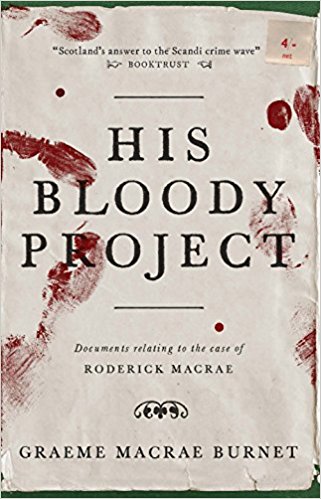
X
2016: His Bloody Project by Graeme Macrae Burnet Booker 2016 longlist outsider, from a very small and independent publisher. This modern novel is written very much in the style of strongly presbyterian 19th century Scottish literature, and so is immediately a strong favourite with me! The narrative tells of a triple murder by a young lad from the village, and gives different accounts through witness statements and accounts of the criminal trial, but also gives over half the novel to the autobiographical memoir of the killer. This style, both organisational and narrative, is immediately reminiscent of Hogg's Private Memoirs, of course, and I suspect that Faulks' Engelby is influential also. The story is well told. Perhaps takes liberties with devices such as the literacy and anglicised language of the memoir for obvious reasons. Perhaps also a couple of errors: I'm sure that school leaving age for that time and class was not 16. The structure, including the bloodstained cover for the print, works well. The ending is well integrated, and I am impressed that the author did not sugarcoat the ending, nor draw it out into a Poirot-like definitive finale. I think the outcome was there for the reader, but I had to look and come to my own conclusions. Perhaps other readers will reach a different conclusion, and I think that is a compliment to this novel with this structure. Quote of the year: "I had no plans. To make plans is a sin against Providence." I might get this etched onto my List of TTDT paper :) Very good opener for this year.
| 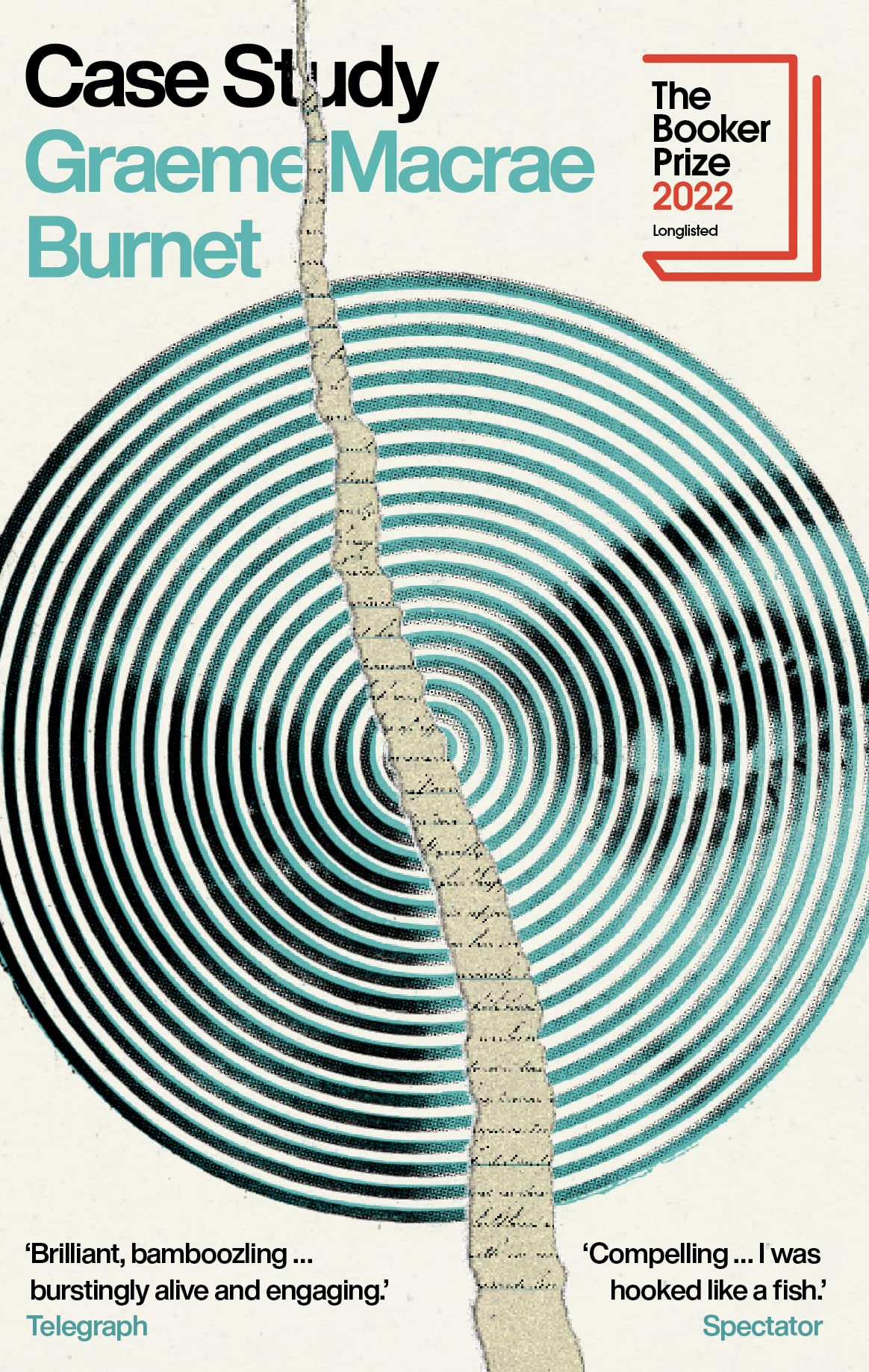
X
2022: Case Study by Graeme Macrae Burnet Booker Prize Longlist Unfortunately, time has slipped by between reading this book and writing the review. But now that I've got round to addressing it, it won't be written by me, it will be written by someone else pretending to be me, or maybe me pretending to be someone else. Is that clear? Burnet's previous Booker short-listed masterpiece was in the style of Hogg's Justified Sinner, where he interspaced autobiographical description and editorial description to paint a picture of an accused murderer in which the reader never quite knew what they could trust and what they could not. In this follow up he tries to complicate things even more. A woman goes undercover to investigate a possible fraudulent psychologist. Now everyone is not who they seem and the reader knows that they can trust no-one. Where do we go next? Well, we keep reading of course, and that is no hardship because the book is well written, plot is interesting, pace is enjoyable. The pages flow, but do we ever really know what is going on, and do we find out definatively in the end? No and no is the answer, but it's an enjoyable journey, so that's OK. A clever and well written book, which perhaps hides too much to be a real winner. Mystery is great, but perhaps the author hides the plot behind too much of it, and a better book would bring more out into the open.
| 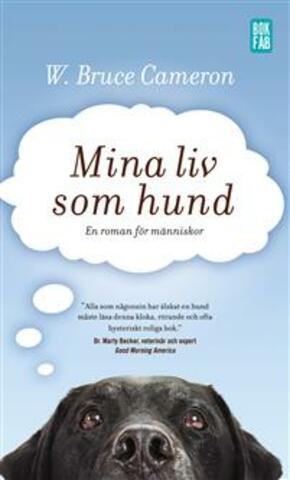
X
2021: Mina Liv som Hund, av W. Bruce Cameron Vilken fantastisk bok. En berg-och-dalbana med glädje, sorg, äventyr, liv och död, kärlek och framfor allt, vänskåp mellan pojken och hunden. Jag läst högt till familjen kapitel när hunden hittade en skunk och vi alla skrattade; jag had tårar i ögenen när Buddy skyndade tillbaka från college för att se hunden en sista gång; jag blev imponerade när hunden räddade flickan i vattnet. Original, rolig och äventyrlig, en utmärkt bok. Buddy är en hund med en pojke, som i hundra böcker. Men Buddy är lite annorlunda, han har levt en, två, tre gånger. Med varje död kommer nytt liv som en ny valp men samma anledning till livet: att försvara sin pojke. Berättaren är hunden, så vi tittar på världen genom hundens öga. Han kan skriv ner alla samtal, men förstår inte allt. Han kan lukta saker som manniskor inte kan. Det finns tillfällen som läsare förstår men hunden inte; det finns tillfällen då hunden och läsaren förstår men andra karaktärer inte. Original, men det fungerar och perspektivet är nytt och fint. Historien forsättar. Vi har alltid hunden och pojken i mitten, men andra riktningar och andra ägarer är viktiga också. Vi gå vidare, och upp och ner. Författaren är inte rädd - absolut inte, faktiskt - att gå till känslomässiga platser om det fungerar. Vi skrattar och gråter. Efter jag läst boken hela familjen tittade på filmen. Oj! Skratt och tårar där också. Man behövar en hel låda näsdukar till filmen! Så småningom klarar vi berg-och-dalbanan och hund och pöjke träffas igen. Inte en pöjke nu, utan en gubba, men en fint avslut i alla fall. En fin bok, en utmärk resa.
| 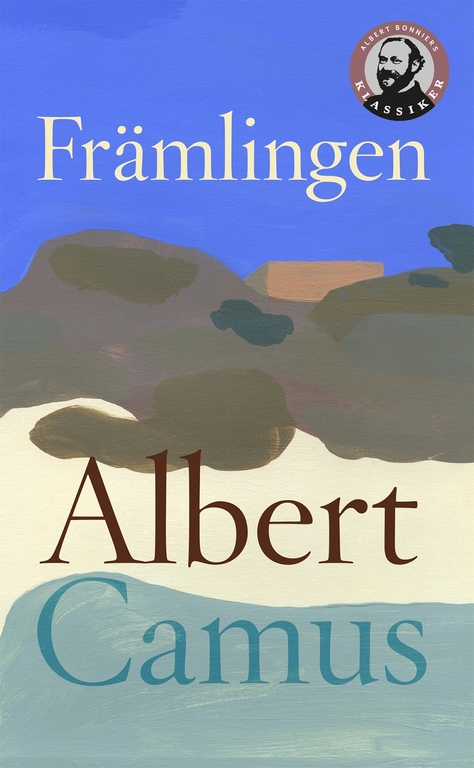
X
2022: Främlingen av Albert Camus En världsklassiker av Albert Camus, med den kanske bästa första raden i hela världslitteraturen. Den här utmärkta boken följer en främmande och omoralisk man när hans mor dör, och han rasar ner från en brutet förhållande till ett annat. Till slut dödar han en annan man, och domstolen ger honom en dödsdom. I sin cell filosoferar han över liv och död, men utan moralism och empati är hans tänkar mörka och hemska. Camus masterverk är en djup och intern utmaning för allt som vi normala människor tycker är viktig och rätt. Ett mörkt verk, och säker en klassiker. De första två meningarna lämnar dig aldrig riktigt.
| 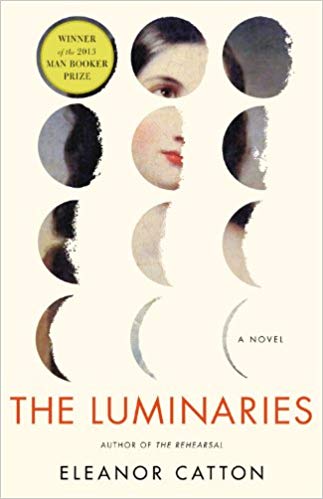
X
2013: The Luminaries by Eleanor Catton An authentic capture of a 19th century style of writing, although perhaps a little irreverant of God for those years. Immaculately constructed, and occasionally a lovely purely Wodehousian line pops up unexpected! Paraphrase - The man's name was Drake, although upon seeing him one was reminded less of the great naval captain, than of the waterfowl, which he resembled. Great fun with murders and secret plans and gold digging, all centring around a private meeting in a smoke filled room. Impressed that novel maintained its structure towards the final denoument. The book is told in a neat structure with each chapter exactly half the length of the previous one. This has the final chapter length just one sentence, and all of the ending of the story is told in the final chapter chapter heading. This is a nice touch. I much regret that I read this on a kindle and only cottoned on to this really late on! A few pieces remained unexplained, including Anna's feelings about Emery and her ability to forge his signature, or are we to yield romantic fancy on this issue?! Very enjoyable, gripping, clever spiralling of the plot, dancing about across different threads of time, as it closes in upon that final chapter with it's heading depicting the actions of the 12 protagonists, described over so many pages in the first chapter. Very pleasing. A great work.
| 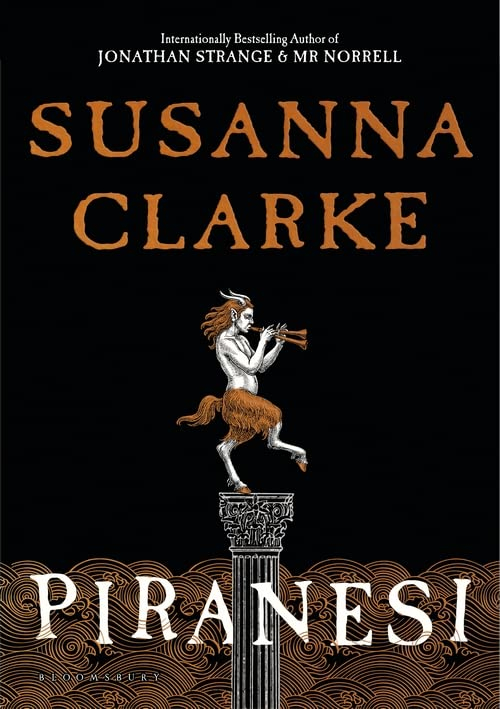
X
2020: Piranesi by Susanna Clarke Costa Novel Award, Shortlist A strange, surreal, odd, discombobulating work of Susanna Clarke, it eventually resolves itself into a nightmarish internal illusion, and not the weird postapocalyptic fantasy it threatens at the beginning. Once the reader recognises echoes of Wyl Menmuir's wonderful The Many it is impossible to go any further without comparing the two. The narrator describes his personal world as he splashes about a seemingly endless series of rooms, each vaguely reminiscent of some Greek hallway filled with statues of mythological beings, all flooded with water that sweeps up and down in a complex system of tides. Slowly, various details of life, seabirds and even other people are revealed. Eventually a plot filters down that our hero has been brainwashed and imprisoned by a mad, well, brainwasher and imprisoner and the whole thing is an internal fantasy. Exactly how the plot comes out is not easy to explain, but lots of it comes through diary entries, and eventually conversations with the good guys who break into this imprisoned world. It is well done, encapsulating - in a kind of obsessive routine kind of way - interesting to see the outcome unfold. However, the reader never really breaks out of a vague fog as to exactly who is who and who did what, the details remain clouded by mysticism, the perpetrator remains a vague mystic. This probably mimics the understanding and outcome achieved by the narrator, but I found it rather unsatisfactory. Consequently I found that it didn't relate much to me or my life. Don't play magic circle games with dark eyed mystics seems to be the only lesson coming out of this, which is a bit niche. It wasn't a shortage of plot detail, there was lots of that, enough to change the pace and focus of the work considerably from the early chapters. But the key questions were never really addressed. How did the mystic actually brainwash this poor victim, how did it actually happen, given that both author and reader are rational people and don't actual believe in mysticism? Well, he was a mystic and just did, seems to be the answer. I found it paled in comparison to Menmuir's masterpiece. It was quite good, the reader got quite caught up, but I was disappointed that the author couldn't relate this clever idea back into more mainstream life more tightly, and I think it suffered as a novel because of this.
| 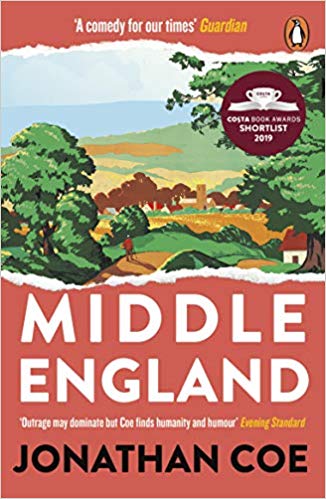
X
2019: Middle England by Jonathon Coe A comedy, but I found it rather bitter and unpleasant. The book sets up some unpleasant charicatures of middle Britain, a bit reminiscent of the TV show Little Britain, then repeatedly shows the reader how awful the population is. If viewed as a satire of the country then it is arguably sharp and cutting, but for me it was consistently petty and mean. Little Britain is now a generation old. Its characters have grown old, many have died. That show satirised an older generation which has now moved over. Today in the UK the middle class, middle aged population are exactly the original audience of that show. Satirists need to grow up with the generations and recognise that attitudes have changed. They should satirise their own times, and not the age of their parents. I waited for a more optimistic counter plot, but gave up when none materialised by half way.
| 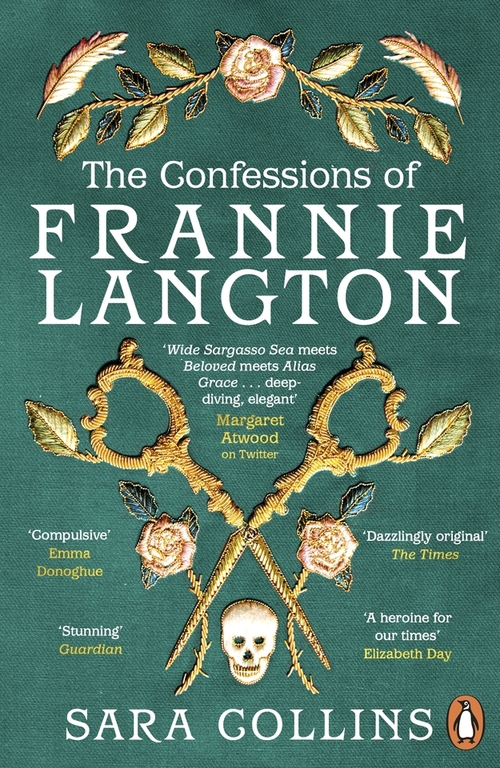
X
2019: The Confessions of Frannie Langton by Sara Collins Winner Costa First Novel Award, 2019. What a superb first novel! The story is told mostly in flashback from the trial of Frannie Langton for murder. It moves from a slave plantation in Jamaica to London, always following the fortunes of the eponymous hero and so experiencing life only through her restricted view. The story is part historical fiction, part personal drama, part thriller as the unfortunate hero lives through the worst experiences of life and later takes control of her own fate, at least according to the prosecutor. The background to Frannie's tale is a shocking and frightning aspect of the slave trade. Misguided anatomists carried out experiments on human bodies searching for evidence that would demonstrate psychological differences between slave owners and slaves. In extreme examples of the latter case that even involved bodies before death. Frannie was forced to act as an accomplice in a dark side to this. The story moved to London when the slave owner moved there, taking Frannie with him. The story moved on, she found friendship with a society lady, and later came death and murder. Frannie is accused of betraying a friendship. At its end the book absolves her of that, she is guilty of murder arguably justified by her background. The court does not care for the difference and condemns her to death regardless. The story is well told, the reader is bound to the fate of this unfortunate. The background is horrific, but is laid out in a way that is justified. The helpless infant at least is saved at the last moment. Frannie does meet love and friendship in her life, even if she cannot escape the fate of tragedy that has dogged her every step. It is all very well done.
| 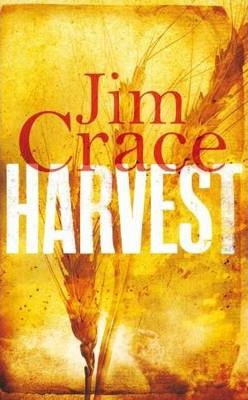
X
2013: Harvest by Jim Crace Good solid read. Focuses in on a single week in which outsiders enter a village, and then not just law and order but whole way of life deconstructs. Story deals with medieval savagery of everyday life in a matter of fact way. Narrator is clverly contructed neutral figure, and manages to view events with a dispassionate, distant eye. Recurrent theme draws back to narrator's own departed wife and love, whose departure detached him from ongoing life, and so is a factor in allowing him to view in such a dispassionate way. Tale is from so long ago and narrator is so dispassionate and savagery is only shown behind closed doors and effect of all of this is to keep the reader's passions at bay, and the story refuses to grip to quite the extent it might. All in all, quite faultless, very well told, full of mystery but steadfastly refuses to become a mystery. Cannot fault the storytelling, but I think it unlikely that anyone will fall in love with this tale.
| 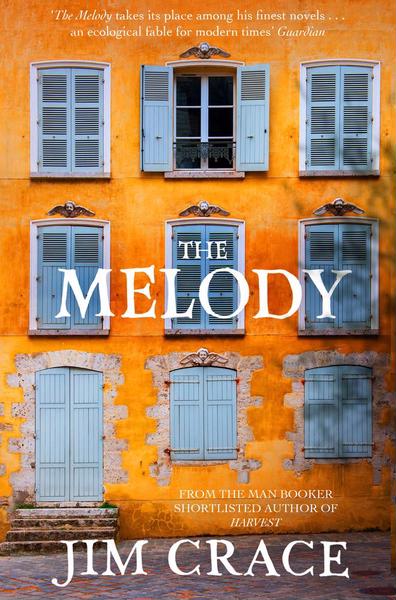
X
2019: The Melody by Jim Crace The story of an aging crooner, once a national star, now only a minor celebrity in his own town. This takes him through a week leading up to a local prize-giving which should have been a celebration. However, fate conspires to provide a series of unfortunate events - tragic, at times comic - which have him miss it all. Most of these events relate to our crooner bumping into the poor, the desperately poor and the mythically, inhumanely poor. One is saddened by the story, even the comical bandages which provide light relief. One ponders the contrast between success and poverty. One wonders at the encroachment of mythically poor, barely human creatures at the edge of the forest, and tries to analyse what the author is driving at. But unfortunately I found that none of this was wrapped up to any real conclusion. Lots here to wonder here and try and analyse, but without more of a clue as to where this was going it just petered out for me. It's a pity, because the writing is excellent. Descriptions, pace, character all fascinating. Structure absorbing. A touch of myth into real life intriguing. But the overall message passed me by and consequently the book was not impactful.
| 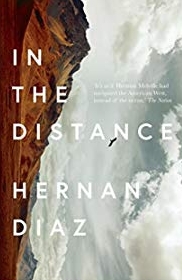
X
2018: In the Distance by Hernan Diaz Pulitzer finalist A mighty tome this, with a mighty theme of the settlement of the wild west. In this book a Swedish teenager sets out with his brother for a new life in the New World as part of the great Swedish emigration of the 1860's. They aim for New York but a set of circumstances separate them and sweep him round to San Francisco instead and he sets out to traverse the continent on foot to link back with his brother. The journey takes him across mighty plains, and across the full range of human depravities to meet with adventures on the way but unfortunately never again his family. The novel has a grand plan and the writer uses grand and descriptive language to sweep up entire states and also to pick down into the detail of individual grains of sand. The saga is full, becomes almost mythic. The hero is indefatigable. It is all huge and mighty. But There is a downside also. The circumstances of the hero's life push him into solitude and lonliness, and this pushes the story into something unusual: a mighty, sweeping myth with mostly a cast of one. It is a bit odd, which is not to say that it does not come off, but it does mean than the saga has lots of mountains and rivers and trekking, but not a lot of human interaction or communication onto which to interpret some meaning for it all. The story shows human vice and depravity, which at times might be realistic, but is often a bit camped up, and comes across as a bit too vicelike, a bit too depraved, a bit unrealistic. This weakens the plot and makes it more burlesque and less gritty than it might have been. The author sticks to his guns and drives our hero into complete isolation with no reward of a deathbed meeting with family at the end of it all. This means that the ultimate message and meaning of the work is, well, err, I'm not sure. Some great descriptive work about the loneliness of an individual lost amongst the sweeping sands on the great plains, but not much humanity to fill it out. Great writing that got bit lost in search of a story.
| 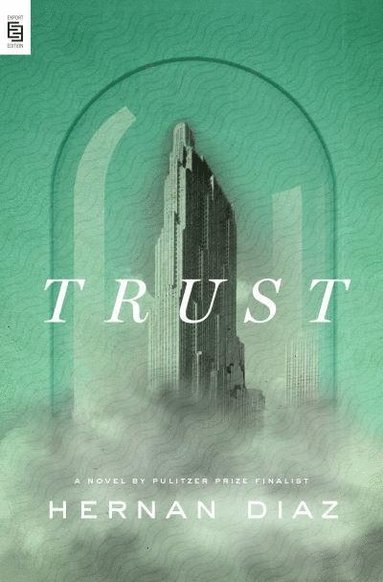
X
2022: Trust, by Hernan Diaz Pulitzer winner Booker Prize Longlist A rich, deep masterpiece. Hernan Diaz has only ever written two books, getting both Pulitzer and Booker recognition. He doesn't seem capable of doing something shallow or even second rate. What a writer! This novel is in four parts, as the story is told in four fictional complete or semi-complete pieces of writing, each giving a different perspective to the story. The final piece consists of short notes from a brief diary which gives a significant twist to what has gone before. The whole structure is very traditional, even old-fashioned. The language is also structured and dated. The first piece is a fictional novel, supposedly from the 1930s. Diaz' first novel was remarkably short on dialogue and human interaction; and this first novel takes a high third person narrator who narrates the actions of the characters, almost entirely without dialogue or interaction. Extremely well done, still, one wondered if this is all that Diaz can do. It was a relief to come into more open narrative styles later in the book. It some ways Diaz almost breaks modern advice on how to write. It's high third person, little dialogue, past passive, there is lots of tell and less show in the first part at least, but this is hardly relevant when the outcome is as wonderful as this. The characters are built up, their empires created. The pacing and text is perfect, the description flows into action seamlessly, the tension is controlled. New perspectives are built up at just the right pace, binding us to them and then coiling around elements of the plot that has gone before, reinforcing some elements, breaking others. The narrative voice is impeccable, varied, ideally constructed for its usage. The scene and customs of the age are created, partly by background description but more strongly by the actions of the players on stage. It is all wonderfully done. The scene is perfectly set. The reader is so tied up in the description of the story that they forget it is a story, and so the twist, when it comes, is perfectly laid out. More important than the technical shock is that we need to reassess our understanding of these characters that we have established internally, and that is the supreme achievement of the best novels. Perhaps the only whisper of challenge to this narrative is that the final work gives the reader the answer too easily. After reading so much that is subjective, written by unreliable narrators, we end with the solution, written objectively, by a narrator who is to be trusted. Does this make it too easy? Would the whole book be better if the final work presented, instead, the idea of the original, but through an unreliable narration? This would leave the reader questioning different untrusted versions of the story without ever getting the clear answer. This would be just like real life. I don't know if this would make the book better, it is an open question. A wonderful work, a classic, not a word out of place.
| 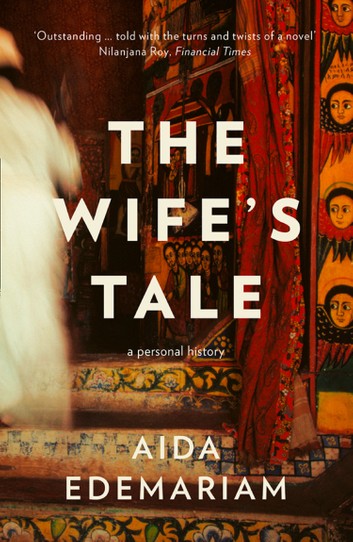
X
2019: The Wife's Tale by Aida Edemariam This is a fantastic and hugely educational book. I saw a review on a list of books of the year somewhere, possibly TLS, and although it is not fiction I added it to my fiction pile anyway because of the review. I am so glad I did. The story is true, although very emotional and sensual and it has clearly been fictionalised by the addition of lots of intimate detail over the years. It tells the biography of the grandmother of the author who became a childbride and later a great matriach of a family in Ethiopa living, as my grandparents did, almost exactly within the 1900's. The story is one of her family history. It is also one of female emancipation, slow by Western World standards but still relentless. It is also one of the history of the century, told through its effect on Ethiopa, and even within this told within its effect on the household of the subject, given that for almost all of her life she literally never left the household. It is remarkable how a life can be lived which is so inward and family centric and yet touches and is touched by so much wider human history. The story of great male victims of house arrest - Nelson Mandela springs to mind of course - can play a big part in the history of Mankind's World. Less often told is this story, far more common, of a woman effectively given the same imprisonment by cultural acceptance instead of authority. The writing is personal and touching. It is deeply sensual, particularly around the smells of food and spice which formed the core work of The Wife. It embraces love of children and the reliance on the fragile structure of family home against the wildness of the outside world. It is a remarkable homage to a person who held no offical position and yet had a huge influence on those around her. One of the best random finds I have ever made.
| 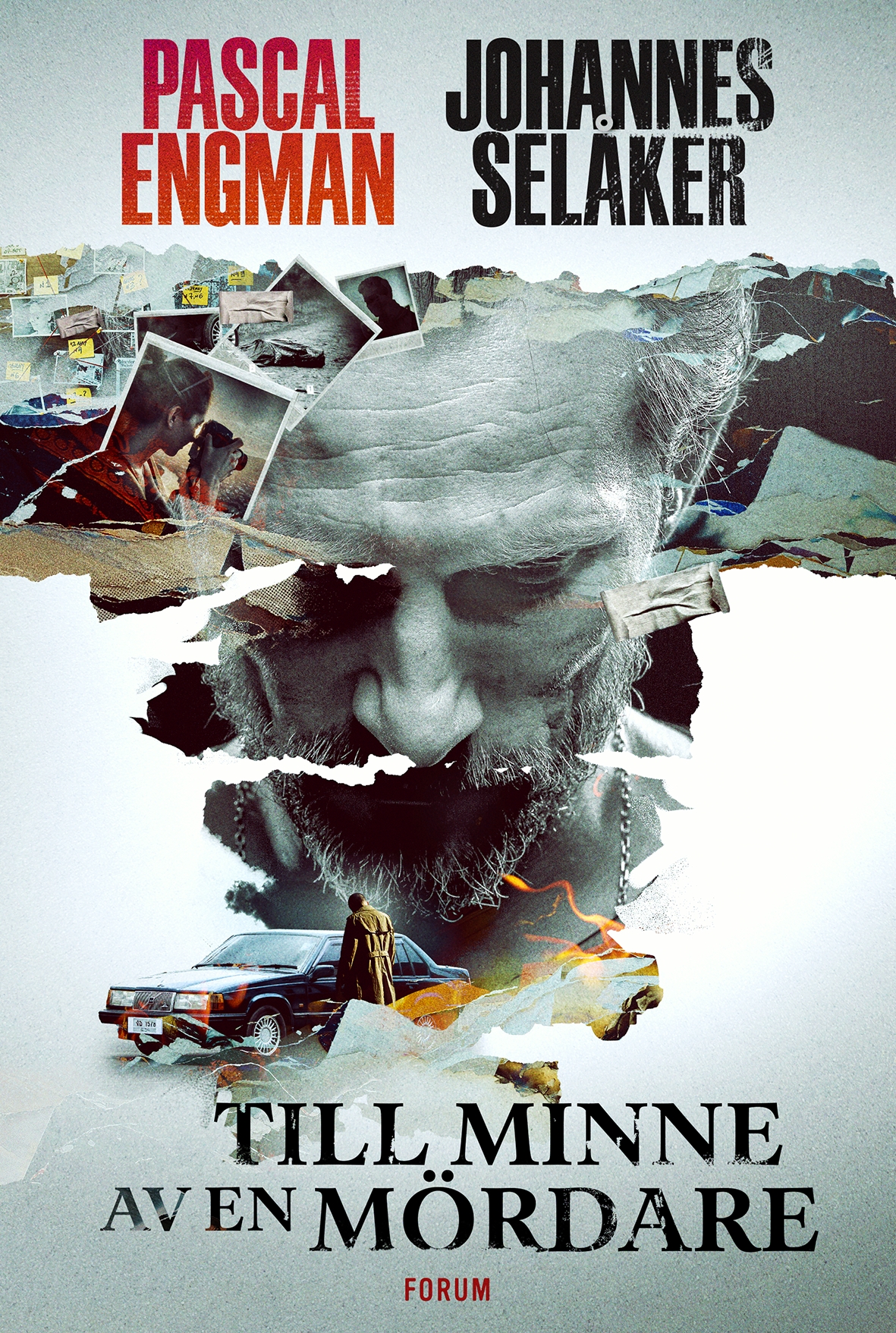
X
2023: Till Minne av en Mördare av Pascal Engman och Johannes Selåker Tyvärr, gick det lång tid mellan att läsa och recensera. Årets sommarbok 2023 är inte den snällaste. En typisk krimroman, men våldsam och obehaglig, med en ung pojke, som dras mellan gärningsmannen och detektiken, bokens största offer. Lång och utmanande, men välskriven och en bra bok för en lång tågresa. Detta var ett viktig steg i min svenska lärande. Jag köpte den för en resa till familjen i Storbritannien, sen hade jag en lång tågresa själv som var oväntad. Jag läste boken och gick vilse bland sidorna och läste den för allre första gången som en riktig spänningsbok och inte en svensklektion. Storvinst och så ett stort minne att gå med till en ganska vanlig sommarroman.
| 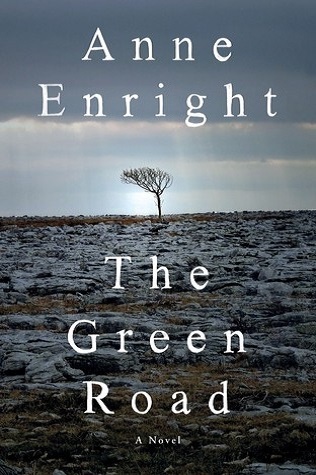
X
2015: The Green Road by Anne Enright Well written story of an Irish family, a Matriarch and 4 diverse children, firstly telling stories of the four children and the four different ways they travelled, and then bringing them all home for one last Christmas. The first four chapters of the book could almost stand as 4 independent short stories. The second half brings them all together. While the book is well written and everything, it failed to really grab me. The family Christmas was a pretty grim affair, with most characters treading the path of dismal family christmases as already laid out by a generation of comedians. As such it was neither enjoyable nor particularly emotional, and at the end of the story everyone went back home and carried on. I suppose I have been spoilt with this style of novel, having read a lot of Colm Toibin and Niall Williams lately. Very well written, good characterisation, (although I cannot say I liked any of them much) but a tame plot. Not very memorable.
| 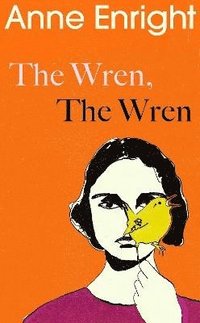
X
2024: The Wren, The Wren by Anne Enright Writers Prize Winner This novel of Anne Enright is Irish and family centred, and surprisingly modernist, both in the writing style and the story arc, which judders through adolesence rather than spanning elegantly over a beginning, middle and end. At least, it is surprising for me, but then I have only read one other book by this author, so easily done. The tale describes the daughter, and then her daughter, of a famous Irish poet. This poet did no work, earned no money, was absent for long periods of his children's early childhood, then absent completely for the latter period. One could say that the story presents the ripples of influence of his life which affected children and grandchildren. If so, then it is a sad and sorry tale, and could even be taken as a great insult to decent fathers everywhere. Why do so many writers continue to obsess over the influence of those who absent themselves from the family? What is so modernist about that? The POV hops between daughter and granddaughter, and the timeline hops about in the same way. Men are mostly absent figures in this history. The back page promises the resilience of women in the face of [false] promises, and I suppose there is something in that. But then it's not much of a battlecry: to achieve resilient survival when the man in your life lets you down. Does the modern woman not aspire to more than that? The book contains lots of poetry supposedly written by the patriarch, which I found a little plain, but I'm no judge of that. The text and the rugged beauty of rural Ireland does cling to you, but increasingly I found myself looking forward to the finish. I really did feel for the characters. I was sorry for the mess they found themselves in when the poet deserted his family, and I'm glad they managed to reclaim a life from it. But it's a shame that they couldn't have risen a little higher: to actual success and achievement, rather than just survival. Overall I found the POV, style and pace more modern than the actual story, which, I hope, is one marooned among past generations. I'm pretty sure I won't be rereading this one.
| 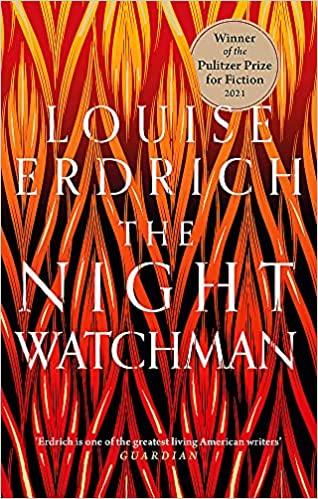
X
2021: The Night Watchman, by Louise Erdrich 2021 Pulitzer Winner Pulitzer winner, a magnificent epic, a blend of history and momentous events with personal stories that tug at your heart, gorgeous writing, a hint of the supernatural. This one has every ingredient in place to ensure a superb classic, but then somehow it fails to grip and I'm left slightly unsatisfied. It wasn't the personal story, while Patrice is in the city you are engrossed, but somehow the events of the overstory fail to capture your attention and the ending of both tales peters out. I'm left wanting to mark it down just a touch, but struggle to say why. Edrich presents us with a native american tribe, eking out life on the rump end of the scrubland left to them, and then flips between two tales: Thomas Wazhushk, the eponymous night watchman, rallies his meagre resources to protest against a government bill that would stop any support to the tribe; and Patrice, a young lady of the tribe, travels to the city to find and rescue her sister who has been swept up and spat out by city sleaze. The latter story is glorious, personal, with deep characterisation and a page-turner plot. Even though the sister's fate is dreadful, and even though Patrice's own journey is at times extraordinary, still the reader is caught up with the journey. Narration for this part is close third person, which flips with the same third person sitting on Thomas' shoulder for the other part. It's all well done and at times is fantastic. But I was less satisfied with the other tale which is quite different, different style, different pace, and too often just got in the way and slowed down the progression of the personal tale. Perhaps political back knowledge is partly to blame. Native american tribes didn't fare well in the 1900's. Whether they survived on a bit of scrub reservation somewhere or disbanded, in neither case was life really glorious or successful. Consequently this reader was less interested in the official outcome, much more so in whether individuals managed to forge an independent life for themselves. The court case happens. You get some screeds of legal text. Ho hum. The end peters out. The court case is won despite the odds being stacked against, but then this leads to no positive thing happening, rather the characters continue to live in poverty and joblessness. Patrice doesn't marry or settle, instead just carries on. You wouldn't swap your own life for any of the characters here, even after success all round. A good ride, which became great during the depths of Patrice' despair, but one which isn't going to change my outlook or philosophy much. Not quite the best pulitzer winner, given the absurdly high standards of this mark. One or two typos and errors in the text. Odd. You don't get this any more.
| 
X
2024: Sinnenas Tid av Annie Ernaux Den här är en jättefin bok av nobelprisaren Annie Ernaux, välskriven och känslomässig. Läsaren lever helt vid siden av den olyklika huvudpersonen. Men, den är ingen glad resa, och läsaren kommer inte att har det bra under den. Vi kan inte ha allt. Huvudpersonen är älskarinna till en okänd man. Han kommer aldrig till berättelsen. Istället träffar hon honom då och då och vid andra tillfällen väntar hon, tillsammans med läsaren, på nästa besok. Efter ett tag börjar hela hennes liv falla samman. Hon sitter och väntar bara på honom bara, och göra inget annat. Hennes inre tanker låta glada, men läsaren förstår att hennes liv håller på att kollapser. Författaren är skicklig; texten är utmärkt; saga är skoningslös, mer an nåt annat, för att driva vår stackars hjälte så djup in i fortvivlan. Den här korta romanen, eller långa novellen, är båda underbar och tragisk. En fantastisk resa.
| 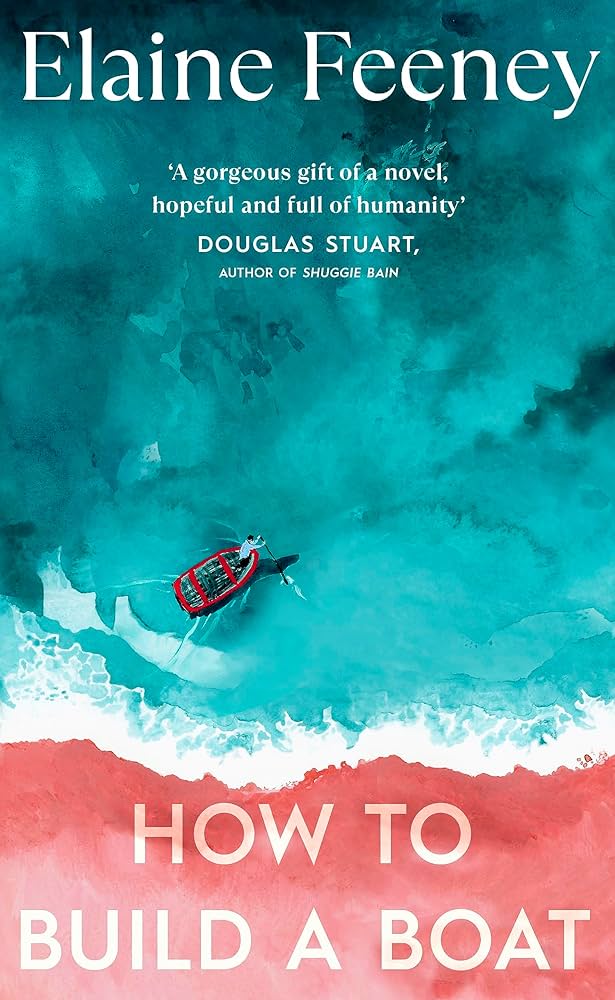
X
2023: How to Build a Boat by Elaine Feeney Booker Long List This is a well written book of Elaine Feeney. It has a touch of "The Dog in the Night" about it as the story is told in close third person, and also in first person, in parts, of an Irish schoolboy with learning difficulties and a mild preference for order and logic. His differences are carefully nuanced: enough to make him different but not so much as to make him an outsider. The boy's mother died when he was very young and all he has of her is a brief video of her swimming, winning a championship race. He is obsessed with building a perpetual motion machine which will somehow close the gap between them, which the reader realises, even if they don't quite understand. He forms a relationship with two teachers at school, both damaged personalities themselves, everybody missing a parent. The POV jumps about so that we can see closely into at least her life, if not so much his. Everybody joins up to build a traditional Irish boat, which can be viewed as a perpetual motion machine if you, err, ignore the physics, and this binds everyone together. It is an emotional journey, and Feeney takes us into and through all sorts of emotional crises and breakdowns. POV hops all over the place. She switches into first person for a bit, then back to close third, although I didn't understand the significance of doing it at all, or of doing it at the points she does. She is close third on one person, but still reveals emotional feelings of another. I suppose this is a master of her craft adapting POV as she sees fit to tell her story, but all the same, the effect is quite similar to someone just getting it wrong. I found the hopping about to be too disruptive for its own good. I found the depiction of the boy's inner thoughts was not quite right. He thinks in metaphors himself, but then picks up when others talk in metaphors and reports that this is not logical. I thought that some of his thoughts needed one more edit. The boy wants to build a perpetual motion machine, but of course that isn't going to happen. The second half of the book focuses on building a boat, which isn't a PMM. I don't quite get why the story is set up like this. Its direction seems to strangely miss the desired result. Why not have him wanting to fly across the water, just like his mother in the video? Then what they build would be fitting. But he ends up flying across the water anyway, so that's good. As is often the case, the missing parent becomes the focus of all the boy's attention, while the parent who stays and works every day merits barely a mention, which is a shame. It's a pity that the solution at the end of the book cannot be the parent who has always been there, that he is the one thing that binds the boy to his mother, in fact to both parents, to his family. That never happens in these novels. Sigh. Just wait till I write my one. Lots of good emotional writing, Feeney takes us deep into damaged people and exposes weaknesses and recoveries well. It is probably very realistic, but, perhaps for the same reason, there is less in these people to admire. I'm not sure you would really want to make any of them your hero. A well written book, perhaps not a classic for me.
| 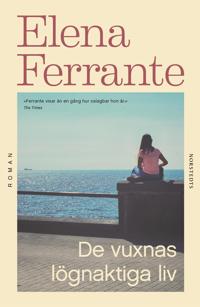
X
2024: De Vuxnas Lögnaktiga Liv av Elena Ferrante Trollhättan bokcirkel Den här är en fin bok of Ferrante, fint skriven, djupt, spännande och originell. Men efter en jättebra början, kanske försättningen var lite mer ördinär, och inte så originell. Berättarens röst kommer från en ung flicka, i en kärnfamilj, som börjar förstå mer om familjen och världen utanför kärnan som är fokuserad om hennes föräldrar. Inte nog med det, utan en ny faster kommer också på scenen, som inte har nåt gott att säga på hennes familje. Vem kan hon tro på? Vad är sant? Läsaren är helt uppslukad av flickens liv nu, så de är oroliga och lite rädda för alla dessa nya stigar. Vart leder de? Men, från en bra början, lugnar berättelsen ner sig och bli allt vanligare. Vi har en ordinär Coming of Age roman, med mansliga kusiner som vi inte kan lita på; en klagande familje; en pappas kärlek som är stor, men inte så speciallt till slut. Alla dessa fantastiska frågor försvinnor i detaljerade, tråkiga svar. Den andra halven var en besvikelse, efter en så bra först halv. Vi saknar alla Giovannas barndom, så mycket mer inressant än tonåringdom.
| 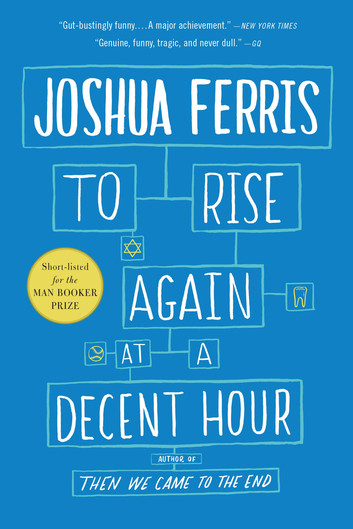
X
2014: To Rise Again at a Decent Hour by Joshua Ferris I found this tiresome and unfunny, I'm surprised that this book got through to the shortlist, especially over Niall Williams' far superior work. It is the story of an odd misanthrope, tiresome Red Sox fan and dentist, who becomes enveloped in a strange cult-like plot to set him up as one of the chosen ones from a race of people mentioned in the Pentateuch who seem to have a particularly miserable history. Unhappily this turns out not to be a superficial plot structure to expose deeper elements of this person and his environment, but actually to be a justified claim which eventually captures this person's life. I was skim reading long passages of biblical history long before I got close to the end. Absolutely not my style.
| 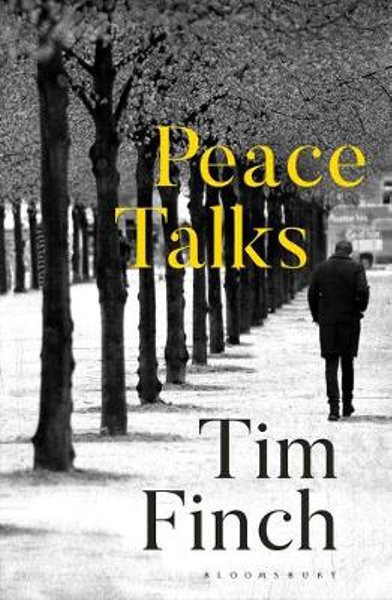
X
2021: Peace Talks, by Tim Finch Costa Novel Award, Shortlist Regret that some time has passed since I read this. It is now almost the end of the year, so I can say with some conviction that this has to go down as my Book of the Year. Just occasionally I read something and think to myself: there, just like that, if I could write something just like that I would be well satisfied. This one certainly does that for me, with due apologies to Tim Finch, of course. It's amazing how often such a book is a Costa Book, too. Peace Talks has a first person narrator: an older, respected, contemplative man. The narration is a monologue to his beloved wife, at first we think he is writing a letter to her. He chairs peace talks at a mountaintop retreat in Austria, the most diplomatic of diplomats, while hidden memories of his personal life bubble away under the surface. Slowly we see the cruel nature of the war being waged between the countries at the talks, and we discover that his wife was killed in a gruesome, public terrorist atrocity. The narrator analyses and categorises his feelings, relying on the same thought processes and contemplation techniques that we all use every day, even when the subject matter is so appalling. The book is superbly done. The narrative voice is masterful: quiet, refined and analytical, yet still allowing the reader to descend with the narrator to such challenging places. We see horror and despair painted in vivid colours, and yet the author does not allow this to take over the page, at any level. He retains the humanity and peace of reasonable civilisation, even when pushed to the brink with such savagery. Narrative voice, characterisation is wonderfully done; the point of view is relentlessly internal and stark; the subject matter is savage and vicious, yet always described through the lens of diplomacy, even when this conflicts so tightly with the emotions of the diplomat. Under it all is a tender love story, equally powerful and romantic, told in equally calm and measured tones. A masterclass in how the most challenging stories can be told through the most even narration. A masterclass in how to write a novel. They don't come any better than this.
| 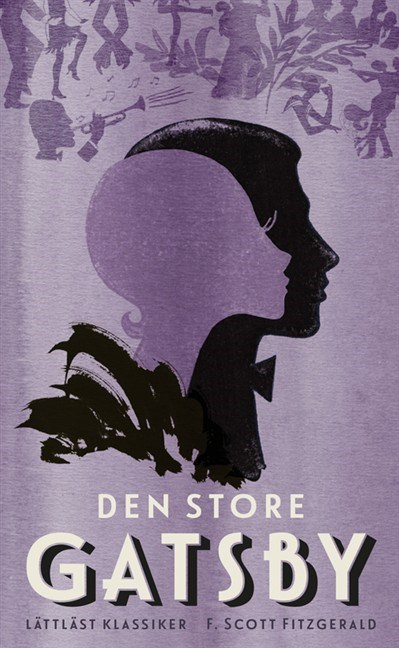
X
2018: Den Store Gatsby av F. Scott Fitzgerald En bra översättning av en bra bok. Många säger att The Great Gatsby är boken av The Jazz Age, men det är bara hälften sant. För den största delen berättar den här boken om män och kvinnor, kärlek, äktenskap och skilsmässa. Pengar, stående, hus, musik kommer alla på andra plats till kärlek, bra eller dåligt. I slutändan kan alla pengar och hjältens stora hus inte köpa honom kärlek till den kvinna som han vill, och så kommer allt till en tragedi. Det är inte en lycklig bok, men det är en historia som skrivits mycket bra.
| 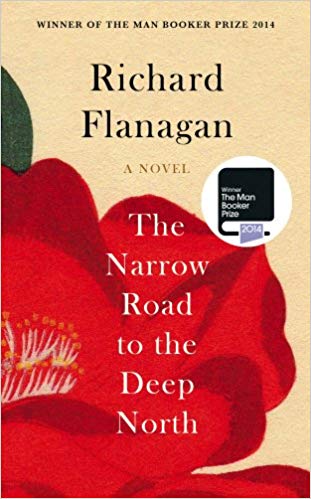
X
2014: The Narrow Road to the Deep North by Richard Flanagan A few days after completing this one it grows on me as a very good book. Much of the book is taken up with a gruesome depiction of life in a Japanese POW camp. This is set against the hero's great romantic tragedy as he marries one woman but spends his life ruing his fatal attraction to another. The intensity of feeling of life's great romatic tragedy and dilemma is only intensified by contrast with the unfathomable physical suffering of this 3 year hiatus in life for the hero and his companions. The national view of the great heroism of the hero's action is continually brought into direct conflict with his own perceptions, cut through with doubt and ignominious motivations. One wonders how many other national heroes have similar conflict. Although the life story goes on to completion and finishes with the death of the hero, there is still a feeling that the book is 50 pages too long. This great work which focuses on the critical mundanities of life - the very basics of survival in the camp and the pain of lovers torn apart - ends with two fantastic additions to the tale. The hero drives into a great forest fire and rescues his family in extraordinary circumstances which is exciting and thrilling, but adds a touch of the fantastic which comes out of nowhere. There is also a twist in the tale whereby the man who died most tragically in the camp turns out to be a blood relation of the hero. There is no need for this. This man's story is so powerful without this. A rather silly twist in the end adds nothing to it. Good story, well told. The central part grabs one's emotion as any tale on this subject must. But the contrast with life's great romance is well done and the character of the hero eventually stands out from the horrors of the camp, which is achievement in itself.
| 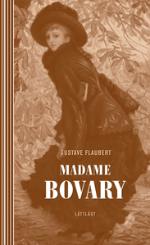
X
2019: Madame Bovary av Gustave Flaubert Faktisk är det långe sedan jag läste den här boken, så jag måste försöka att komma ihåg. Att läsa en bok i lätt svenska är en bra sätt att fuska :) Man kan läsa en jättestor fransk klassik på bara hundra sidor och man kan säga, den är inte en kort bok, den är en lättläst bok. Madame Bovary är definitivt en klassiker. En dum och olycklig dam, en stackers make, men en bra berättelse ännå. Med bara hundra sidor är detta inte skönliteratur, mer utbildning i språket. Men, det är bra att träna med en klassiker.
| 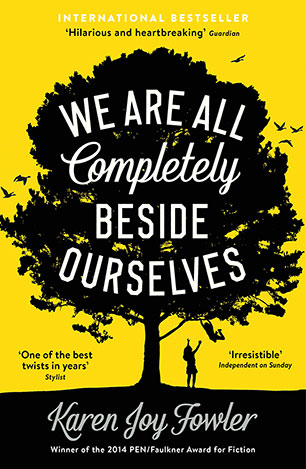
X
2014: We Are All Completely Beside Ourselves by Karen Joy Fowler In the 1930s and 40s it was quite trendy for American psychologists to adopt chimp babies and bring them up with their own children or at least own families. Then children grew up and chimps had to go. Astonishingly, instead of going somewhere really nice as befits a family member, these chimps would invariably be returned to the lab and be prepared for the next experiment, whatever that might be. Imagine the devastation if the young human child involved discovered the fate of this other child, with whom they shared a sibling empathy, permitted by their parents. Fowler's book explores family relationships and bonds broken and reforged, but with the particular case of a chimp family. It considers memories from childhood, and questions what might be real and what might be imagined. But it does so with the extra pathos that something really devastating and separation really severe had actually happened to a family member. It is an unusual read, with challenging human feelings and gradual understanding of events and meanings forming around a very unusual family setup. Fowler tells the story very well and grips the reader. At one point she slips into a polemic around animal rights activists and the tale loses balance and complexity, but recovers. Having taken the reader through times of trauma she cannot bear to push this through to the end, and contrives an ending which is certainly happy, and almost cheesy. Unusual, challenging, invokes some complex issues, well told tale. Something similar could perhaps be set in late 1930s Germany where the coming tragedy would be human and more terrible. Fowler probably does well to tell a more unusual story. I don't think this is great, but I think it is a very good book.
| 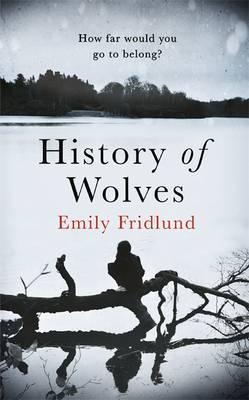
X
2017: History of Wolves by Emily Fridlund A rival to Elmet for the most disappointing book on the 2017 Booker shortlist. I found this book less than wonderful and so did many online reviews. 'Good in bits but failed to meet its objectives' seems to be a reasonable summary. There was good writing here, an attempt to create a narrative which hops about the timeline in the way that Muriel Spark does so well, but which happens less well here, but also inconsistent characterisation and first person narrative. The story is an attempt to expose the mistreatment of a small child by religious fundamentalists which ends in the child dying of a treatable disease. Narrator is the teenage babysitter, an attempt to create a teenage misfit which doesn't work well. Neither the small child nor the teenage are given a realistic or consistent character. I wonder if the author really has much experience with either. The story meanders along and includes a few stretches of canoeing on the lakes as a bonus to set the scene. It all gets lost and by the time the end comes, telegraphed with the subtlety of a herd of elehants, I'm afraid that the reader has become unattached.
| 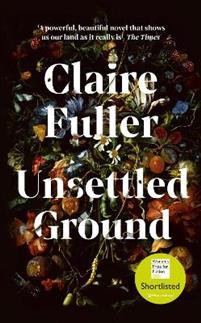
X
2022: Unsettled Ground by Claire Fuller 2021 Costa Novel of the Year This good book of Claire Fuller tells the story of two misanthropic twins in their fifties, unmarried and still living together, who have to cope with life after their protective mother dies. Initially, external secrets and their own naivety conspire to have their life fall apart. They lose their home and almost every vestige of reasonable life. But in the end it is all restored. The story is well told, the characters are opened up, the reader shakes their head sympathically as each chapter of tragedy drives their lives down to a lower level than before. We are pleased when everything is unpicked again and they end up in a good place. It's third person, close to Jeanie, and if it slips to Julius just once or twice, well, aren't twins like that anyway? And it's present tense. Of course it's present tense, everything is this year. There are elements of Shirley Jackson's "We have always lived in the castle," cropping up in this book. In Jackson's classic the reader is so tightly bound to the sisters' warped view of life that in the latter stages of the book the reader is fooled into empathising with the sisters, even though their desires are insane. The same thing happens here, when the caravan is finally made to seem, if not decent, then at least habitable. The reader does the same thing, and is satisfied with the progress made, forgetting that the overall situation remains unbearable. Bridget and Stu are good characters, very well presented. Their slovenly, unpleasant example of suburban life makes it seem very undesirable, and this somehow deflates the failure of the protagonists to achieve anything like it. Viewed through the lens of Bridget and Stu's own house, a des res in suburbia is not really that des. It's all well done. The secrets about the father's death are slowly revealed and the plot comes out. It works, although none of it was really unexpected. I found this reveal surprisingly unimpactful to the human drama taking place in the present time. The ending is perhaps a weakness, clearly manufactured and twee. Our protagonists end up back in their cottage which has been modernised as an act of kindness and all is well, even if Julius has taken a bit of a medical hit on the way. I'm pleased, and never want to decry a happy ending. But the moral journey of the tragedy seems undone here and not much is achieved. Something meatier would be stronger, although probably less happy. A challenge for the reader to consider which is more important.
| 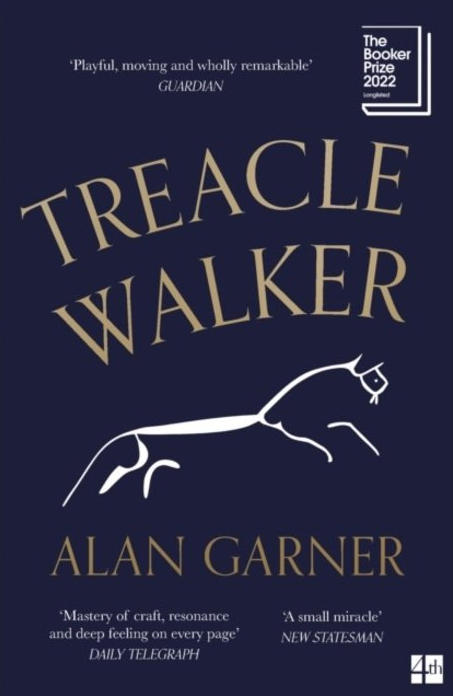
X
2022: Treacle Walker by Alan Garner Booker Prize Shortlist A very short thing of beauty of Alan Garner. It is at most 15k words (my estimate), about one tenth the length of Trust (from the same shortlist). It tells a surreal story of a relationship between a young boy and a passing tinker, who has knowledge of the folklore that surrounds them. The language is poetical, strangely slang, and incorporates nonsense words in a Jabberwocky kind of way. The spoken text has a lovely rhythm, but the story is weird and open and you never really know what is going on. It doesn't clap any of my traditionalist bells. Perhaps better just to say that this one is fangleklumping, and move on.
| 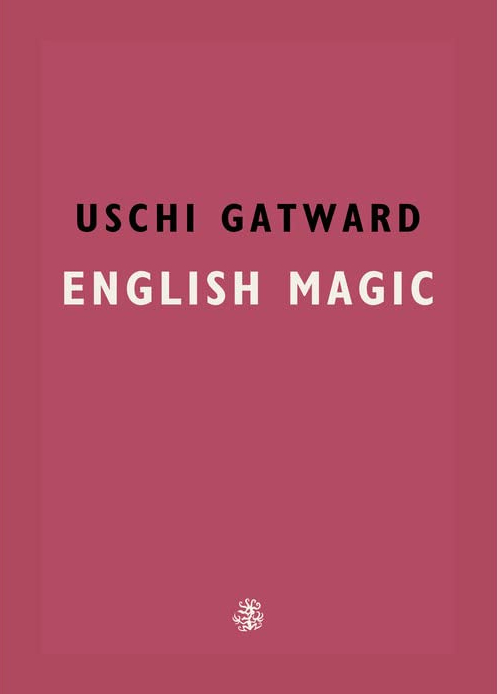
X
2022: English Magic by Uschi Gatward James Tait Black Prize Shortlist This is a beautifully written book, lyrical and poetic, each sentence a crafted jewel, description and scene setting crystal clear, characterisation subtle and deep. It is a model of its craft, you can certainly call this prose poetry. However, this collection of short stories are all single scenes, pictures without a story arc, moments in time without development or a three act structure. Pasts and futures can be imagined, but these fall outside the scope of each story. These are paintings, instantive works of art, not developed stories. It is so well done, so beautifully crafted that I want to acclaim them, I want to say how great they are. Unfortunately, without an arc, without the characters moving on with life, they do not move me, and I found myself skim reading towards the end. The description of the moon in the sky was beautiful, but knowing that it was going nowhere I felt no need to linger. The stories are so like Tove Jansson, so unlike Shirley Jackson, hard to believe that these writers all do the same thing. A beautiful piece of writing, but sadly missing real character and situation development, and so missing the ingredients to really move this particular reader.
| 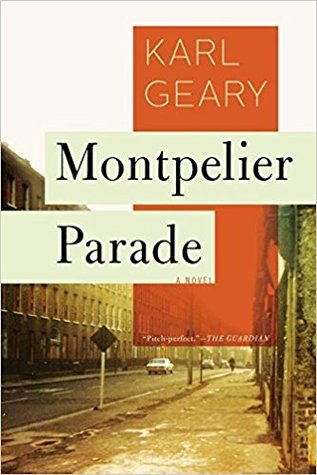
X
2017: Montpelier Parade by Karl Geary A well written book, with good characterisation and good pace, but the narrative is a bit unlikely and offbeat. The story tells of an older woman grieving for her teenage son who died of MS. As part of this process she has a strange affair with a similar-aged teenage boy while she completes her descent into depression and suicide. The story is told from the point of view of the teenage boy who is immature and lives a deprived life, which makes the affair with this older, richer, more sophisticated woman all the more strange. It is a striking narrative, and told from an unusual viewpoint it comes across as a bit odd and surreal. I'm not convinced that it is very realistic - I don't think that depression works like that, although I am really not sure - and it means that much of the book is given over to a description of this deprived, wasteful and aimless existence of the very poor of Belfast, which is all a bit crap really. Not a very cheerful book, and the characters are not rounded out quite enough to engage the reader in why it is they are doing what they are doing. In particular the older woman is left enigmatically untouched which helps produce a surprise ending, but does this at the expense of an incomplete description of the character and the her actions as the novel progresses, which is unsatisfactory. Quite good.
| 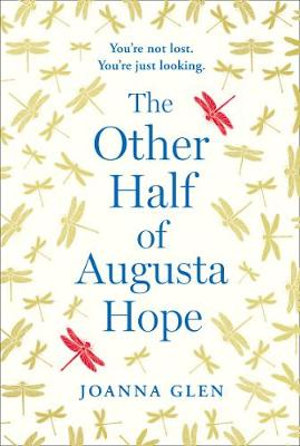
X
2019: The Other Half of Augusta Hope by Joanna Glen This book was extremely good in parts. It is written in the first person but alternating between two characters, clearly delineated, soulmates from quite different backgrounds who eventually meet. It goes deeply into the heads of these characters, particularly of Augusta, and could be claustrophobic, but instead succeeds in drawing in the reader to a close relationship with characters they care about. However, in parts it is also deficient. It is very insular, very Alan Partridge at times, and in attempting to depict a constricting suburban life it mostly just gets stuck into itself. All characters, especially secondary ones, have simplistic ethos and morals with very little contrasting traits and conflict. This lack of depth makes the book much less than it could be. The narrative point of view slips a couple of times, especially when flicking across the two twins. The story rollercoasters along dramatically towards the end, but mostly the direction is obvious so the ride is not thrilling for its own sake, but is gripping enough. The big tragedy advertised in the blurb on the back actually happens very late, so much so that the blurb could be seen as a spoiler, which surprised me. The pace and style changed for the sorrowful and romantic bits, and this was quite good, but without the depth of character to fill these parts the slower pace often felt a little flat. There was nothing for the reader to learn as no one developed, so the story only really ran along with pace and when that slowed, interest slowed. Good writing, suffering from a lack of conflict and character contrast.
| 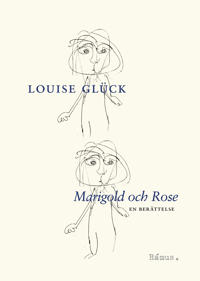
X
2024: Marigold och Rose av Louise Glück Den här är en liten pärla av Nobelpristagaren Louise Glück, som jag fick i Bokrean för flera öre. Den här fickboken berättar historien om två tvillingar under deras första år, och beskriver deras känslor, åsikter och tankar om sina föräldrar, hus och liv. Boken är en blandning av filosofi, självsanning och till och med lite komedi. Bebisens tankar är tillräckligt sofistikerade för att beskriva den här historien, men också tillräckligt naiva för att de känner inte igen vanliga saker runt om i världen. Blandningen är kanske mer av en kuriosa utan något för djupt. Ett intressant och ovanligt verk, men kanske inte den viktigaste man kan läsa. Om man skulle vilja läse den bästa av Glück, kanske hennes poesi bör komma först.
| 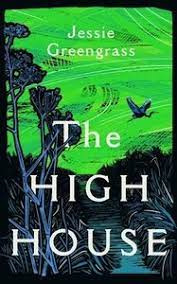
X
2022: The High House by Jessie Greengrass 2021 Costa shortlist A wonderful, sensual work of Jessie Greengrass. The story tells of an academic in environmental sciences who sees a great climate disaster coming and prepares a country villa on high ground to protect her children from the storm. Her older daughter and young son are protected in the High House, living a life of 1800s self proficiency, as the world collapses in climate disaster around them. Unfortunately this collapse takes the parents with it, in some distant city. The work is not realistic: the coming diaster is too rapid and too extreme; the house is too artificially isolated; the convenience of ongoing power and internet too unlikely, but it stands as a parable. The language is gorgeous, phraseology wonderful. The text focuses on the near detail, distant disaster comes only through newsfeeds. The story is told in the third person, but with a changing narrator, giving the tale, sometimes overlapping, through different eyes. There is lots of flashback, with the key moments of the loss of parents and move to the High House being retold often. This is evocative of how family stories circulate through the years, of course. Lots of lovely description and emotion, but the story is missing a strong narrative arc. Instead it wanders, telling its tale in jigsaw pieces which slowly construct a whole, but without really binding or compelling the reader. The tension was strangely low for a tale of the apocalypse. Some of the research was detailed and strong, but then the descriptions of disaster were strange: unlikely and extreme. But then condensing such change into a small period of time made the story work, so one must not quibble. There were no quotation marks for speech, first time I have seen this in an English book. Instead, speech was marked with a new line preceded by a dash, which is common in swedish. Unfortunately the publishers decided not to run tags and additional text onto the same paragraph, but to keep separate paragraphs for all. This made the speech clear, but some passages were horribly clunky. Worst of both worlds, perhaps. I still think this book missed its three act structure. But if read as a parable this is certainly a thing of beauty, with wonderful language and some poetic passages.
| 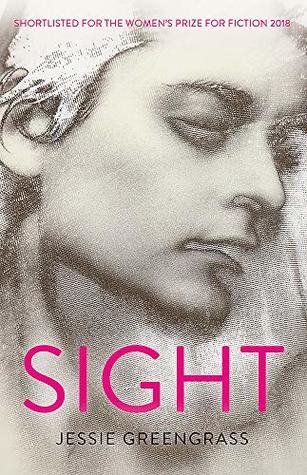
X
2019: Sight by Jessie Greengrass I'm afraid that some time has passed between the reading of the book and the writing of the review, so perhaps this will not be as detailed as it would have been. This book tells the story of the uneasy relationship of the narrator as a young girl with her grandmother. The grandmother was a famed psychologist, unable to step away from her highly regulated and analytical work life in order to be childishly friendly with her grandchildren. The book is technically excellent, but becomes very philosophical and suffers from a lack of narrative direction. Great structure, but the actual story is more forgettable, hence the brevity of this piece written six months after the event.
| 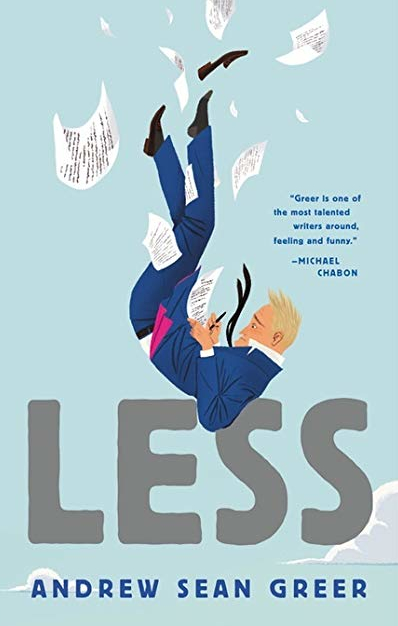
X
p>2018: Less by Andrew Sean Greer.
This year's Pulitzer Prize winner. It is remarkably light and frothy after the significant tome from last year, perhaps they wanted a respite or something. I cannot say that I really loved this one. Part of me feels that the literary world loved it because it presented a spoof of the literary world and everyone loves being sent up. For those of us outside the clique, however, it was all a bit tiresome. Spoofs and send ups of various stock literary characters and pointless international travel and a hedonistic homosexual lifestyle. More fishsticks than 7 hour lamb. Ho hum.
| 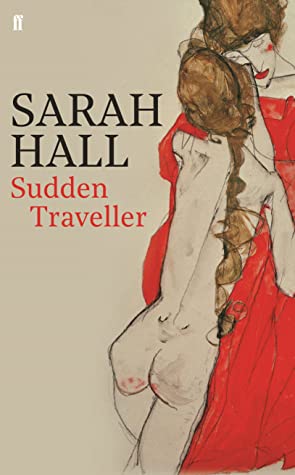
X
2020: Sudden Traveller by Sarah Hall Shortlisted in James Tait Black. A stunning set of short stories. Visual, emotional, simple and stark, with beautiful language and content which is at times shocking. They will certainly make an impression on you for at least one of these reasons, probably many of them. Hall sets her work close to home, amongst ordinary people, living next door to either one of us. Unfortunately this ordinariness does not save you from the vile side of human nature and some of the acts portrayed in passing are horrible, no less so just because they are carried out by ordinary people. In the first story revenge is carried out by supernatural means, reminiscent of Louis de Bernieres' black pumas. There is satisfaction here, but only a sad version of it because we all know that such revenge is only for the written world and not the real one. In other stories she visits the dead, the dying. Each tale is grotesque, bold, stark. The language is always minimalistic and beautiful, cut to the bone, reaching in and shaking you by the neck, never caressing you softly. This is true of the child's bedtime story at the end also, which is gripping, but has an element of comedy in the idea of it serving as a child's bedtime story - it certainly wouldn't. There is much here to admire: skilful craft, minimalist language, relentless telling of a fearless message. There is less, perhaps, to like, enjoy or feel nostalgia for. Stark stories to wake you up, not for reading after dark.
| 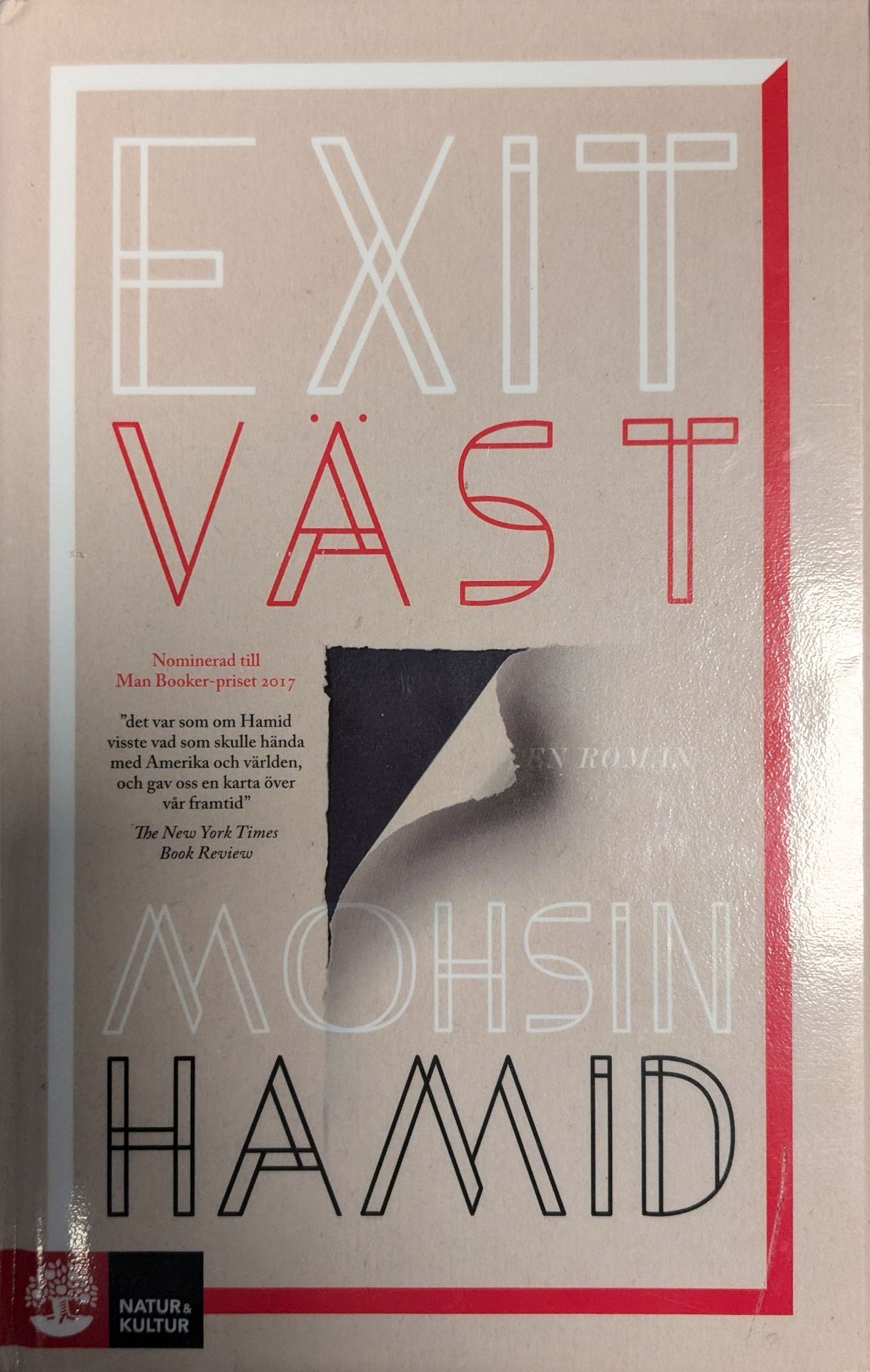
X
2024: Exit Väst av Mohsin Hamid Trollhättan Bokcirkel Jag läste den här boken för första gången på 2010-tal, i engelska, när den stod på booker kortlisten. Nu läser jag den igen, i svenska, med min bokcirkel. Den är fortfarande smart och originellt, välskrivet and genomtänkt, och relevant för vår tid. Hamid skrev en riktig klassiker. Boken beskriver migrationpolitiken mellan rika och fattiga länder. Vi börjar med ett ungt par i ett fattigt land, okänt, men kanske liknar Syrien. De har ett starkt band till sin familj och sitt land, men vill samtidigt bort från de despotiska reglerna i detta land. Nu har vi lite magisk realism, och en magisk portal öppnar sig mellan deras land och den väst. Detta par, och sedan fler och fler människor, flyttar obehindrat mellan fattiga och rika länder. Hamid's bok besriver en värld var alla kan flytta var och när dem vill. Detta är en fullständig utopi. Det finns inget våld eller inskränkning av mänskliga rättigheter. I den här världen ser allt ut som det ska vara och magiska portaler ser ut som den bästa lösningen som finns. Naturligtvis är det inte så enkelt i vår verkliga värld. Hamid's skrivning är personligt och känslomässigt. Läsaren är helt knuten till detta par, och andra huvudkaraktärer i boken. Vi oroar oss djupt för deras framtid, och vi sluktar hela boken. Det är en utopi, med eller utan verklig magisk realism. Men ändå en genomtänkt och filosofiskt verk. En riktigt fin prestation.
| 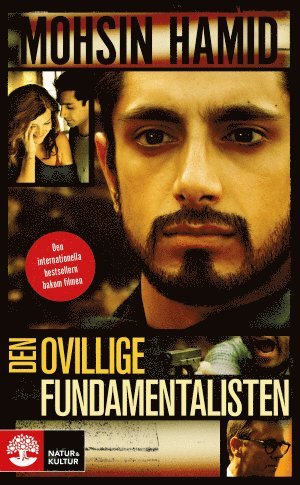
X
2024: Den Ovillige Fundamentalisten av Mohsin Hamid Trollhättan bokcirkel Den här är en välskriven bok, mer filosofisk an väntat. Berättelsen består av ett samtal, en riktigt berättelse, mellan den självbetitlade mannen och en amerikan på ett kafe i Pakistan. Mannen var en framsgångrik affärsman i USA, men återvände till Pakistan för att omfamna kulturen där. På kafeet visar han sin kamrat folket omkring dem, och demonstrarer han att livet är öppnare, och kvinnorna är mer fria, an man kan tror från att läsa om pakistani liv i de amerikanska tidningarna. Till slut, återvänder männen till sitt hotell, och historien slutar med en antydan till sjutväpen. Kommer den amerikanska underrättelsetjänstman att döda den andra, eller tvärtom? Vad som kommer att hända strax efter att bokslutet är oklart. Numera tänkar man på en fundamentlist som en våldsam terrorist, men i denna berratelse är den istället en filosof, som återvänder till en kultur från ett annan utan våld. Åtminstone, utan våld på ytan, den slutsatsen är oklart. Genom hela berättelsen pågår en romans med en vacker kvinna som blev svårt skadad efter hennes första kärlek dog som ung. Hur bidrar denna subplot till den övergripande saga. Detta är också oklart. En kort men djup bok, fylld av tjocka och tvinnade trådar genom livet. En utmaning till en som tror på denna frihet och tolerans i världens västerlandska kultur. Men, utmaningar är bra.
| 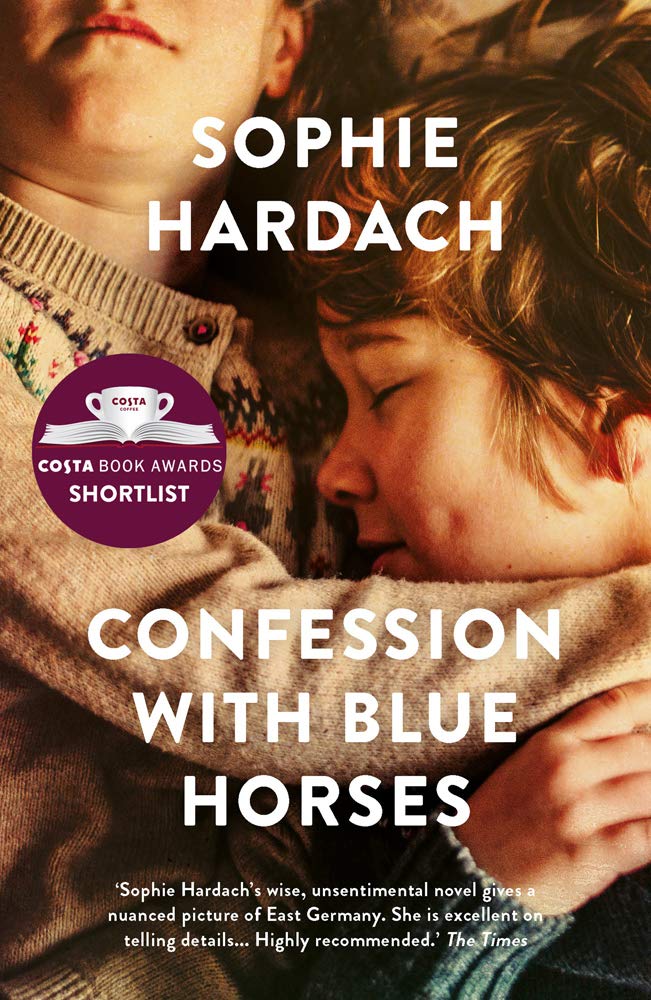
X
2020: Confession with Blue Horses by Sophie Hardach Costa shortlisted. A really excellent book. Once again the Costa demonstrates just what a good competition it is, it focuses on good books over and above literary craftsmanship, experimental forms and academic tricks which means that the shortlisted books are consistently excellent books to read. (As opposed to whatever else you are supposed to do with a book of critically approved academic form). This book is no exception to the rule. It tells the story of the victims of East German totalitarianism, not rabid politicalists but just ordinary families who tried to do the best for their children and so became victims of faceless injustice. It focuses in particular on the period of chaos just before the falling of the wall which history describes as a time of liberation, but which was as terrible as any other time for a family which fell foul of victimisation. The story flips between an historical telling of a young family and a modern day romance. The latter is told in the two, alternating voices of the couple: the grown up child trying to recover her roots and the person working in the archive who tries to help her. The structure could have been intrusive, but instead each saga is personal and gripping enough to hook the reader independently. Separate threads entwine and move together, the saga of the young family becomes tragic through the reader's eyes as their sad fate is revealed slowly through different lens, both current time following the story and future time looking back. The reader can see their fate forming from both directions and wants to save them from tragedy, but ultimately can do nothing but watch helplessly as the guns are fired. The story is well researched, the reader is engaged, the threads come together. It is all done well and carefully, the end result is an excellent tale: well told, emotional, thrilling, informative. Just what a good book should be.
| 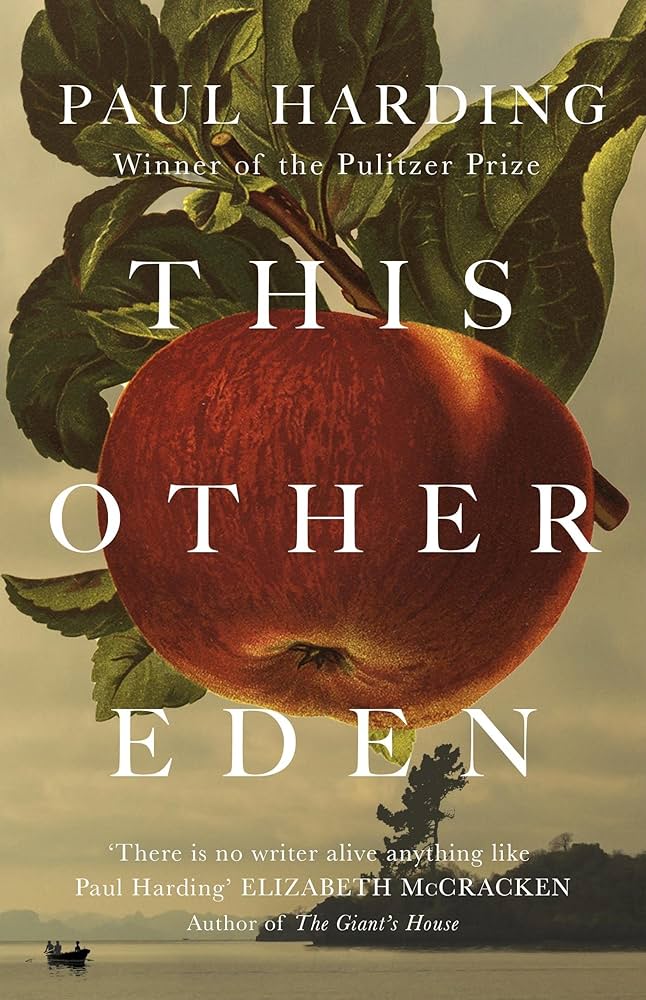
X
2023: This Other Eden by Paul Harding Booker short list This book is a thing of beauty by Paul Harding. The language is rich and descriptive, you could certainly make the argument that this is prose poetry. Each character and each background of each scene is slowly and lovingly painted onto the canvas in the deepest colours. This is a novel to read slowly, to savour. The story describes a community of mixed race families on a small island, within sight of the mainland village, patching together a life which is their home, but is primitive and uneducated by other standards. A teacher visits and tries to educate, and he unearths wonderful natural talent amongst some of the children, but even he cannot hold off the descent of the community into an uneducated and barbaric lifestyle. Eventually the municipal board moves in, motivated by a mix of stern and hard-hearted community spirit and racism, and the settlers are forcibly evicted, with disastrous results all round. The reader is appalled at the racism, and feels sorry for the islanders losing their home, but there is little doubt that the reader certainly wouldn't want to share the island life that was forcibly cleared. The islanders history is strengthened by some stories of the old days, especially the miraculous survival of the elders from a violent flood, a tsunami, that threatened to sweep all before it. This event has a mythical feel to it, and gives the island its own micro-mythology, or micro-religion perhaps, and drives a sense that it is a world all of its own. There are elements of The Lord of the Flies about this community, which falls back to the lowest of low social standards with no outside pressure or influence set upon them. There is much to admire in this story, and some nasty work perpetrated by the municipality at which to become angry, but there isn't much on the positive side with which to empathise. The reader is mostly shocked by the pathetic lifestyle of the islanders and they want to see reform, even if the hundred year old version of reform on show here feels pretty merciless, especially when coupled with such racism. It all feels a little one sided. The language is always beautiful and poetic, but the style becomes relentless. It is a long book to read wholly in this intense style. A character cannot not pick up a stick without their gnarled, boney fingers clutching at the broken and fragile shards of nut-brown, crumbling bark that sweeps over the sharply-scented wood like night gathering over ... well, you get the idea. Each paragraph is wonderful, but the whole novel is intense and tiring to read. A beautiful book on an important subject with living characters and challenging, historical municipal (in)justice. All the ingredients are there, but I found the resultant dish strangely unappetising. There is a lack of a living, flawed but lovable home life with which to empathise. Overall it didn't quite do it for me, yet I feel strangely guilty admitting it.
| 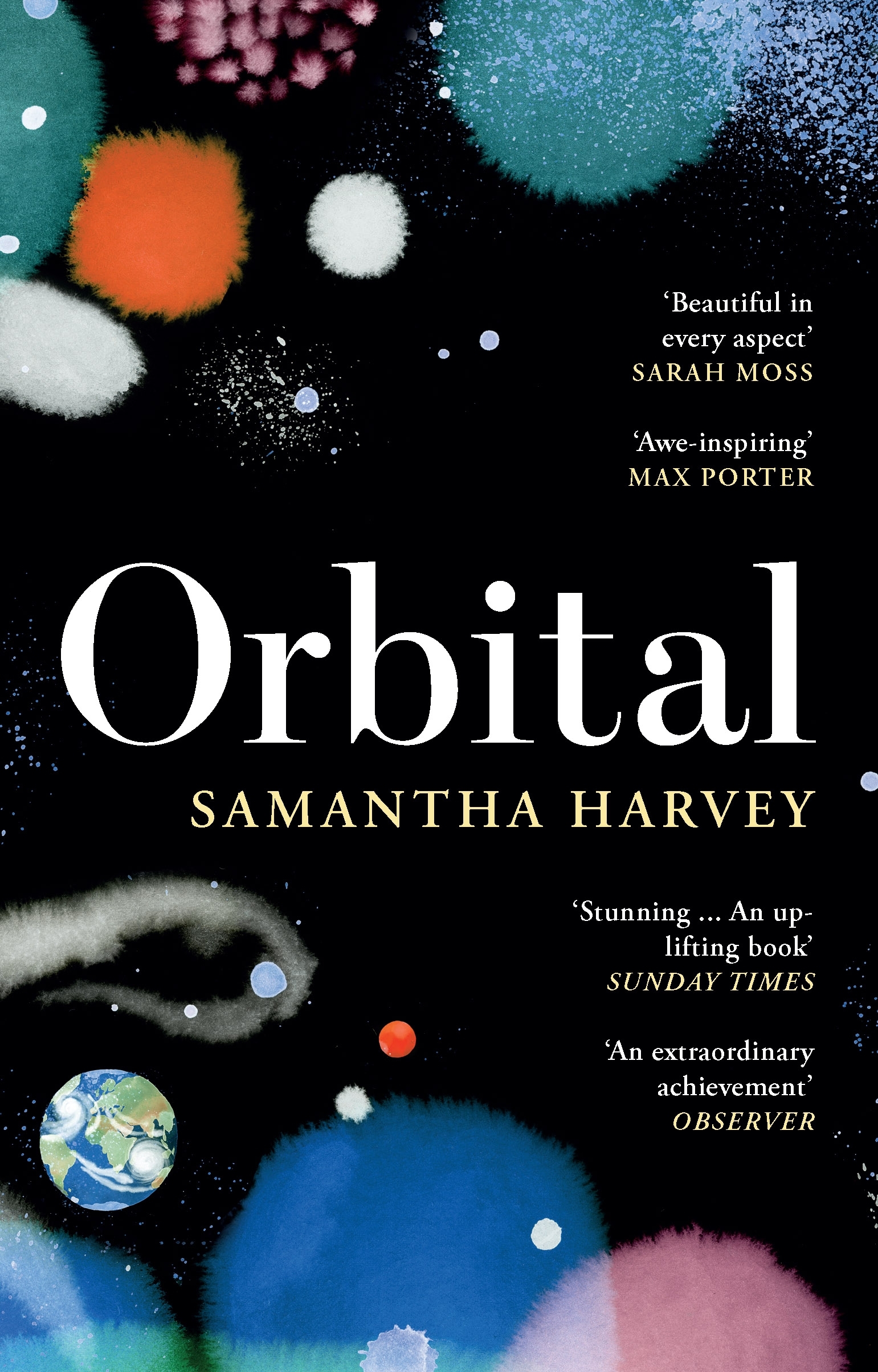
X
2024: Orbital of Samantha Harvey Booker Prize winner Harvey's short novel focuses in on half a dozen astronauts living on the International Space Station as it orbits the earth at high speed. The journey creates many sunrises and sunsets for the personnel in a single 24 hour period. This is turn sets them a direct, physical challenge to keep their body clocks ordered as many artificial days flash by during one Earth day, and also sets them a challenge to keep their thoughts and philosophies in order, for much the same reasons. A couple of significant events happen on Earth during the single Earth day covered by this story. One astronaut hears the news that her mother has died, and a major hurricane gathers and heads for the american coast. These events both affect the people on board, but remotely. Of course, it has to be remotely, how else can people who are in orbit in space by affected by anything? The contrast between their physical distance and the emotional closeness of the events comes into focus. Much of the day's work is close-detailed and tedious. There is lots of sorting, tidying, checking, arranging to be done. The book describes much of this, and again there is a contrast here. This time it is between the perceived glamour of the work of an astronaut and the tedium of what happens hour by hour. There is a lot of contrast in this work, much to consider and philosophise over, and that forms the entirety of what is covered in the book. There is no adventure or unfolding series of events that takes place. The characters are described in detail, and yet remain remote and distant, their inability to influence or be affected by Earth events giving them a godlike isolation. The work is fascinating to read, and yet at the same time lacking in action and dramatic incident. Contrast again. I'm not sure that this book should really be classified alongside traditional novels, but then where else in your shelves would you put it? Perhaps not too far away from works of Camus. It is a beautiful book, well described, but remaining aloof and distant from your real affections. An achievement to write, and a good experience to read, while quite different to an old-fashioned adventure or fireside story. And of course, that is all a good thing.
| 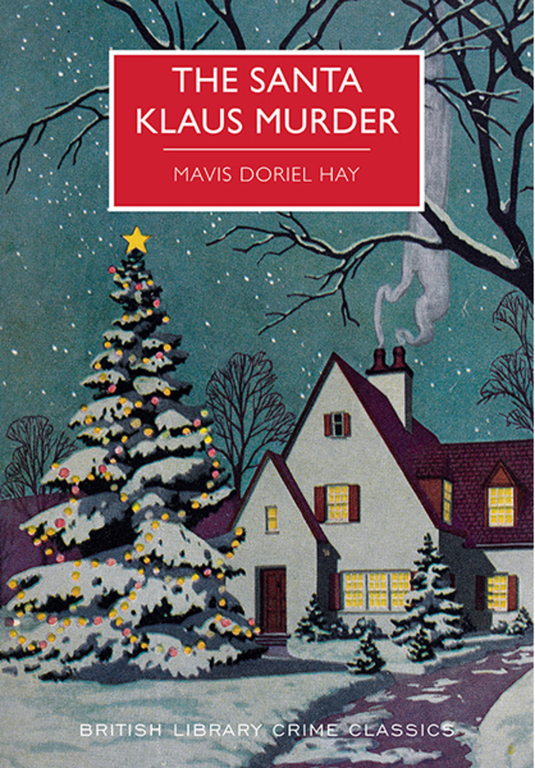
X
2019: The Santa Klaus Murder by Mavis Doriel Hay A standard whodunnit in a standard series which is becoming a standard piece of light reading for me. The series is delightful and interesting because it is so varied. One does not know exactly what one will get at the start of each book. Many of these come from 80 or more years ago when the modern rules for whodunnits had not yet been established. What we see here is not the use of these rules but instead part of their creation, this gives a real historical interest to each book. This one is standard fare. The patriach of a country house is killed by a houseguest at Christmas and a detective arrives on the scene to find out which one did it. Before long it becomes clear that there were in fact two people in a Santa Klaus (sic) costume: one delivering presents to the children and another up to no good. After this it all gets a little too fine detailed to really follow properly, and the solution relies on exact timings of everyone's movements, witnessed either correctly or incorrectly by others. I could perhaps have got out a pad of postit notes and tried to work it all out but instead I didn't and just read the book. It remained good fun throughout. It won't win any awards, but is a fine example of its genre and I look forward to reading the next in the series.
| 
X
2022: Murder Underground by Mavis Doriel Hay A jolly romp from the 1930s, early golden age of the whodunnit. This one has an older lady with a hidden will dispatched on the stairs of a London Underground station and then lying there all day because no one uses the stairs nowadays. Most of the storytelling focuses on a daft young man, a Wooster-type, who viewed the body just after the murder, but doesn't want to admit this and invents a crazy alibi for himself which involves a series of excuses to sustain. It all gets confusing, without a lot of motivation for why it needs to do this, and the motive, means and opportunity of the murderer is revealed in the background to the meanderings of this foolish fop. Once the reader realises what is going on the solution is straightforward to pick up. Its all nonsense, but quite readable and the story ticks forwards. Motivation for the actions of the actors is often lacking, but no need to worry about this, just amble along for the ride. Not a classic, but enjoyable enough. That's probably enough on this one.
| 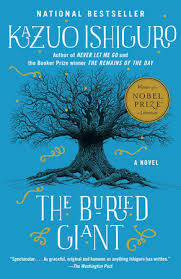
X
2018: The Buried Giant by Kazuo Ishiguro This is a fantastic book. I bought it (actually, was bought for me) just after his being awarded the Nobel Prize, and it still managed to exceed expectations, which is not an easy trick to pull off. The story is one of memory, on the differences between memories and real life, on propaganda and mass false untruth, on the rewriting of history. Brilliantly, the author interlaces two perspectives on this theme: one of the victors in a civil war settling a mass untruth upon the civilian population that their methods to win the war were civil (they weren't), but also one on an ordinary, elderly couple who thought that their treatment of their long lost son was loving and fair (it wasn't). The story is set in a cloudy, pre-historic, half-mythic, post-Arthurian world in which real history and popular myth can swim and intermix, which of course re-emphasises the theme all over again. Characters in the tale represent truth and falsehood, and it is clear that a great battle must inevitably take place. But who represents what? And even if we discover who represents what where do our sympathies lie? And what effect will this battle have? Who knows? At the end of the tale the mists clear and truth is revealed, which causes nothing but grief to everyone concerned. While the reader knows that their thoughts and sympathies should be with the victims of the terrible war, in fact it is all too much to take in. Instead the personality of the writing brings it much more towards the elderly couple who are torn apart, although they never wanted to be, because of the appearance of that awful imposter Truth. Isn't that just like real life! The reader's emotions are left raw and exposed. The tale has been gripping and fascinating. The direction of the story has been inventive and full of metaphor. The world conjured up has been mythical and yet reflective of reality, both ancient and modern. Brilliant.
| 
X
2019: En Familjmiddag av Kazuo Ishiguro Det här är en novell av Kazuo Ishiguro. Jag planerar inte att skriva om varje novell jag läsar, men den här är min först i hel svenska, och igen börjar jag på toppen med en nobelprisvinnare, så jag kan skriv om den. När jag först började att lära mig svenska ville jag att läsa nobelprisvinnarer i svenska, så här klara jag mig en milstolpe också. Det här boken beskrivar en familjemöte med en far och hans två barn. Dom pratar om livet, och om hur barn växt till män, och om sorg om en grannas självmord. Den är en vacker historia, långsam och djup och den är absolut hur jag vill skriva. Jag skulle älska har en tiondel av Ishiguros talang. Suck.
| 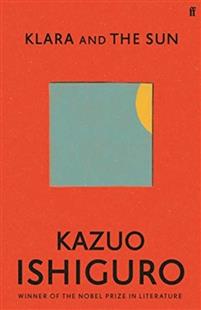
X
2023: Klara and the Sun by Kazuo Ishiguro Unfortunately, time slipped by between my reading this book and writing the review. It is an intimidating task, to write a review of such a book in just a couple of paragraphs. This monumental work addresses AI, machine intelligence and genetic engineering from the human and emotional aspects, without getting caught up on technicalities. It is written by the nobel laureate Ishiguro, a literary giant (forget all that nonsense about dead white men: literature, like all human achievements, is now better than it ever has been). It is clever, smart, thought-provoking and superbly written. What else to say? Klara and the Sun is written in first person of an artificial intelligence. At the start of the novel her knowledge of the world and how it works is observational and factual, but very naive in terms of human behaviour and consequences from the functioning of everyday processes. Knowledge in this area improves during the course of the tale. The robot expresses emotions, such as a desire to work well to serve her owners, which is an imagined, although not impossible, process that an artificial intelligence might make. The robot observes and internally comments on human behaviour, without judgement. This includes parents risking the health of their children by putting them through some kind of genetic modification process which increases intelligence at a risk to health. All of this is described through human interactions and without trying to produce technical explanations. It is absolutely the right way for a novelist to address these issues, superior to attempts by Powers (Playground) and Vara (Immortal King Rao) in recent times. The finished product is a masterpiece, a significant work of philosophy as well as literature, worthy of a giant.
| 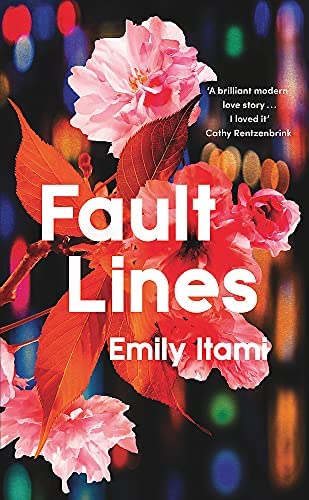
X
2021: Fault Lines by Emily Itami 2021 Costa shortlist This is a good book, a bit self-obsessed and cliched for most of the journey, but then it explodes into a stunning ending which picks it up by a large amount. The story is told by a modern woman, in the first person, present tense, lots of flashbacks to pick up the backstory. This is a modern and lively way to tell a tale, of course, and it would be challenging and unusual if it was not the case that everyone else is doing the same thing this year. Everything is in the present tense this year. Last year they were in the past, perhaps next year they will be in the future. Itami's story is an internal monologue of a Tokyo housewife, married to a successful and busy businessman, with two pre-school children. Her life is wearisome and unfulfilling; she finds the children more troublesome than rewarding; her husband is remote. She finds an attentive male friend and has an affair which is more spiritual than physical. Of course there is little new here. Carla Lane did it all 40 years ago, and it was tired and predictable then. Itami does not really add much to the saga. It is well written, flows, picks out some local beauty. But it does not get into any other characters beyond the protagonist and hence she comes across as self-centred and hard to empathise with. After all, the life described in this novel is exactly my life. It is up to you to make of your own life exactly what you will. If you have income and no external work pressing upon you then you should make it a paradise. Perhaps the protagonist would have been more satisfied if she spent more time writing book reviews. In the closing chapters she tears herself away from her external friendship. On the way home she is deep in the Tokyo underground with her children when an earthquake strikes. Only then does she find herself overtaken with a deep desire to protect her children, and she fights through jammed doors and endless stairs to find sunlight and safety. It turns out that this is her desire after all, the safety of her family, but she had never found the driver until now. The ending is stunning and exciting, with a sudden, shocking change of pace. The moral lesson is warm and well done. All this means that in the end it becomes a good book. But that's fortunate, because without the ending it is just a tiresome drag of someone who doesn't know they're born, frittering life away. That would have been a less entertaining read.
| 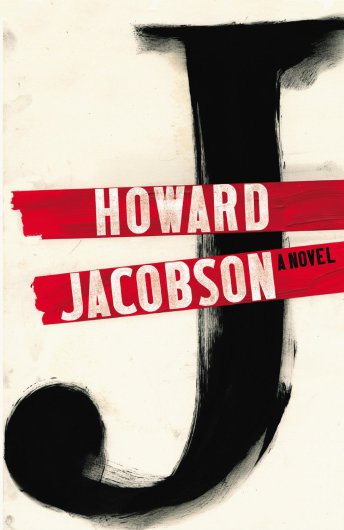
X
2014: J by Howard Jacobson Not a happy book. J gives a view of a post holocaust world. It's not clear if this holocaust is a second or an alternative event. It is clear that it was intended to have been total, and the reader implicitly learns that it was an event that occurred more through social structure, enabled through social media, and less through military means. The story focuses on a couple who turn out to be single survivors of the bloodline. It is an odd read, invoking an horrific event, but doing so in a way which is strangely inconsistent and untenable. The story takes place in Germany, clearly identified through Wagnerian references, but outside influence either in or out is scoped out. The people deal with guilt and reconstruction through entirely internal means, with no outside reference. It is assumed that social media and even national communication no longer happens although there is no totalitarian infrastructure to enforce such a thing. The absurdity of single survivors enables the narrative structure, but distances from reality. Against this odd and untenable backdrop the characters do their thing, and behave in ways which are both human and yet unpredictable. The backdrop of violence seems gratuitous given the lack of realistic links to the present human condition. I'm not altogether sure why the reader was taken down this dark and miserable sidestreet when links to realistic and tenable human condition are so strained.
| 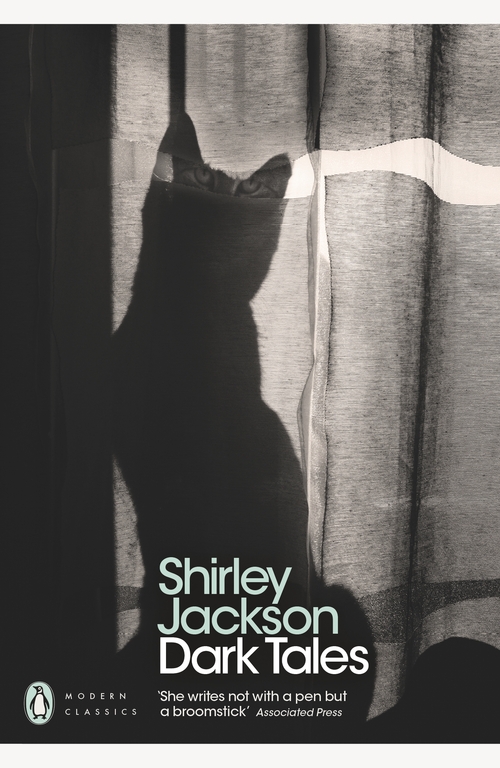
X
2022: Dark Tales by Shirley Jackson Unfortunately, time slipped by between my reading this and writing the review. This random pick up at a rail station in Edinburgh turned out to be one of the best ever. Buying a book at a rail station is becoming more of an anachronism every year, nevertheless, long may it last. Shirley Jackson is famous for that short story, and a couple of novels, but this collection shows why she should be regarded in the top division of short story writers. Her work is carefully planned and meticulously constructed. The endings are invariably surprising and shocking, but this is not driven by the plot so much as the formulation of character along the way. One is shocked, not so much in the story twist, but rather in that such a character could have done such a thing. This is a real achievement. She excels at building up normality -- in all its gorgeous, tight detail, so that the reader knows exactly where they are -- only to skew the whole story at the end so that nothing is what it seems and the reader is dumbfounded. This is a wonderful set of tales that constantly unbalance and astound the reader, as well as being a masterclass in story construction for the aspiring writer. One cannot say enough good things here.
| 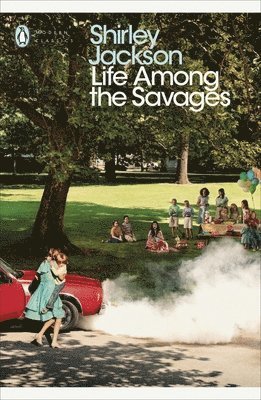
X
2025: Life Among the Savages of Shirley Jackson Family humour from the master of the macabre. Shirley Jackson takes a break from writing the most exquisite prose known to humanity; buys a large, ramshackle house in Vermont, complete with pillars; and brings up a family of children in wonderful chaos. The subject matter is different, but her clever wit, acerbic insights into different people, and beautifully terse prose is still there on every page. You will laugh at the antics; smile at the subtleties slowly revealed; frown at the attitudes from another era. It is a glorious break from the everyday life you lead. In the midst of the humour is a single day, which earns barely a paragraph, when she describes how her young boy was involved in a serious car accident and nearly didn't make it. In true Jackson style, she sums up the day in a single sentence: When they told us at the hospital, late that night, that everything was going to be all right, we came home and I finished drying the breakfast dishes. What parent can read that one sentence without a chill going through them? You will smile and wince in equal proportions, and love every minute of it.
| 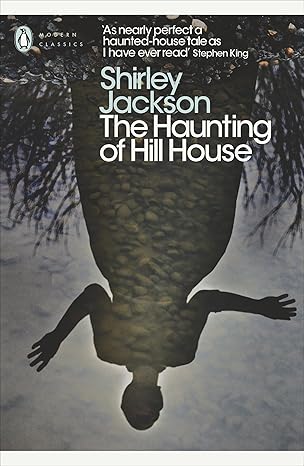
X
2025: The Haunting of Hill House of Shirley Jackson The last Shirley Jackson book I read was pleasant family memoirs, but here we are back in familiar territory. The ultimate haunted house book will scare the dickens out of you. Jackson excels in building up normality, through both her characters and scenes, only to then disintegrate it as her plots reel off the straight and narrow and take the reader into the strangest excesses of the human mind. Her surreal plot twists and extraordinary climaxes work so well, precisely because she is so good at setting up people and lifestyles that you recognise and with whom and which you empathise, before she knocks everything down. This wonderful book is a masterclass in how to do this. The characters are pleasant and quirky, the atmosphere is initially no more than just a little creepy, the setting almost humorous. The supernatural comes on slowly, the pace is beautifully judged, nothing happens too fast. The reader is left constantly on the edge, never really sure what is factual, what is imagined, which narrator can be trusted, which cannot. Nothing is certain, everything is only partially understood. New characters with aggravating personalities only make the reader empathise even more with the originals, and by the end of the book we are deeply, emotionally tied to them, and still not really any wiser as to what is real and what is fake. Jackson has us exactly where she wants us, just at her mercy, and so the ending is brutal, shocking and merciless. But why am I doing this? The words echo around your head long after you finally put down the book. She has taken us to the doors of hell, and yet all the time, we never fully understood what was real and what was not. It is a masterpiece. Truly, no one does it better.
| 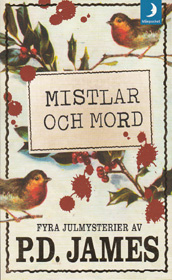
X
2020: Mistlar och Mord av P. D. James Klassika noveller av en klassik författare i deckare litteratur. Välskrivna, förbryllanda, liten roliga. I en novel är det inte nödvändigt att slutföra en whodunnit, bara att sätta en pussel och lösa det, och James gör precis det, och gör bra. En smart, bra bok.
| 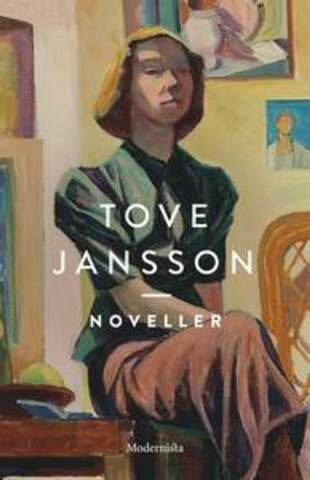
X
2021: Noveller, av Tove Jansson Tove Jansson är mest känd, självklart, för sina Muminsagor, men här är en samling vuxennoveller av Jansson. Titta inuti, och man kan se också Jansson målade självporträttet på omslaget också. En bra artist! Novellarna här är korta, fokuserade, täta, färgglada och, dessutom, lite platta. Man har beskrivningar och ovanliga scener, men inte mycket handling, inte mycket berättelsar. Du har en scen, någont ovanligt, litet samtal, sedan slutnet. Ingen båge, ingen treaktstruktur, ingen komplettering. A serie teckningar som är vackra, men ej en helt saga. Vackert, lätt, inte så djupt eller meningsfullt. Liten nedslående.
| 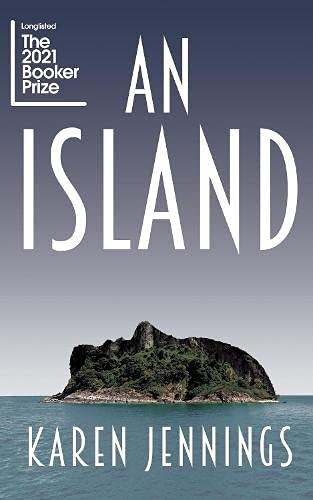
X
2021: An Island, by Karen Jennings Booker Long List This glorious, compact allegory of Karen Jennings stays on a small island with a cast of just the island keeper and a castaway, who does not get even one line of dialogue as he cannot speak the language. Nevertheless, the story builds, old memories waken, tension picks up and there is enough there to drive a tragic outcome, where the reader's sympathy is caught between the simple sadness of the island keeper's background, and the savagery of the act he commits. A one act masterpiece. Samuel lives alone on a tiny island, a life little short of solitary confinement in a prison, but he clings to it as it keeps him safe from the memories of totalitarian governments, revolutions, street violence, imprisonment and tragedy that make up the first part of his life. He does not want companionship, and is reluctant to offer even the basics of life to the castaway who is washed up onto his island. Regardless, the stranger survives and, despite a language barrier, offers simple companionship and help. It is the worst thing that Samuel can imagine. He cannot accept even simple friendship without memories of his past awakening and causing him to see duplicity and treachery with every gesture, behind every corner. The language thing means that Samuel can even utter out loud his crazy ideas of deceit and violence without them being understood, innermost thoughts expressed in the open. It's all too much for the old man and, even while the reader is hoping that he won't be pushed to do something crazy, he kills the innocent stranger and entombs the body on his island. There will be no consequences for him, already living a life of imprisonment. Only the reader bears witness. There is moral horror, but Samuel seems to be beyond that. A sad indictment of what a life of violence can produce, the misery of the death of the innocent. This tale is remote and enclosed enough to be an allegory, a one act tragedy, and it is beautifully done.
| 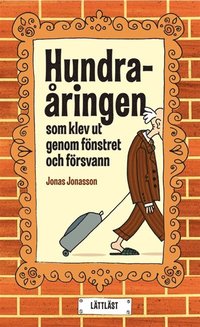
X
2018: Hundraåringen som klev ut genom fönstret och försvann av Jonas Jonasson En konstig bok. Ovanlig. Svart. Mycket, mycket rolig. Jag skrattade, en gång så mycket att jag ramlade från soffan. Jonassons berättalse har en gammal gubbe går langsamt genom stugar och polisen och tjuvar och andra människör och en elefant, rörar sig alltid som hans egen fart, och orsakar kaos överalt. Humor är konstig och svart. Berättelse är ovanligt, men den slutliga boken är helt bra. En fantastisk bok.
| 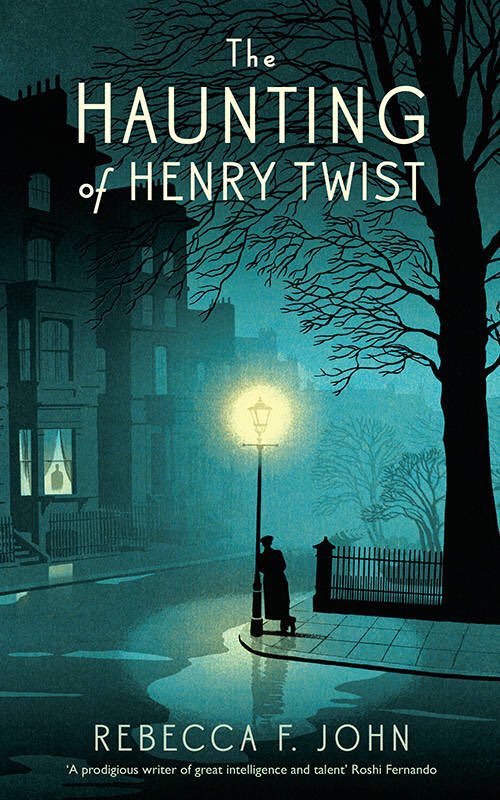
X
2017: The Haunting of Henry Twist by Rebecca F John I thought that this was a very good book, and a really promising opener. The book opens with a really good short chapter which ends with the protagonist getting killed by a car. In just a few pages the author builds up a character, a personality, a story, the reader's attention. This is all done well enough to bring out genuine shock and outrage when it all happens, only a few pages in, and this is really well done. It sets up much of the rest of what follows. The depiction of grief that follows is set against the Bright Young Things of the 1920's, taking care to make these people ordinary fallible folk also and not the idle rich. This works well. In addition the hero is set up as an unlikely single father, which works less well. A new character is introduced, starting out as a conman who works on the recently bereaved, but as the story unfolds he becomes a genuine lover and gives up the con. There are many narrative weaknesses: the baby is introduced to make the father more tragic, but then conveniently foisted onto a neighbour almost continually to allow the father to play with the BYTs in his grief; the fake psychic actually gives up real information when needed by the narrative; the conman is supernaturally elusive when first entering the plot, but then turns out to be natural; the BYTs are centered around a omnipotently benificent figure which allows for their life of idle gluttonly to be set against working backgrounds. The author never works at bringing the plot to heel, she just pulls in magic to make stuff happen. But for all that it flows well, the characterisation is good, the conflict is introduced and the reader has empathy. Very good storytelling. I think the book would have been better if the psychic, the conman, the financing of the BYTs had all been just straight and not supernatural, and the story was just of grief conflicting with that lifestyle. There might have been a very good tale there. Still a very enjoyable read.
| 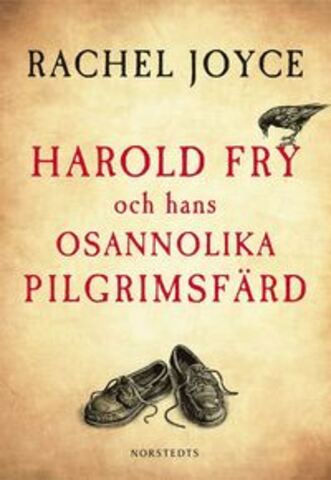
X
2021: Harold Fry och hans Osannolika Pilgrimsfärd, av Rachel Joyce En Booker Prize bok från om 2014, jag läste den på engelska på kindle i det där morke undrevärlden mellan inga glasögon och glasögon hela tiden, när varje pappersbok låg i en riktig dimma. En superfin bok, absolut originell och känslomässig, jag blev så beskiven när boken vann inte genom till Booker shortlisten. Harold har problem i sitt liv. Han går för att skicka ett brev, men stannar inte och till sist går han hela vägen genom England till Berwick, och en slutt på sin egen livshistoria. Han går hela vägen i däcksskor, så nufortiden klagar jag aldrig på min vandringskängor. Temat är rikt och djupt, eftersom Harold och hans fru minns dera förlorade son; Harold kommer ansikte mot ansikte med cancer; han träffar andra människor alla med sin egna liv och berättelser. Berättelsen är så originell, och passar så bra med den här vandraren att jag älskade boken, på englelska och nu på svenska. Kanske är vandring inte tillräckligt lång för berättelsen, men det spelar ingen roll i en liknelse ändå. Helt perfekt handling, utmärkt språk, underbar karaktär. Årets bästa bok, utan tvekan.
| 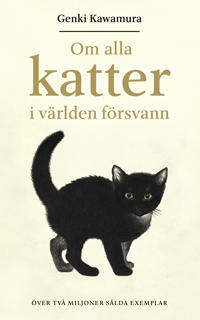
X
2024: Om alla katter i världen försvann av Genki Kawamura Trollhättan Bokcirkel En fantasktik bok av Kawamura, välskriven, med en verklig handling och beskrivning, men också filosofiskt och genomtänkt. Det är inte lätt att göra båda. Vår förstapersonsberättare får veta att han kommer att dö av en sjukdom. Djävulen kommer i natten och förklarar att han strax kommer att dö, faktiskt. Men han kan överleva en dag till genom att välja en sak som måste försvinna från världen. I flera dagar överlevar han, och telefoner, filmer och andrat försvinner. Han kan se på sorgen detta medför för andra folk. Så småningom är det dags för alla katter att försvinna, men han kan inte förlora sin egen katt, den sista länken i kedjan till sina föräldrar, och därför väljer han döden istället. Vi följer mannen varje dag när han träffar andra människor, pratar om livet och döden, om vikten av saker och grejer, om minnen och kopplingar till det förflutna. Vi kan kanske tänka på hur många dagar vi skulle vilja överleva genom att förstöra världen, grej för grej. Och vi älskar våra egna saker också: katter, hunder, familj, älskare, som vi inte kan leva utan. En riktigt fint och fundersamt bok, en vinnare.
| 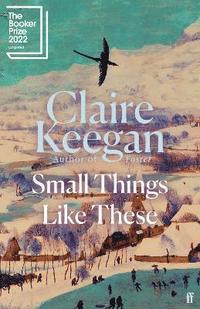
X
2022: Small Things Like These, by Claire Keegan Booker Prize shortlist This is a wonderful book. Keegan builds up the view of an ordinary, country Irish family: he has risen up from nothing, works hard; she has commited to her man, brings up their daughters wonderfully. They are salt of the earth, hard-working, generous, loving. It is a beautiful picture, especially as it is a picture of success and happiness, very much in the spirit of the Levin family, and that is always harder to evoke. Against this backdrop the protaganist comes up against the wicked neglect and slave treatment of young women, committed by the catholic church. He faces a moral dilemma, and in the end gives in and helps the young woman that begged him to help her, realising all the time that this act of charity is likely to bring his own family down in the community. The story ends before the consequences can begin. It is a stark and poignant tale, contrasting simple kindness and generosity against the wickedness and evil of the nuns' treatment of the vulnerable. The reader's emotions run wild and they put down the book half way, desperate to change the world. Keegan's portrayal of the best and worst of human nature, all shown through the small details and minor incidents of life, is masterful. This is clearly not a novel. It is a short story, a long one. It covers a single few days in time, a single incident, a single aspect of life, and it ends at the peak of the action, without tumbling down the hill, perhaps the cliff, of consequence that lies ahead. It is a wonderful work, but not a novel. Sadly, books with this subject matter cannot undo the wickedness that has taken place, else we would all be writing them. But in evoking these scenes it can rinse through the sores that remain. This is an important role of the writer.
| 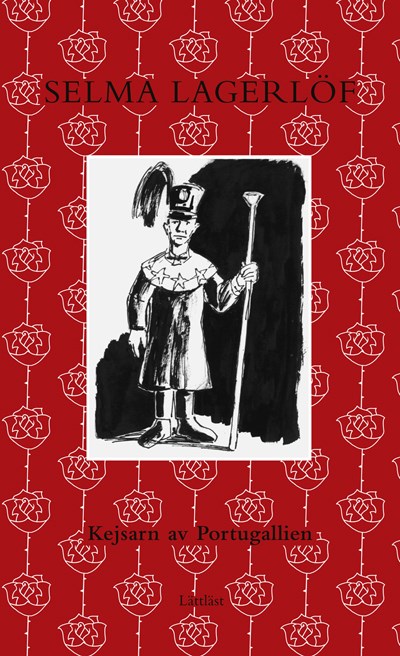
X
2019: Kejsarn av Portugallien av Selma Lagerlöf En klassiker av Selma Lagerlöf, Kejsarn av Portugallien börjar som en glad bok, en komedi verkligen, men slutar som en tragedi. Man kommer att få mycket sympati med den stackers kejsarn vem är oskyldig för något brott förutom att älska sin dotter. Berattelsen handlar om en man som har en dotter. I början vill han inte har barn, men vid första anblicken älskar han henne väldigt mycket. Livet är fattig men mycket lyckligt i huset. När hon blir vuxen flyttar hon till Stockholm, hon bor där olyckligtvis och hemma saknar hennes far henne mycket. Till slut blir han galen, blir han Kejsarn av Portugallien, och han kan bara leva som en galen man. Att leva i den verliga världen är att saknar hans dotter för mycket. Hon kommer tillbacka i slutet, men det är för sent och hennes far är bort, och dör sedan. En fantastiskt historia, en klassisk bok, en tragedi. Man kommer ihag de första kapitlen som är glada och roliga.
| 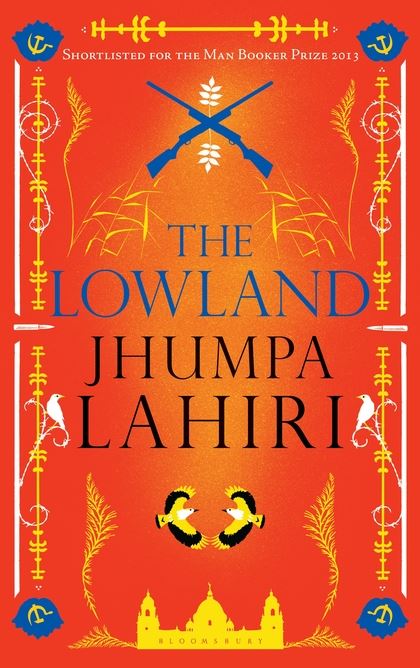
X
2013: Lowland by Jhumpa Lahiri Lowland is a really good book. It starts with a slightly strange change of tense in the first two paragraphs. The story starts with a tale of two boys, who grow up together, and then are separated when the less adventurous one goes to the US for further education. The more adventurous gets involved with political unrest. After 100 pages there is a change of direction when the young man at home dies, and the older man returns home to mourn his brother, and returns to the US with his brother's wife and unborn child, largely estranged from his parents. The central part of the tale slows down and follows the mostly unhappy marriage and slow separation of the married couple, as he in particular pours his love and energy into an intense relationship with his (step) daughter. Father and daughter return to India following his father's death, and return to find the mother has fled the family home. The daughter grows up independent and nomadic. Crisis comes as she declares a late pregnancy, and he makes a late declaration of his step parenthood. She leaves, but soon returns. There is a final and traumatic and unwelcome and brief return of the mother. The book ends with a return to India and final view of the death of the original brother, which has been told already from several viewpoints, from his own viewpoint. This comes to include the split second as he feels the impact of the bullet, but then in a nice touch is extended for a final few paragraphs after that. For the length of the book we think we are reading the biography of the surviving brother, but at the end we discover that really we are reading the biography of the dead brother, and the flow of family ties, making and breaking, are a series of ripples spreading out directly as actions of his life and death. Even the final letter from his daughter offering possiblity of eventual meeting between his wife and granddaughter is an action flowing as a result of a line of actions coming from this man's tumultuous and short life. A difficult book for me to read in parts, as it deals with estrangement between parent and child. (Paraphrase) a parent's greatest shame is to leave for dead a child who is still living. I was swept up in the emotion of the central part of the book: the mostly homely and least dramatic part, but then I have always gone for that. I particularly like the final change of direction, the return to the death of the brother and the realisation, which came for me only at the very end, of exactly whose life history I had been reading for the past 250 pages. Perhaps the most momentous estrangement of all was that of the less adventurous brother in making the move to the US. Of all the break ups in the book, this is the only one where the breakee has an opportunity to address, and his brother says to him, "Don't go." There are real depths to the forming and breaking of relationships over the generations displayed here.
| 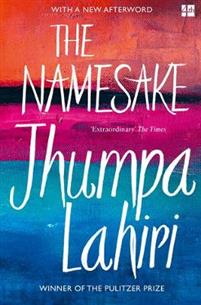
X
2020: The Namesake by Jhumpa Lahiri This is perhaps Lahiri's seminal work, not least because it is the one which was made into a movie. Here she sticks resolutely to preferred ground, telling the story of a couple from Calcutta who move to New England and have a family there. Over time a significant generational divide opens between first and second generation immigrants, particularly amongst the women. The family meet delight and disaster, the young man battles with his identity, symbolised in his changing name. The elements of the story are deeply significant as you read them: birth and death, marriage, infidelity, mourning, but none of them fall out of the normal orbit of life. What makes the work so deep and meaningful is Lahiri's creation of these people, her characterisation and the echoes she brings into their lives of the major events of your life. It is masterful, wonderful, close and emotional. The story has no seismic climax, it does not complete any circle. Instead it rises and fall with life's rhythm, pulls you through love and change, washes you over with a sea of emotion and leaves you soaking wet, immersed in the story. It is a masterpiece. Writing gets no better than this. Lahiri is writing in other languages now, which is great for her. One can only hope she returns to English to add to a canon which is as good as any. Bar none.
| 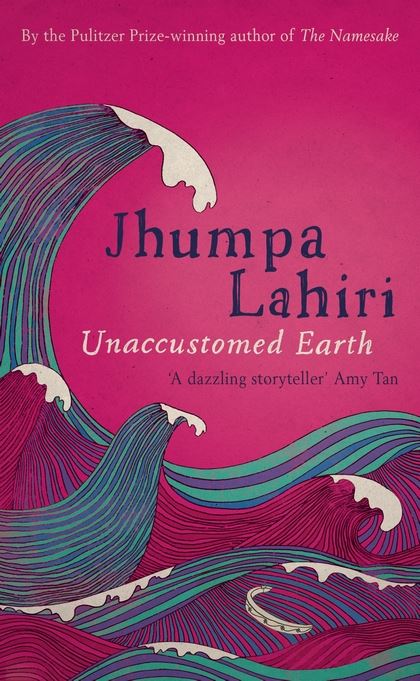
X
2018: Unaccustomed Earth by Jhumpa Lahiri A beautiful set of short stories, wonderfully told and exquisitely themed and laid out. It is amongst the very best writing that one could imagine, although I am becoming to expect nothing less from the wonderful Jhumpa Lahiri. All of these stories are based around immigrant families from India making a home in New England, especially about the generational divide that opens out between the first and second immigrant generations, especially amongst the women. Lahiri has the ability and willingness, shared with Colm Toibin but few others, to set her stories amongst ordinary people living ordinary lives. She writes about only events which we can recognize and share from our own life experiences, but in doing so she draws out a meaning and richness which makes the tale thrilling, without recourse to thrilling events, and so can enrich our own understanding of who we are and why we behave the way we do. It is wonderfully done. Lahiri's work remains resolutely with the same groups and sorts of people. But her ability to pick out their lives and expose the humanity of their actions puts this author amongst the best that there have ever been. This work is that good.
| 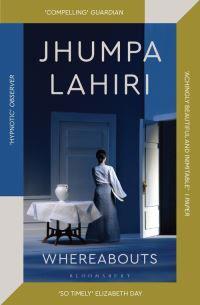
X
2025: Whereabouts of Jhumpa Lahiri This wonderful book of Lahiri claims to be a novel, but really you could read this as a series of independent cameos, tableaux almost. Through many short chapters the lead character describes herself and her feelings in simple situations: the setting, a person with whom she has a conversation, a dilemma she must consider. The language is beautiful and simplistic, each setting is given a minimalist description, and yet the reader is drawn into another world for a few minutes as they share a life with this gentle lady. You could choose to run the tableaux together as you read, following the development of the character's feelings as she prepares to leave her beloved home town for a year's sabbatical. Else you could choose not to do this, and simply take the book as an unconnected series of scenes. Either works. The book is simple and elegant in either case, and whether it is, in fact, a set of very short stories or a connected novel is your business, and no one else's. This book was written first in italian, not Lahiri's first language, and translated into english by her. While I claim no more than a fraction of her ability - obviously! - it still reminiscent of my writing in my second language, compared to my first. There is a lack of complex language, a lack of subtle use of vocabulary, or of layered grammatical constructs. Instead, beauty and charm come from simple description, an elegant and languid pace, and the slow revealing of a personality done in primary colours. It is a wonderful work. It does not display the language mastery of Nabakov, but it has the unlayering and description of a personality that is second to none. It's been a long wait for this novel of Lahiri, and worth every day.
| 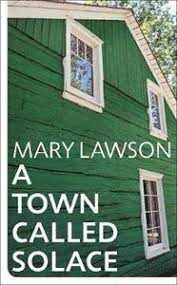
X
2021: A Town Called Solace, by Mary Lawson Booker Long List A wonderful book of Mary Lawson, set in the smallest of small towns. A child disappears in the present day, and another disappeared thirty years ago. Circumstances are different, but one character connects the events. The two stories are told by three different narrators, two in close third person and one in a first person monologue, internal conversation with her departed husband. Slowly the pieces fall into place and similarities become clear. Can the victim of the first event avoid the tragedy of history repeating itself? The tale works well. Time slips backwards and forwards, especially as one of the narrative strands, the one which dips most often into the past, needs to be told a few months earlier than the other two, as this narrator died shortly before the story is taken up. This sounds complicated, perhaps in my paragraph it is! But it works in the story and the reader remains clear. In fact, living with the aftermath of a character's death in one chapter and then having access to her inner thoughts as she approaches death in the next is moving, and Lawson does this well. We build sympathy all round, we long for the safe return of the children, for the divorcee to find love, for the child to remain connected to her parents. Lawson takes us through all of the tribulations and then completes every circle, allows for good outcomes to be worked through, which I think is good writing. The poor child who disappears in the present day has a bad time of it, but does make it home at the end. Always easier to jump into tragedy, more challenging to avoid the surge of emotion that brings and steer the ship safely home. Small town presented well, some nice description. The crazy ice cream and chisel thing, (wouldn't Agatha Christie have fun with that!), remains the detail one remembers. Perhaps this book is most notable for what it avoids. Is the police officer straight, or does he have a hidden agenda which will complicate Liam's life? The blurb on the back suggests the latter, in fact it is the former. Is Elizabeth's evidence of the tragedy of the first disappearance being presented objectively? In fact it is, evidence from Liam corroborates the mild neglect of his mother. But everything about this set up lends itself to have Elizabeth be unreliable, giving us a subjective view of her story. The reader would have to piece together each character's motivations from conflicting evidence. Lots of scope for conflict here, but none taken. I'm surprised, can't help thinking it is an opportunity lost. With or without this extra conflict, it is an excellent story, which avoids any strand falling away into a cheap death but instead follows each all the way home to the end of its arc. Really well done.
| 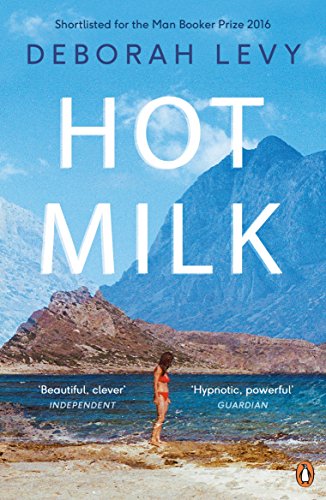
X
2016: Hot Milk by Deborah Levy A novel nicely told, in Levy's rather nice and poetic style. But clever wordsmithing goes only some way towards making up for a lack of narrative and some lack of character. It is another pretty miserable tale of a child living a blinkered and selfish life wrapped up in the life of the parent. In this way the novel has much in common with Eileen, above. The child worries about the angst of existence, without at any time coming to the conclusion that hard work and good food and sleep and not filling up head with nonsense might work. This angst takes up the entire narrative, and nothing else happens in the book. I have read in an external review that the theme of this Booker Prize shortlist is main characters who at no point engage the empathy of the reader. The panel hotly denied this, but having read four out of six I agree completely. I have empathy for none, and only got engaged with the triple murderer of Burnet. Sigh.
| 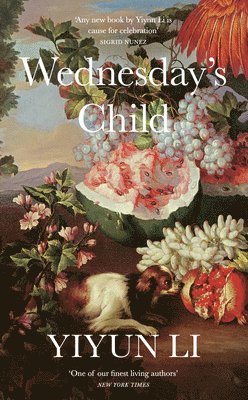
X
2024: Wednesday's Child of Yiyun Li Pulitzer finalist Who says that the short story is dead? Yet again, a collection of short stories gains recognition in a major writing competition. Li's work is of impeccable writing quality. Each character, scene, description is beautifully done. There is not a word out of place. The reader is never brought up out of the world that has been created by so much as a controversial comma. This is a masterclass in how to construct a short story. The stories remain studies of character and situation. They rely less on a story arc, you do not travel a rollercoaster of change and consequence with the characters. Instead you immerse yourself in each world and live each slice of life that is presented. Perhaps that is why, three months later, I struggle to recall any of the actual plots from stories in this collection. The stories themselves did not leave a strong mark, not nearly as much as the quality of the writing and description that is found on each page. I am a huge admirer of work of this quality. But all the same, I am left a little regretful that we were not taken on an adventure or two. While slice of life stories can be stunning, especially when done as well as this, the storyteller in me would love to be swept through a three act drama, at least once or twice in a collection.
| 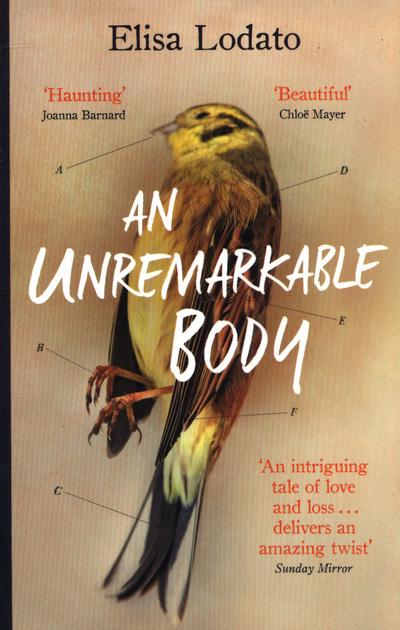
X
2018: An Unremarkable Body by Elisa Lodato One of the Costa Prize first novel shortlist books. I thought that it was quite good. It was inventive, well-written, had good characterisation and kept the story going without recourse to lots of action. I thought that the surprise ending was a little unsurprising; after a longish marriage and motherhood it turns out that she was gay all along. I agree that there is a story there, but perhaps not really a sting in the tail. In the end though, it petered out a bit. The sexuality thing should have been more a social commentary than a big shock, and then it turns out she was murde....well, manslaughtered really and it wasn't an accident. Again, there was a bit of a surprise here, but only a bit. After all, this is a novel and one expects the body that apparently died of an accident on page 1 to have been murdered after all by the final chapter. In the end though the surprise ending is strong enough to drive down the impact of the people story, but not strong enough to take over the novel in its own right. Good, but perhaps in the end the novel fails to really work as either a people story or a thriller. It falls between two poles and consequently, dare I say, the story has an unremarkable body. This novel also pales beside two other outstanding works from this list, but that is hardly Lodato's fault! Read on for the rave reviews.
| 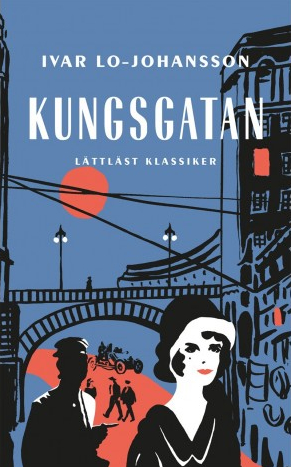
X
2018: Kungsgatan av Ivar Lo-Johansson Det här bok är skrivt i lättsvenska. Jag hoppas att läsa originalet kanske in två, tre år. Det var en bra bok. En proletariat bok satt i gatorna av Stockholm, med arbetlöshet och fattigdom och sjukdom och kvinnor på gatorna. Verkliga livet, jag lärade några nya ordar! Boken tog hjältan hela vägen genom fattigdom och hårt tider till en gott slutning. Även i lättsvenska man kan kännar hjärter av personer.
| 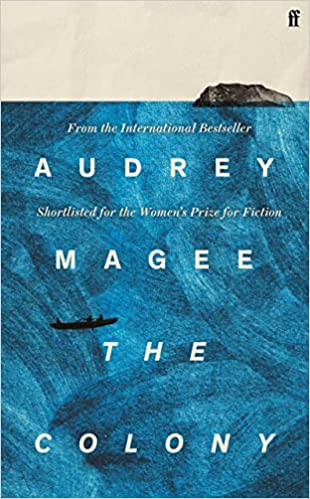
X
2022: The Colony by Audrey Magee Booker Prize Longlist Unfortunately, time slipped by between my reading this and writing the review. This wonderful but challenging book of Magee is a satire of colonialism and the misery that can be wreaked on an island by unwanted outside interference. A foreign academic studying the local culture and an artist both descend onto a remote irish island for a summer getaway. Both are unwanted but tolerated by the locals; both fail to understand the depth of this resentment; both ironically resent the presence of the other; both are guilty of viewing the isanders as picturesque representatives of a foreign culture and not living people. The academic is scathing about the colonial actions of foreign powers over Ireland in history, but is guilty of committing exactly the same condescending acts himself at a local level. The artist is asked for help by a local lad with a talent for art, but fails to come up with promised outside assistance, even after benefitting from his ideas. The story could have been presented as a black comedy, but there is no chance of that. Magee interspaces the narrative with a succession of descriptions of terrible killings committed during The Troubles of Northern Ireland, horrific in their relentlessness. Giving each just a few paragraphs, she focuses on the personality of the victim on each occasion. The mixture takes away any fun or enjoyment from the book. It becomes a bitter indictment of humanity's inhumanity to itself, and the reader takes real umbrage at the selfish attitudes and behaviour of the outsiders. Everything is soured, and personal feelings hit rock bottom. A wonderful but challenging book indeed.
| 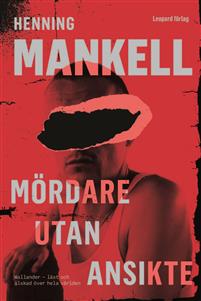
X
2022: Mördare utan ansikte av Henning Mankell En fin bok. Ett hemskt brott, en detektiv med många problem hemma, vintern kommer till det kallt skånska landskåpet. Alla ingredienser man behöv. Den här boken är den definitiva svenska kriminalroman. Stackers Wallander har ett hemskt mord att lösa, och ett andra, och hela tiden faller hans personliga liv samman. Hans fru, och hans dotter, och hans far behöver alla hans tid. Många mer böcker kom efter den, men den här var den första. Den är en bra och spännande läsning. Spänningen byggs up hela tiden, vi tittar på Wallander genom sömnlösa nätter, pressmöten. Vi ser 1990 års teknologi: fax och biltelefoner. Vi ser alla den tråkiga polisarbetet innan vi har den viktiga ledtråden som leder till en genombrott. Författaren behöver spänning, så Wallander och hans kollegor kan inte bara grippa en brottling utan att de kommer undan och vi har en rolig jakt genom någonstans. Den var lite roligt första gången, men lite tråkigt tredje gången. Förhoppningsvis kan den riktiga polisen i Ystad kan grippa en brottsling med mindre kaos ibland. Wallander löser dessa mord, men inte sit eget livs problem. Vi måste vänta på den, till den nästa bok, och nästa efter den. Jag ser fram emot det.
| 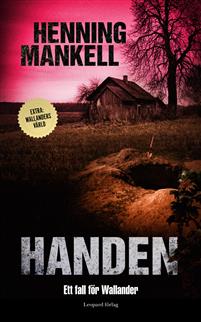
X
2022: Handen av Henning Mankell Tyvärr, gick det lång tid mellan att läsa och recensera. Handen är en mindre bok med en äldre Wallender. Inte exact som Sherlock Holmes i pension, men lite så. Wallender funderar på att köpa en stuga för sitt liv efter skilsmässan, men det finns en liten detalj av en mänsklig hand i trädgården. Kunde ha hänt vem som helst. Jag läste fler Wallender böcker på baksidan av den här, och tittade på lite TV också, och var nöjd med dem. Inte den bästa av alla svenska krimromaner, men originell och en viktig del av historien.
| 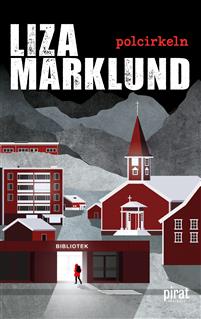
X
2022: Polcirkeln av Liza Marklund Tyvärr, gick det lång tid mellan att läsa och recensera. Polcirkeln är en riktigt bra krimroman. Det finns en tonårsbokcirkel, en dödsfall, ett försvinnande, och en lucka på tjugo år innan kroppen upptecks. Polischefen är nu samma kille som alla tonåringar var kära i. Allt går vidare, i nutid och med tillbakablickar. Äntligen har vi en återförening. Slutet är riktigt smart och originellt. Tyvärr når nästa i serien inte denna nivå, men för idag, har vi en riktig vinnare.
| 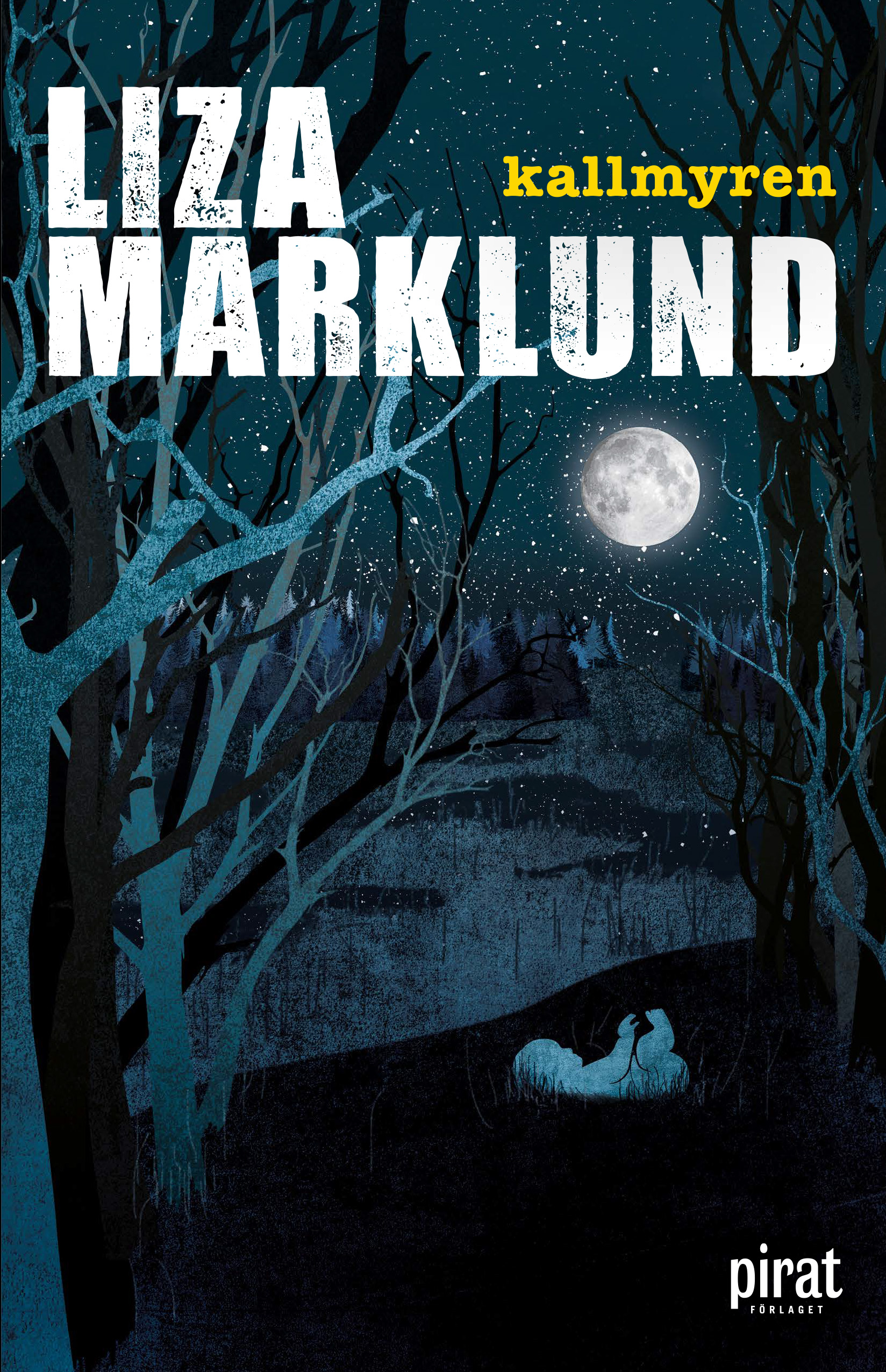
X
2023: Kallmyren av Liza Marklund Tyvärr, gick det lång tid mellan att läsa och recensera. Kallmyren är uppföljaren till Polcirkeln, med samma karaktärer och plats, och samma författare förstås, så man kan förvänta sig samme handling och stil. Men nej, här har vi något helt annat. Boken börjar som en krimroman, men förändras sen. Vi har scenar i Ryssland, tillbakablickar, et komplext mord med hi-tech bakom sig. Snart är vi inne i en fullständig spionroman, men utlandska säkerhetsorganisationer och helikoptrar och komplex tecknik. Handlingen blir lite krazy också, och döda personer från den första boken kommer tillbaka. Funkar allt ihop: denna galna blanding av krim och spioner? Nej, inte riktigt. Varje scen och varje handling har en orsak och verken, men hela berättelsen går inte ihop, och vi har något orealistiskt. Vi börjar tappar intresset för karaktärerna och slutet. Den första boken i polcirkeln var bra, men den här var för långt från verkleheten för mig. Jag prova kanske med Marklund igen, tillbaka på hård mark.
| 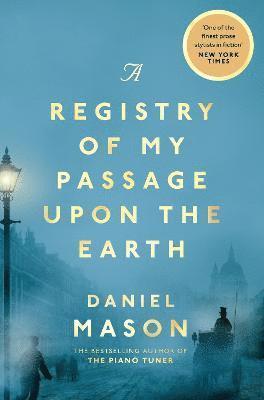
X
2021: A Registry of My Passage Upone the Earth, by Daniel Mason Pulitzer finalist Regret that some time passed between reading the book and writing this. There have been so many collections of short stories in the past two years like this; stories without a traditional three act structure, more a description of a single scene than closed adventure, with beautiful writing. Prose poetry not restrained by the need for closure. This collection is amongst the best. Hazily beautiful, Mason caresses the language and lingers over each moment, picking just the best words to bring it to life in the reader's head. He sees no need to complete sagas. There is no need to explain everything upfront, sure, the reader can pick it up as they go along. But he saviours each scene and shares the images with the reader; watching, listening, tasting the story. It is all beautifully done. Another short story collection given Pulitzer recognition. (Short stories are dead.) Another collection without a requirement of a three act structure. (You must have a beginning, middle and end.) Another collection of exquisite prose poetry. Don't listen to the critics, just chase down good writing.
| 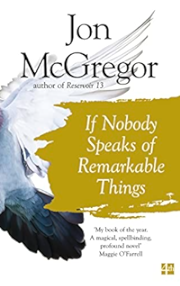
X
2023: If Nobody Speaks of Remarkable Things by Jon McGregor This is a technically excellent book of Jon McGregor. The plot focuses on one day in a single suburban street leading up to an event which we know is dramatic, and guess is tragic, but the reader does not know what it is. The story is told in two voices: one a first person insight into the head of one, unnamed, female character; the second a third person overview of what everyone else is up to. The writing of the female character is heavily stylised, and consists largely of one sentence paragraphs, many of which start with a nominative pronoun. The first person section features lots of memories of the character's life leading up to, and leading away from, the day in question; the third person part focuses almost exclusively on the day itself. Tension builds. One half of the text builds up the story of the female character's life, especially her revealed pregnancy. The other builds tension as the special day progresses, hour by hour. We know something very dramatic is going to happen, and all the details suggest that it will be a tragedy involving one of the children. In the end the author both gives us both the event we are awaiting and a twist. The expected tragedy happens, right on cue, and we watch the body being carried into the ambulance, wiping a tear from our eye. However, the child then jumps back to life during the trip to hospital, while another key character suffers a fatal heart attack back in his house on the street, an event which the other characters only realise later on. Our female heroine moves from the street later that day, so never realises the full outcome of the drama. This is significant in her future life, but only in a dramatically ironic way. The reader finally sees the significance, but she does not. This means that the effect on the character is, err, well, up for discussion. It is a clever story; the stylised gimmicks of writing in a particular format grab our attention; the tension is built up very deliberately; the ending both confirms and yet surprises us; the story drags in a wide cast of different characters. It ticks lots of boxes, and the book is critically acclaimed. However, there remains a suspicion that all of the above is created at the expense of producing a story that is absorbing and interesting to read; of producing characters that get into our hearts and get us emotionally involved. The ending, full of dramatic irony, is clever, but short of human emotion. I admired the construction of this book more than I did enjoy it, and the characters did not linger long in my mind, as friends do. This is a first class novel, without question, but perhaps, just perhaps, more admirable than lovable.
| 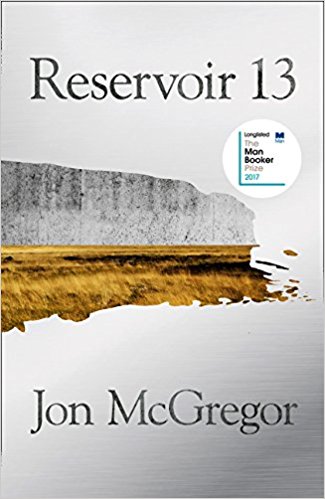
X
2017: Reservoir 13 by John McGregor Another fantastic Booker long listed book for this year. It is written with no separate paragraphs. I seldom go for this sort of thing, but in this case I think that the narrative style justifies this very slight gimmick, and the author gets away with it. The story focuses on village life and characters in the days, months and years following a disturbing disappearance of a young teenager. The event itself is not given focus so much as the ripples of impact it has on the people who are affected not directly, but through proximity. The narrative has a bit of the feel of a soap opera high level summary, as it rattles through births and deaths and illnesses and relationships making and breaking, giving a steady 25 pages to each year. As it goes through at this pace the reader is taken through major life events at pace, but the author dips down into significant events when appropriate and gives enough small detail to fill out the characters involved, before jumping back on the steam train of ongoing narrative. Human life is interspaced with the natural cycles around the village. This gives a feel of timeless flow and natural cycle of life to it all, and also presents human relationships at the same level as animal relationships. A story written with superb pacing of the narrative, which flows past at a rapid rate, but just stops for long enough at the right moments to bring in the humanity of the characters, before rattling away again at a quick pace. This was a difficult trick to pull off and it is great writing to do it so well. Reviews say that this is not a thriller, but I think that is only half true. The author pulls in just enough detail around the disappearance to tie the reader in, and is not above dropping in a bit of Agatha Christie here or there to tighten these connections. Discarded bits of clothing and a school janitor with a boilerhouse. The author might claim not to focus the text on the mystery, but he knows full well that the reader will be picking at these tiny details with intensity, and the thrill becomes a reader led thing, which is very effective. Ultimately the author chooses, wisely I think, not to round out with a solution - unless of course the solution is just the title, staring at us all along - but just to follow life as it goes, while the ripples of impact soften and widen out and eventually subside. A fantastic work, which I read in 2 days flat, thrilled all the way along.
| 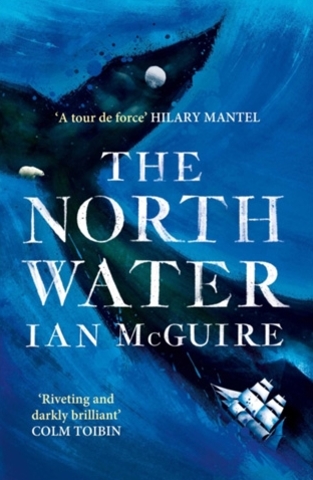
X
2016: The North Water by Ian McGuire If your elderly, maiden aunt takes to her ottoman with a fit of the vapours, and the call goes out to you, as a devoted nephew, to take a book and read to her, to calm her frayed nerves and soften her ragged feelings, then this is probably not the book to read. This is a tale of a ragged, dirty, cussed, whore-mongering, foul-mouthed, foul-tempered, violent group of sailors on a whaleboat in the Northern Oceans, and the author uses language very much to tell it as it is. The tale is well-enough told to be a work of literature, but is also an unashamed thriller, and at times the hero escapes various perils through Richard Hannay-esque miraculous circumstances. There is no reason, of course, why a book cannot be both, and indeed many would argue the The 39 Steps itself is exactly an example of something that is, but it is still a difficult act to pull off. At the first peril I was initially seriously impressed that the author had killed off the hero at such a critical point, giving a Psycho twist to the narrative, but that was not to be. At one point a psychic sailor has a dream foretelling how the voyage ends, and the dream ends up coming true, which is an even harder act to pull off effectively in a work of literature. Ultimately, the hero outlives all of his fellow sailors, even the very violent, difficult to kill off one, and the reader is left to ponder what this all means. Thrilled, yes; sickened by the gore, certainly; abominated at the depravity, indeed. Should we draw a lesson from all of this, or is the thrill of the ride enough in itself? Is this book we have just read a literary thriller or a thrilling work of literature? I'm inclined to the former, which means that it shouldn't win this award, although I devoured the final 30% or so of the novel with greater avidity than any of the above 3. And I never have quite understood the logic of that difference.
| 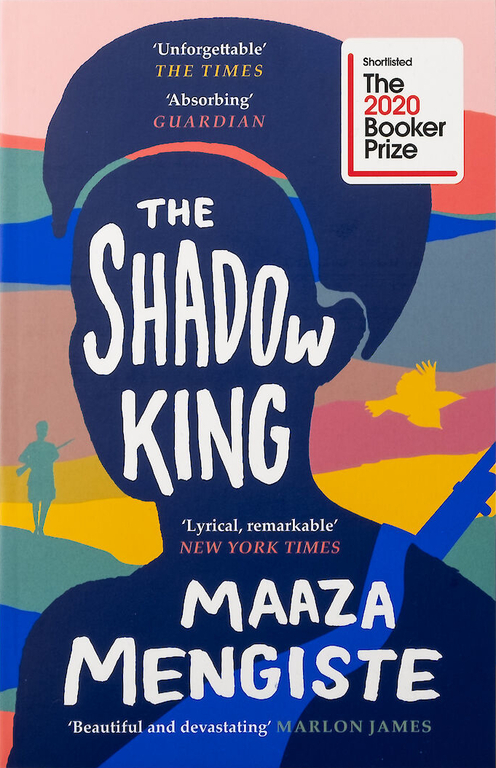
X
2020: The Shadow King by Maaza Mengiste Booker Shortlist Mengistes epic is set in Ethiopa around the time of the Italian invasion just before WWII breaks out in mainland Europe. It follows a family of masters and slaves, with a connection to the emperor, as they lose their home and join a rebel army which attacks the invaders using guerrilla tactics. The locals risk and sacrifice everything while the politicians and leaders shake their heads from the safety of HQ. The story is magnificent, focusing on a slave girl in particular and the family of other slaves and masters, including the rebel leader. There is depicted the desperately sad and pointless effort of slaves joining the defending forces of a country which has been invaded. Joining and risking their lives to defend what, exactly? The people and the regime which has enslaved them. Human nature is bizarre. The writer focuses on individuals in both invading and invaded camps, bringing to life not only the people and the motivations of going to war, but also those who live around and off the war camps. Hardly surprisingly, none are attractive. The blurb and the authors own notes bring out the particular effort of woman fighters contributing to the war effort in a deeply sexist society, where women would not normally be given responsibility to fart by themselves. For me, though, this just bled into the background of all the other motivations and drivers of the various actors in this play, none of which were noble or admirable. Everyone wanted to hack and kill everyone else, everyone expected citizens in the middle ground to take what was coming to them regardless. None of it was pretty. A long, detailed and rich tale, taking me back to the world of the Edemariams wife. An educative historical story. A well written piece of literature which brought a cast of very different people to life. A detailed investigation which delves into a character which history would normally marginalise and forget, bringing her to life. A sad indictment of the lot of a slave. Mostly, though, more than any of this, it is a personal and detailed description of how war is sad and tragic and awful, out of which no one gets any glory except the leaders and history writers. It is just war.
| 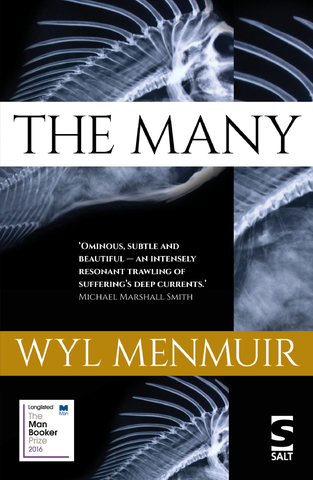
X
2016: The Many by Will Menmuir I've waited a week or so to write this review, as this tale swirls around inside me. I think this is an extremely good book, one of the best and most original I have read in some time, although with fully 85% of the book read, I still thought it was just a rather tiresome pastiche of outsider rejected by rural local community thing. The tale is of an outsider setting up home in a rural local community. He buys the house previously owned by a popular, local lad, who died and/or disappeared, and he is rejected by the locals, in particular one lonely and aloof rural man. The rural town turns out to be isolated, in decline, with a toxic environment, and hemmed in through barriers set up by shadowy external forces. The tale is told in chapters alternating with the viewpoints of the urban man and the rural man. Towards the end of the book the external forces, and the toxicity, and the external barriers all start to loom unrealistically large, until reality starts to break down in a surreal way, and the reader is unbalanced and confused as to where this is going. In a devasting late chapter it is revealed that the hero and his wife lost their son to a stillbirth. They cradled the stillborn infant in their arms, but could never meet the child. This, it turns out, is the never-seen previous owner of the house; and the whole narrative is not real life, but an increasingly destructive, stifling, toxic bad place into which the hero has fallen. The local man given focus throughout is, I think, an alternative self for the hero, the person he will become if he loses himself in this bad place and succumbs to his grief. At the end of the book the hero escapes, just, by a whisker, not by himself but only with the help of a therapist, and returns to his wife who has been calling him home. His alternative self dives into the toxic water and disappears. I'm sure that my cod-analytical paragraph above does scant justice to the clever and inventive way in which this novel gives a depiction of grief and depression as a descent of this ordinary story into surreal madness. The core phrase, "Timothy, he is gone. He is gone Timothy." resonates within long after the book has been finished. A seriously good book.
| 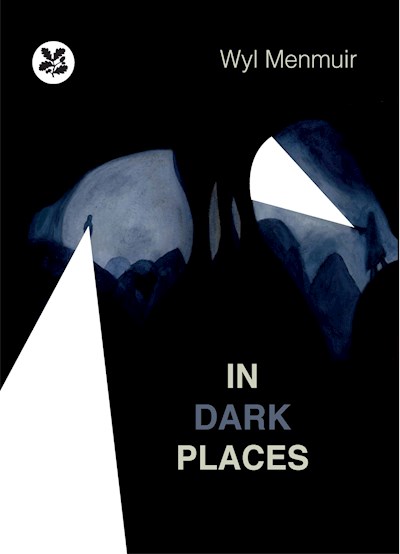
X
2018: In Dark Places by Wyl Menmuir I ordered this online and was not sure what I was getting. It turned out to be a short short story, padded out to about 40 pages with a few line pictures and a liberal wordsetting. The blurb didn't really describe the story. The story tells of a honeymoon couple who take a special trip through bits of the Cheddar Gorge not normally open to tourists. He is a bit of a prat; she is nicer, at first sceptical but later tuning in to the soul of the environment. Around them are ghostly traces of a group of potholers who died in the caves in slightly mysterious circumstances. Descriptions and atmosphere are quite good and, well, that is about it really. I don't want to carp because I thought Wyl Menmuir's earlier work was wonderful. Indeed, this story is atmospheric and is well done for what it is. The book is small, but it is attractive and it is apparently a limited edition with good quality paper and an eco production. While these things are good, they do not add substance to the writing. I guess that I am just disappointed because I wanted to read a second substantial piece from this writer and got only something very slight. I loved Menmuir's debut novel, I really look forward to his next. This sweetmeat only tickled the palate.
| 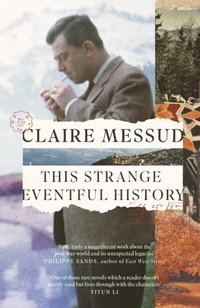
X
2024: The Strange Eventful History of Claire Messud Booker longlist One can say many great things about this book; it is deep and detailed; it follows a cast of family characters across the decades; the characterisation is excellent; it follows life and death without flinching; the research must have been considerable. There is a shocking ending, which affects what has gone before. This family saga follows three generations, through post-war French colonial life, a life which becomes anachronistic during the period we follow it. Three generations of French men - this is not a society of equal opportunities - try to become business giants, but all meet with only moderate success, and none manage to create their own empire. The story follows each of these people into their last years and days. From early in the saga we realise that there is a great family secret to be had, and this is teasingly referred to off and on, before being revealed by the third person narrator in a final chapter. This is a great work, and the standard of writing is consistently high, but I can't really say that I loved it. None of the lives described in the book were really happy, successful or joyous. Everyone struggled against disappointing careers and ungrateful families. All slid into sad declines. Without a success story one began to wonder what the point of telling this saga was? Middle class families spend too much time in the office and become petty alcoholics in their middle age. OK, this happens, but is it really a full story in itself? While the overall writing was excellent, it did dwell too much on the decline into old age and death. This is a feature of life, of course, but in a whole life story it should be only a single chapter. Finally we have that shocking ending. Shocking to whom? If you have a family saga with a big secret, it is inevitably that two people back in the family tree had sex when they shouldn't have done, and perhaps this produced another member of the tree. What else can it be? When revealed within the story it can be momentous if the consequences of the reveal are momentous. However, in this story it is revealed only to the reader, by a third person narrator, and not to any of the characters, and so the effect is not so great. It's a bit anticlimactic. This is a great work, still no doubt about that. But I think it is too gloomy, it misses out on the joy of life, and misses out on any real achievements within the family. I think the ending was relied on too much as a motivation for the whole story, and in this context it falls a bit flat. It's a fine history, but I found it neither strange nor eventful enough.
| 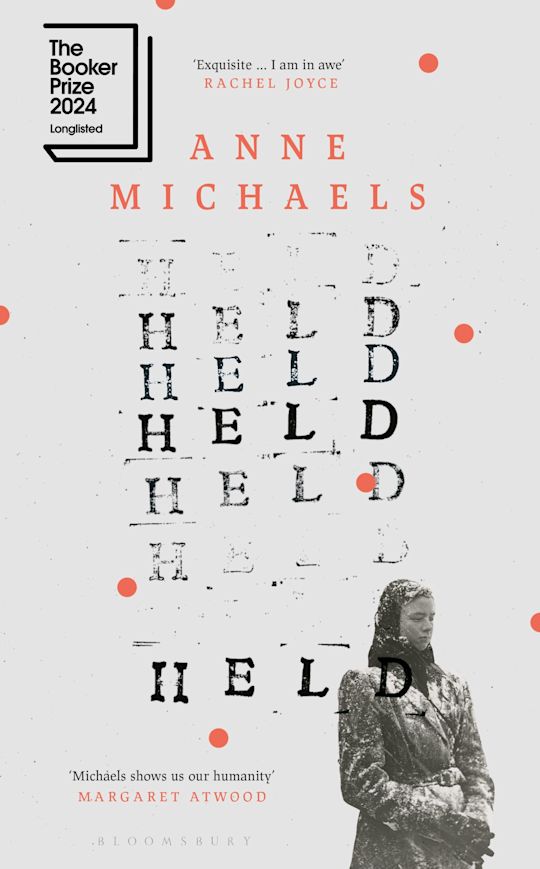
X
2024: Held of Anne Michaels Booker shortlist This is a wonderful novel. The writing is personal, emotional and sensuous, focusing in on loving relationships between partners; and between parents and children; in four generations of one family. In the background, thankfully blurred, we have not just the first world war, but wars and warzones throughout the years. The love and joy for life of the characters in front of us clashes starkly with the death and destruction of events happening just off stage. The book is not written in continuous prose, rather in an endless series of independent paragraphs. These can be deep and emotional, full of the sights, smells, sounds of the world as viewed by the characters. The story consequently hops around in random fashion across experiences and memories, with no regard to a flowing narrative or even a regular timeline. This is intensified by having the chapters hop around the timeline in the same, unordered manner. This works well in the first chapter, where the narrator has been badly injured and hops in and out of consciousness. The random hops of the story's focus mimics his own random thought processes. However, this continues in ongoing chapters where we have to follow four generations of family life and relationships in the same way, and it becomes confusing. To the historian, every battlefield is different; to the philosopher, every battlefield is the same. Is this the citation of the year? This story, just like Anne Enright's, "The Wren, The Wren," features the breakdown of family structure over the past hundred years. In decades gone by, a family would have a house, a job, a place in society. In recent times they are depicted as wandering aimlessly around and not being a rooted part of society. I find this discombobulating, although I accept that might be more a statement about me than about society. It is a superb read, emotional and moving, at times beautifully written. But I think the book's structure suffered a little from it's style - more about me again, perhaps? - and the story was glimpsed at and dipped into rather than being really told. I missed the completeness in characterisation which would have come from continuous prose, but I continue to remember the depth of certain scenes vividly, and this was really well done.
| 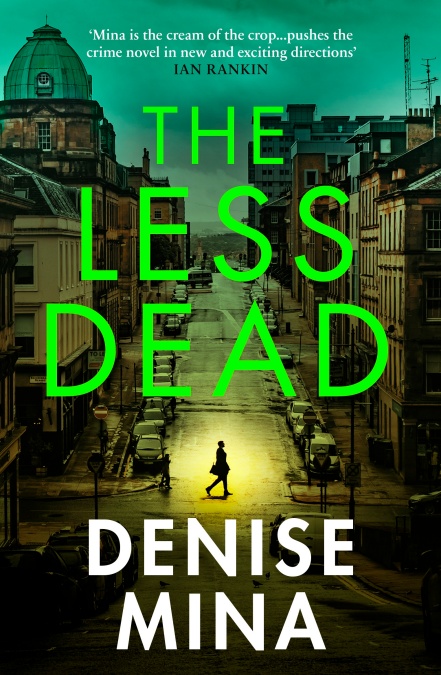
X
2020: The Less Dead, by Denise Mina Costa Novel Award, Shortlist I regret that a little time has gone by since I read this. In fact the new Costa shortlists will be out in just a couple of weeks. Where does time go? One can debate exactly what is high literature. Strout? Joyce? Whitehead? Well, wherever the debate goes, this book isn't it. This one is an out and out thriller with unfortunate corpses, reunited sisters, desperate detectives and a grisly and unlikely trail of clues. The story highlights the terrible situation of prostitutes in Glasgow at the end of the 1900's, working a dangerous trade and regarded as unworthy of assistance by the police. While the reader has sympathy for the unfortunates at the bottom of society's heap, most of their attention is taken up with following clues and piecing together who did it and why. The plot is more Alistair MacLean than Agatha Christie, there are relatively few surprises in the route taken, but a voyeuristic satisfaction in watching the circle complete. Slightly surprising to see it on this shortlist, but the book has a message to give and the tale is well written, even allowing for some unlikely narrative devices thrown in to make it all work and keep it thrilling. An exciting read which will keep you turning pages, but unlikely to get you meditating much beyond the final one.
| 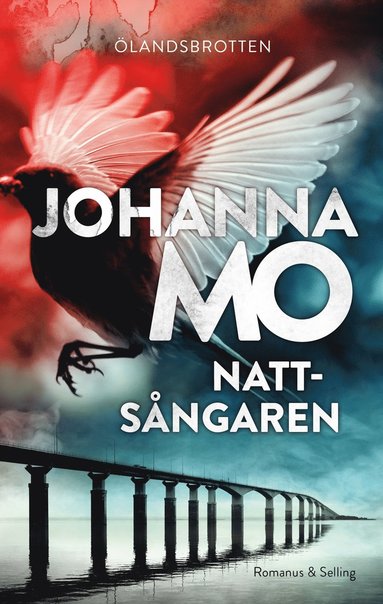
X
2024: Nattsångaren av Johanna Mo Johanna Mos bok beskrivar det vackra Öland, en plats min familj känner väl efter att ha bot i flera sommerstugar på ön. Sagan är en typiskt svensk krimroman, med en deckare som återvändar hem från Stockholm bara för att hitta en mordfall där hennes egen familj är inblandad. Språket var ganska bra. Karaktärerna ganska bra utan att vara speciellt annorlunda än normalt. Handling var tragisk, men också lite orealistisk. Misstänkta sprang runt trots bevis som borde har fått dem att gripa. Hela fallet slutade inte riktigt tillfredsställande. I slutändan var det mer som en olycka än ett brottsfall, vilket kanske var bra för sämhallet, men inte så bra för den stackars läsaren. Det var intressant läsning, men bok 2 kanske ligger inte så högt upp på min inköplista.
| 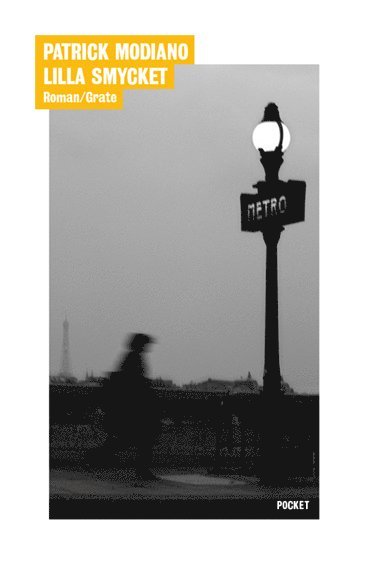
X
2024: Lilla Smycket av Patrick Modiano Trollhättan bokcirkel Det här är en klassiker, men inte min stil. En kvinna titta på en annan klädd i gul kappa som påminner henne om sin mor, som har dött. Hon följer efter den andre och filosoferar över sin mamma. Långsam och elegant, men för mig, den saknar en stark handling och förändring. Modiano har ett nobelpris, ingen tvivel om hans förträfflighet. Men ändå, inte min stil.
| 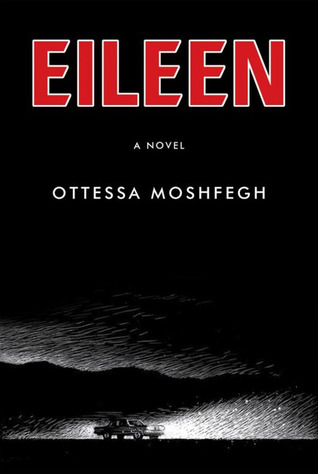
X
2016: Eileen by Ottessa Moshfegh This is a tough read. A dour thing, I found ittle to empathise with the narrator, very much an anti-heroine: bitter, twisted, pathetic, slatternly and non-contributory to those in need around her. She certainly didn't win me over. Eileen lives a dour life and is eventually pushed and pulled out of it, by self and circumstance, all ignited by the arrival of a chic and fashionable co-worker into her drabness. But then in the tumultuous final chapter this co-worker, supposedly a sophisticated professional as a foil to the unsophisticated anti-heroine, commits an unusual act of kidnap, and the story verges off to focus on the tragic story of an abused child who commits an abuse-driven murder. I thought that this diluted the narrative. By having secondary characters commit exceptional acts, the novel can no longer focus on the life changes of the lead character, but becomes instead a story around this event. Is the point of the novel to focus on these bizarre and exceptional acts?, or is it to focus on the drab life of the anti-heroine and her lurch up and out of it? I am left unsure. Added later: in an interview with the author I read that she wanted to write a novel featuring the events of the abused child and the murder and subsequent incarceration. She was unable to create a narrative in which this was a central event, and ended up creating this story in which it was an indirect influence on the seemingly main narrative. I thought this was fascinating and made me want to reassess the novel. On the other hand, I'm not convinced that this interview can then change the review of the novel. How can it?
Perhaps it all changes if the author had added a shadowy prologue featuring the actual crime. This would have centralised the event, even though it did not enter the narrative until the ending.
| 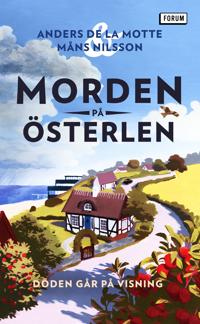
X
2022: Morden på Österlen: Döden går på visning av Anders de la Motte o Måns Nilsson Tyvärr, gick det lång tid mellan att läsa och recensera. Sommarens storsta krimroman 2022, den här har alla ingredientser som behövs för en riktig klassiker: en vacker del av södra Sverige; ett ovanligt mörd; en polisinspektör på semester från Stockholm; en lokal polis som vill avancera i tjänsten; ett par som är helt olika; en länk tillbaka till den lokala polisens familj; många korta kapitel och en POV som hoppar fram och tillbaka. Allt finns där, ingenting saknas, vi kan läsa, bara, och ha rolig. Boken går bra, stilen är riktigt bra, mördet är smart och väl beskrivit. Ett bra sommaräventyr, absolut inget nytt för att skaka genren.
| 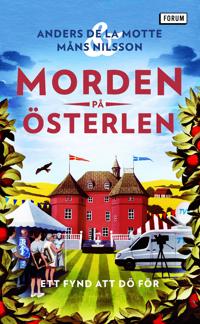
X
2024: Morden på Österlen: Ett fynd att dö för av Anders de la Motte och Måns Nilsson Den här är inte bara en typisk krimroman, utan helt lika den första boken i serien. Samma detektiver, samma semester, samma handling, samma spänning. En bra bok ändå: kryptisk, begrippande, intressant. Den passar en semestervecka - en vecka på Österlen kanske - riktig bra. Men, om du glömmer den här boken hemma, kan du bara läsa den första igen. Ingen skillnad.
| 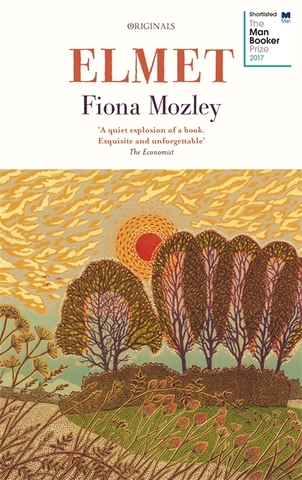
X
2017: Elmet by Fiona Mozley A great piece of human interest here, with a new writer with really basic beginnings getting a book published and then having the amazing experience of having it picked up by the booker panel. What a story! Judged by fair criteria for a new novel it is pretty good. A mix of modern day setting and something rather medieval going on, with a young narrator. Rather nice poetic writing in parts, and a social concience, even if it does get pretty heavy in some parts. However, for the Booker long list I think it falls a bit short. I don't think it really reflects well on the panel that it is included. There are some plot holes, both in the storyline and in the grasp of realisation of the narrative voice, which varies. The social and environmental traits of the characters are sometimes exaggerated. While the descriptive detail is often nicely put, it is sometimes inserted at the wrong point, slowing down the timeflow of the narrative just when that seems inappropriate. I found that in doing this it dragged the reader out of immersion in the story. The story is set in the modern day, but I'm not convinced that all elements of the plot work in that setting. A violent ending gave it all a dour outlook and ending, but the violence felt a bit gratuitous to me, perhaps because I had not been fully engaged in the plot in the first place. Sorry if that sounds mean, I still think that it is a good first book, but I am not convinced that this is Booker quality.
| 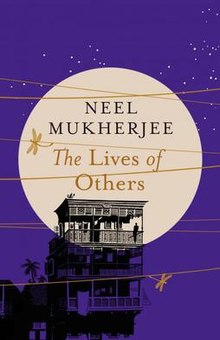
X
2014: The Lives of Others by Neel Mukherjee Phew. Opens with a gruesome depiction of violence and ends with a gruesome depiction of violence and doesn't really cheer up much in the middle. This story contrasts different lives in India in the late 60s and 70s. The main story tells the life of several generations of an upper middle class family in Calcutta: business deals and marriages and births and heart attacks and crumbling of the family fortune, with narrative constantly hopping about the timeline, meaning that each generation keeps hopping about from childhood to youth to middle and old age and back again. Interleaved is the tale of the son who leaves to take up armed struggle in the Maoist cause in rural areas, told in a strict chronological timeline. The contrast in how the story flows along the timeline in the two alternating strands is striking. Lots of change in style and time and characters, but the mood remains resolutely bleak. No one has a good time in this book. No one smiles. The futility of struggle against the corrupt and elitist central forces, either through middle class business or slave labour revolution, is remorselessly laid out. While the main family achieve comparative wealth for a couple of generations, all crumbles in the end. There is no shortage of violence and human misery, in both tales, to accompany. Characterisation is OK, but it is a big cast of characters, and little compassion or joy to give breadth to any one of them. One challenge with writing a multi-generational blockbuster is consistency in description. The author cannot describe the grandfather as ceasely stentorian and strict on page 103, only to describe in some detail his tender relationship with his new son on page 267. I'm not convinced that the author quite achieves this, (the above example, although not the page numbers, is literal). One gets the feeling of a book where the writing perhaps took over the planned plot, which is fine in itself, but which was then never revisited and made consistent later. Quite a good book, but resolutely bleak and downbeat. There is little cause for optimism here. I do hope for all our sakes that this is not chosen to be the literary message of the year.
| 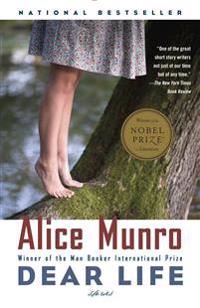
X
2024: Dear Life (Stories) by Alice Munro I've waited a long time to read a collection of Alice Munro's. When I began I cradled the book in my hand, as if holding something sacred. Each story was a treasure, and yet, and yet, somehow the overall effect did not leave on me the deep impression I had hoped for. Extremely good, of course, you don't need me to tell you that, but I cannot say that this collection thrilled me and left me desperate for more. These short stories do not hold a tight, single character point of view; they do not hold themselves to a tight period of time; they do not necessarily follow a tight story arc. The POV is mostly focused on one character, but is willing to pop into the head of others occasionally to reveal their thoughts: a mix of close first and global third. Each reveals a slice of life, beautifully described, and characters who are memorable, but still ordinary, like you and me. Each takes the story through a significant event or change, and describes the effect it has upon the character. If this change requires a month to occur then the story covers a month, if it takes several decades then the story takes that time, there is no concession here. Each story takes its own course, tension and drama is wrung from the actions of the participants while remaining absolutely small town and ordinary along the way. The whole body of work is a great achievement. It is full of lyrical and attractive writing, and it does a fine job of pulling the drama from everyday life, from characters just like the reader, from small towns. But at the end I still felt a little flat. I was interested in the characters, but not engrossed. I did not pick up the book unbidden in between my normal reading times. I missed the bite of Shirley Jackson, or the heart-rending emotion of Elizabeth Strout. I ended up a deep admirer, but not quite a lover. I might return, but probably not if there is an anthology of either of the above authors sitting beside the next Alice Munro on the shelf.
| 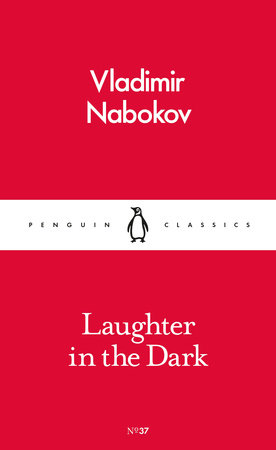
X
2018: Laughter in the Dark by Vladimir Nabokov A wonderful book. Nabokov is seldom included in the first division of Russian heavyweights, with Tolstoy, Dostoevsky and Chekov, but really he should be. He belongs absolutely in that class. This is a wicked, dark tragedy of Nabokov. While there are elements of comedy in the farce of which the antihero makes of his life, the heavy layer of black mud which covers it all makes it difficult to extract much joy from this humour. The clue to all of this is in the title of course. The blurb describes the antiheroine as being deliciously cruel, but really this description belongs more to the author, who spares no one in his depiction of humankinds suffering under the yoke of their own vice. The antihero is so pathetic, so gullible that one is reminded almost of Beachcombers hapless Mr Thake. However Nabokov makes sure that not only does he behave comically foolishly to ruin his own life, but also he behaves dreadfully to his young daughter as she ails on her deathbed, just to remove any trace of sympathy that the reader might have for this neglectful fool. The story drives him into the ground and he gets the hellish ending he deserves. You must save your tears for another saga. The plot is meticulous and characterisation wonderful. The language is masterful and flowing, almost poetic in its lyricism. "There is plenty of space on a gravestone to contain, bound in moss, the abridged version of a man's life." Given that this version was translated from the original Russian into English by the author himself, one can only wonder, admire and jealously seethe at the language skills demonstrated. Sigh.
| 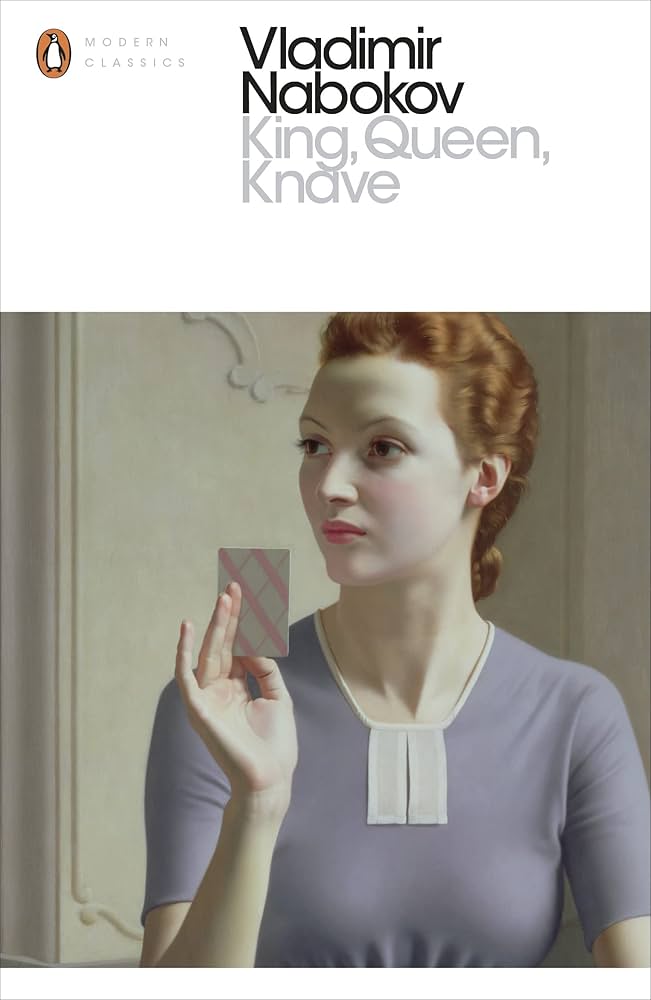
X
2025: King, Queen, Knave of Vladimir Nabakov A masterpiece from one of the greatest writers who ever put finger to typewriter. King, Queen, Knave is a story of the eternal triangle, with the young interloper a nephew of the married man, no less. It also includes charicatures of superficial family success, nepotism, the ladder of success in business and, simply, humanity. Nabakov relishes in deriding the human condition, with all its sweaty, snottery, masterbatory, lusty excesses, and every one of his books is, in part, simply a wonderful spoof of humanity. The young, poor relation travels in from the country to work in his uncle's emporium. He dines at his uncle's house, procures some dismal rooms, buys a collar and tie and gets cracking to work in the shop and be willingly seduced by his uncle's wife. Nabakov is so skilled at highlighting the unflattering characteristics in everyone and everything that nothing in this seduction is beautiful or sexy. It is all ugly and tawdry. The affair bumps along against all likelihood, and the pair even hatch mad plots to live together, run away, murder the uncle, all at the same time. In the end they twist themselves into the most impossible situation, very nearly committing heinous crimes against all reason. But suddenly the wife is struck down by an illness -- not an insane idea of an illness, but a real, fatal illness -- and she succumbs. The boy is saved from throwing his life away, and the husband is destitute. Nothing ends as it should, and humanity has been shown up, yet again, in all its vain, self-obsessed, cuckolded, sordid ugliness. It is all brilliantly done.
| 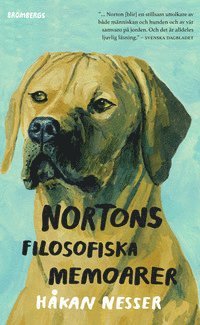
X
2020: Nortons Filosofiska Memoarer, av Håkan Nesser Jag är skyldig att det har gått lite tid sedan jag läste den här boken. Nesser är känd som en deckerförfattare, men den här boken är en rolig komedi om livet av en hund, med hunden som berättare. Den är ingen liten, snabb hund utan stor, långsam och filosofisk, och boken tumlar framat men samma fart. Läsern kan bara tänka med, djupt och filosofiskt, med vänliga hunden. Vi titta på parker, katter, mat och soffor med nytt ljus. En mans bästa vän är hans hund, men hundens bästa vän är soffan. Norton älskar att promenada och äta, och saknar fortfarande sina testiklar, som försvunn under mystika omständigheter för långe sedan. En lyckligt slut också, Norton dör i nästa sista kapitel, och vi reser med honom till himlen i den sista. Fantastiskt. Rolig. Djup. Filosofiskt. Vad mer kan man önskar sig?
| 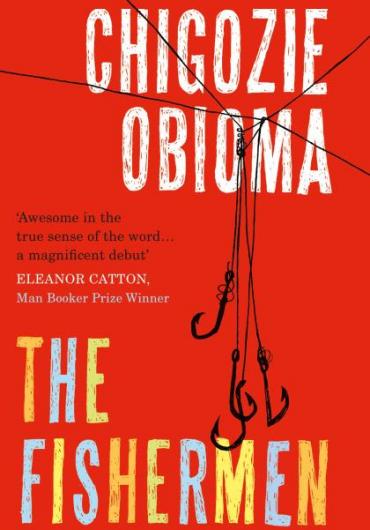
X
2015: The Fishermen by Chigozie Obioma A classic tragedy around 4 brothers, a deadly prophesy, and the chaos it wrecks as it burns into their relationships. This is mixed up with the boys' troubled arrival of adolescence, and it remains unclear just what action is caused by what effect. Gripping, telling, fantastically written, and thrilling as it draws to a conclusion. The narrative follows a classic tragedy, but finally draws up just slightly from complete destruction and salvages something of the lives of the narrator and his closest sibling. The four brothers are characterised beautifully, their close relationship is pulled together, and each individual separation pulls at the heart of the reader: "What will happen to us [younger brothers] when our older brothers die?" "I could not imagine life without my brothers" "all my life they had looked after me" "don't leave me!" The funeral of Ikena is taut and heartbreaking, "he was the only one dressed in white, like an angel who had fallen to Earth and had his body broken so that he could not return to heaven." By avoiding the destruction of all and bringing the tragic events to a sort of an end the author enriches the tale and strengthens the overall narrative. Fantastic novel. (all para quotes from memory) A couple of days later and I think the book has increased its pull on me. One of the great achievements of the tale is to intermix Ikena's supposed descent into madness with his descent into adolescence. The story is mostly narrated by the youngest sibling, and the narrator is devasted when his older brother turns away from his siblings, defies their Mother, shows violence towards his closest brother. While the storyteller presents these changes in drastic language, the actual words spoken by Ikena, "I just don't want to, sorry Mother, please just leave me alone," are far less dramatic. It brings to the novel a mild sense of unreliable narration, and it remains unclear just how much of the terrible act was caused by Ikena's descent into madness, and how much by the younger siblings' inability to cope with the separation of close knit fraternity brought about by adolescence. After all, during the course of the novel 3 of the 4 brothers commit a murder. The only one not to is Ikena, the one who supposedly descended into madness. So what price this supposedness? Fantastic mixture of feeling.
| 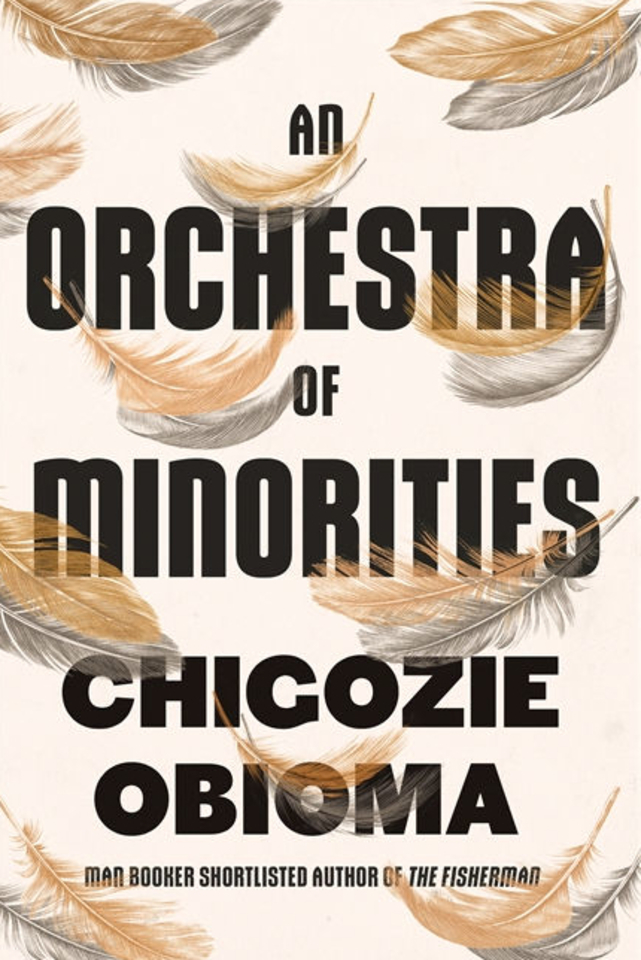
X
2019: An Orchestra of Minorities by Chigozie Obiama A fantastic story of Chigozie Obiama, absolutely first rate in terms of structure, direction and technical writing. I found it harder to actually get into the story and lose myself in it. There was a metastory going on which interrupted flow, and the story was absolute, unmitigated tragedy almost without relief anywhere. One doesn't want to get fully lost in such a tale. Narrative point of view was unusual. In fact it was told in first person by the "Guardian Angel" of the hero who had close access to the thoughts of the hero, but could not fully read them, nor could he direct actions. This makes it first person if a spirit counts as a person, but really it was third person specific for the hero. The phrase in quotes above is my phrase, in fact the book used a complex structure of the spirit world from Nigerian Culture as a broad metastory which came in at least at the start of every chapter. I can't comment on how well this worked for someone from that culture, but I struggled to get inside this. For me it became more an intrusion than a beneficial thing. Underneath these layers the story was well told and dramatic. It threw together a poor man and a much richer woman and developed them as a couple. The pair of them hardly had time to enjoy life together before the man took it upon himself to resolve problems caused by the difference in society between them. In attempting to do this simply drove himself into a tragic, downward spiral. He was abroad for most of this time and the narrative focused in closely on him with only memories of other main characters and temporary cameos from minor characters abroad. It became very intense, would have been even more so without the metastory to break it up. For our poor hero it was all tragedy. In the final chapters the hero is actually reunited with his long-gone savings thanks to the thief having a relgious rebirth, but this unlikely stroke of good luck happens at the wrong point to be beneficial and all becomes lost anyway. Extremely good writing from a first class writer. The previous book was great and I fully expect the next one to be. This book remains technically excellent but for me, strangely unlovable.
| 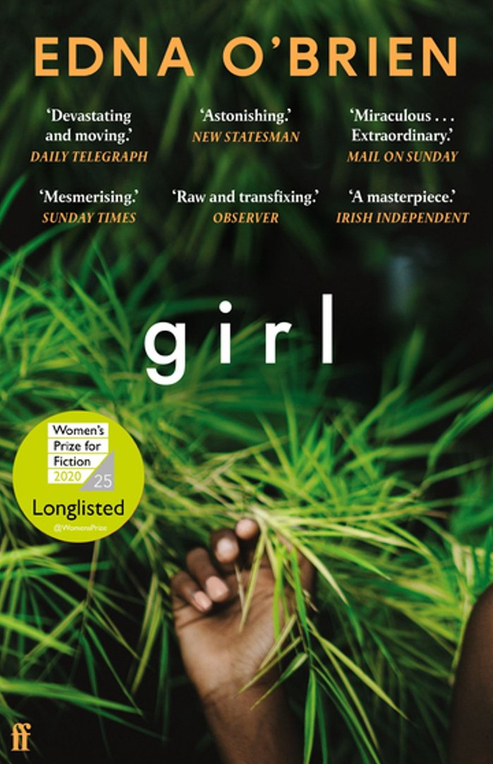
|